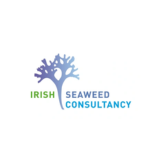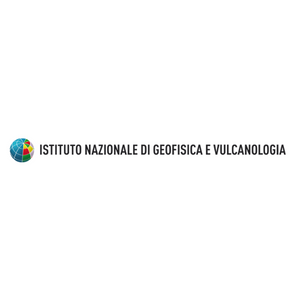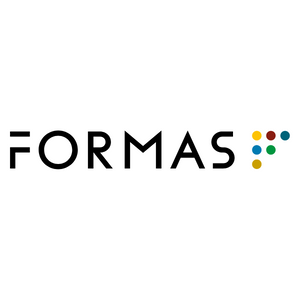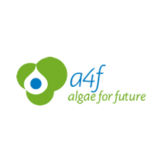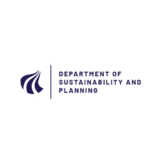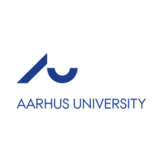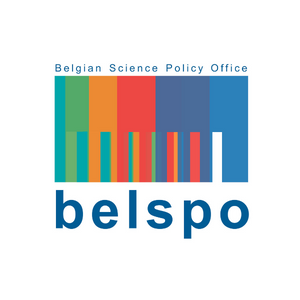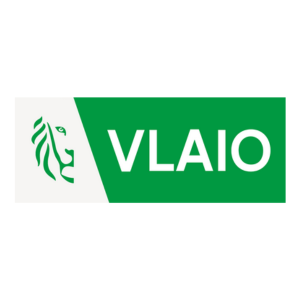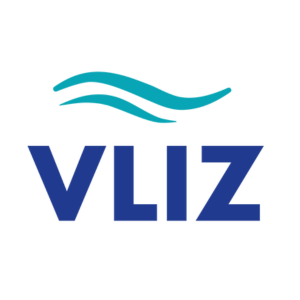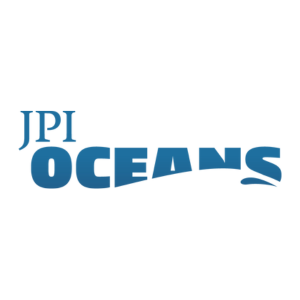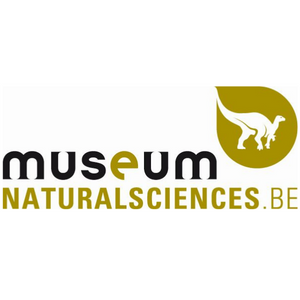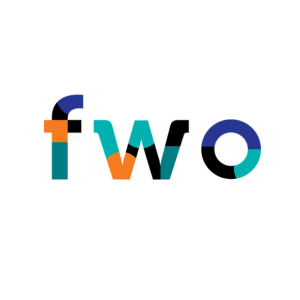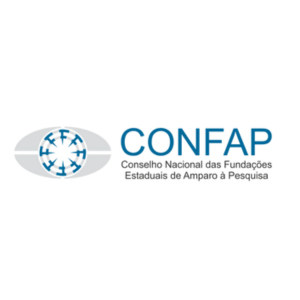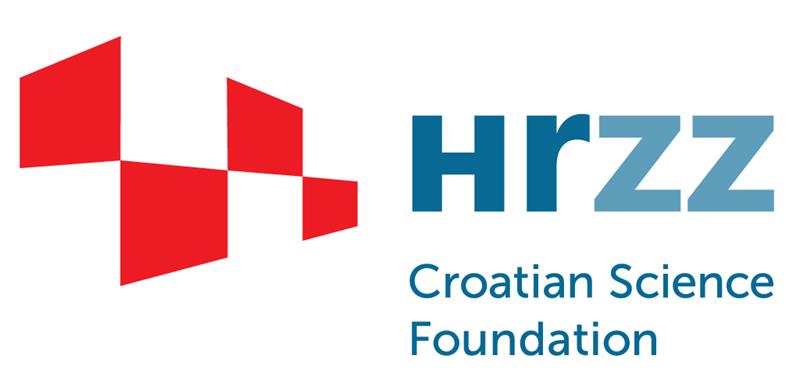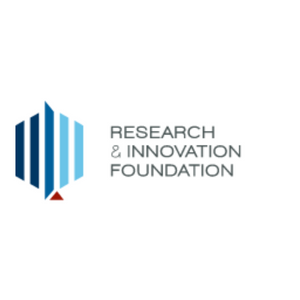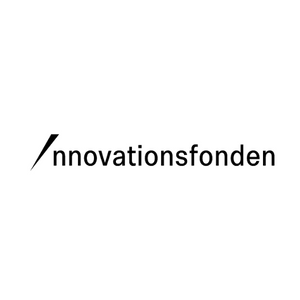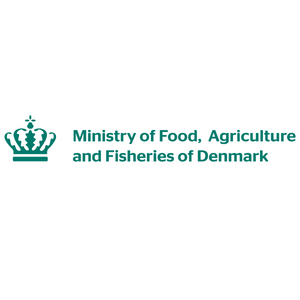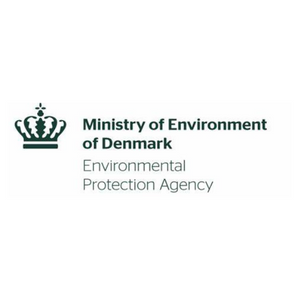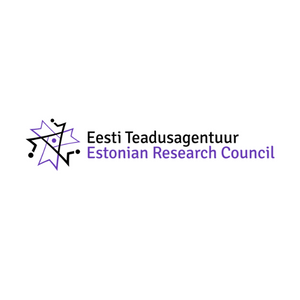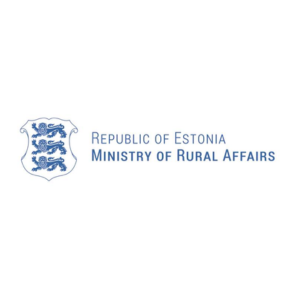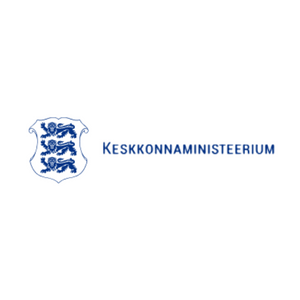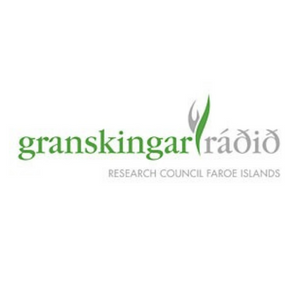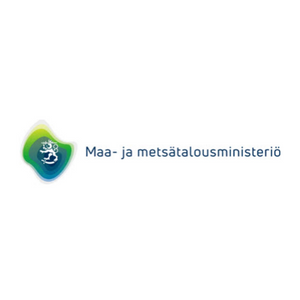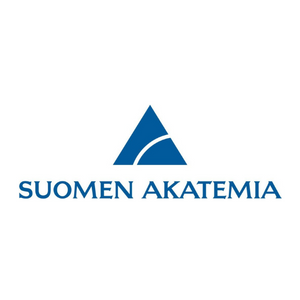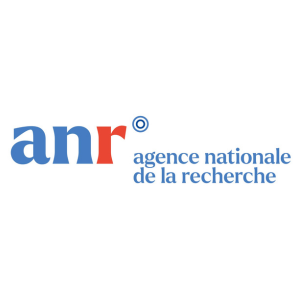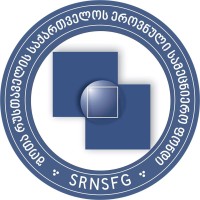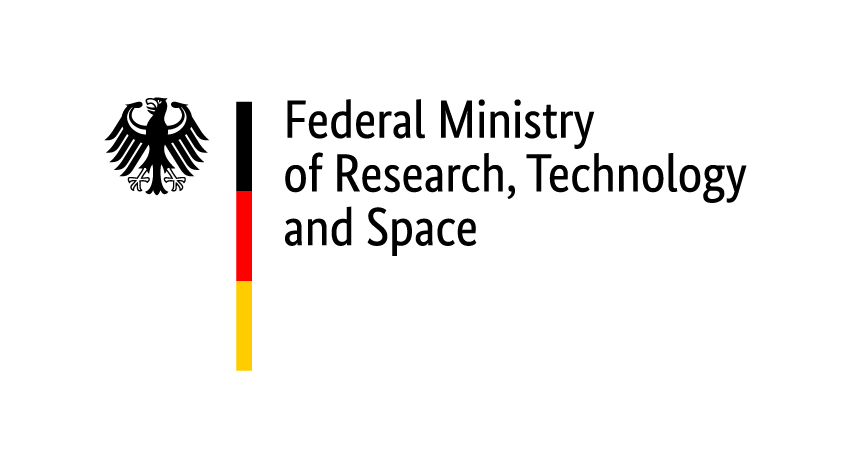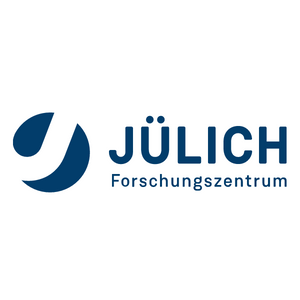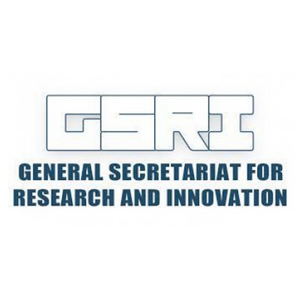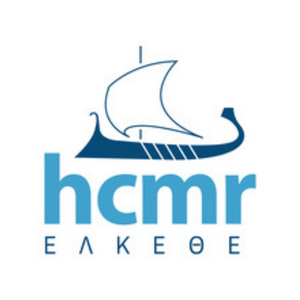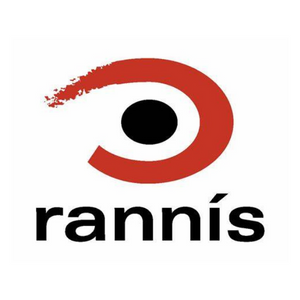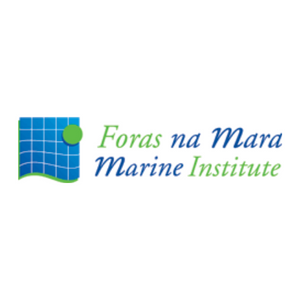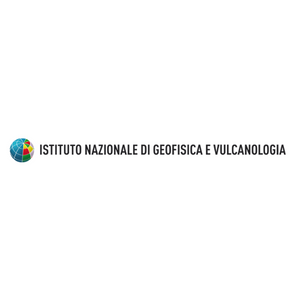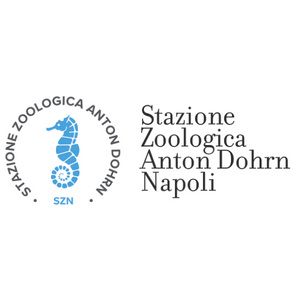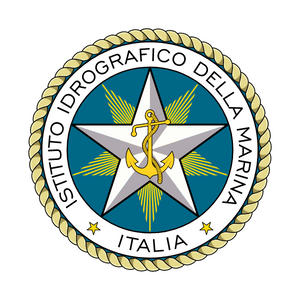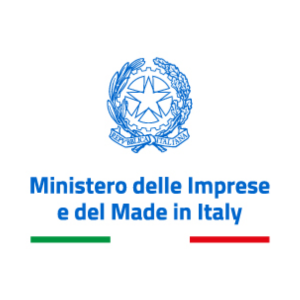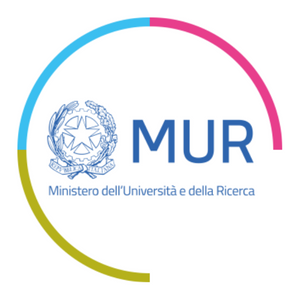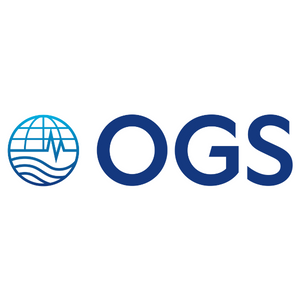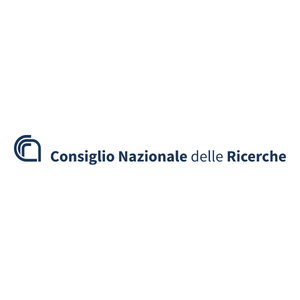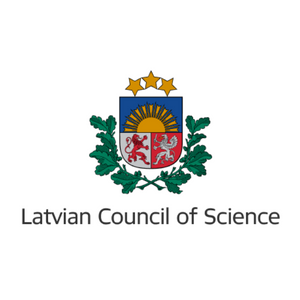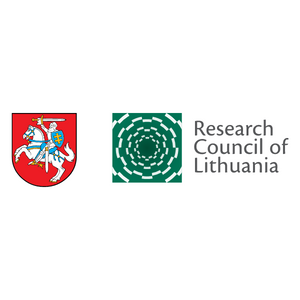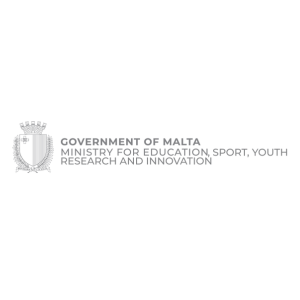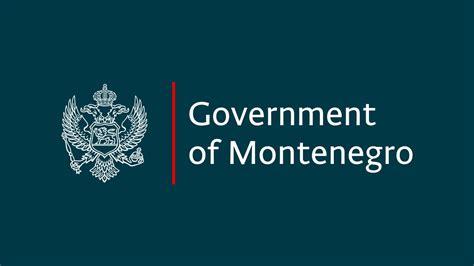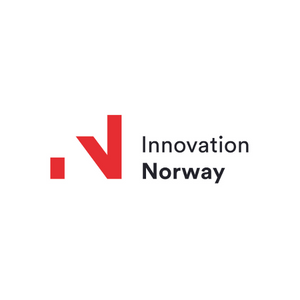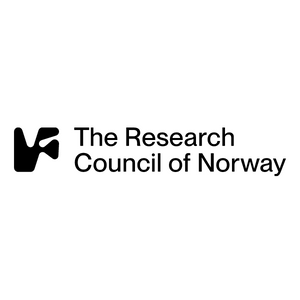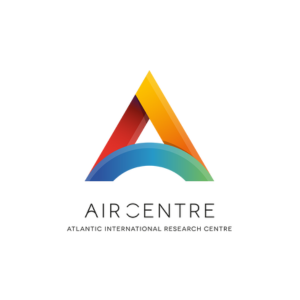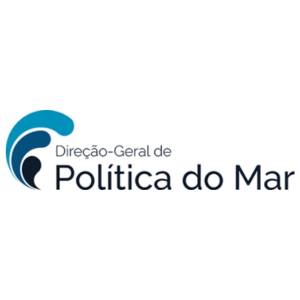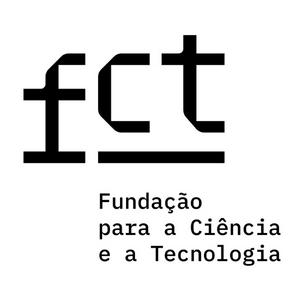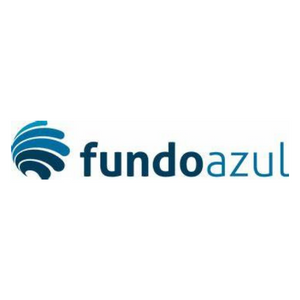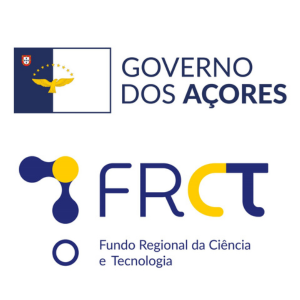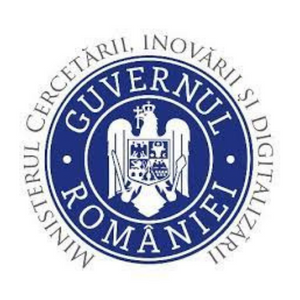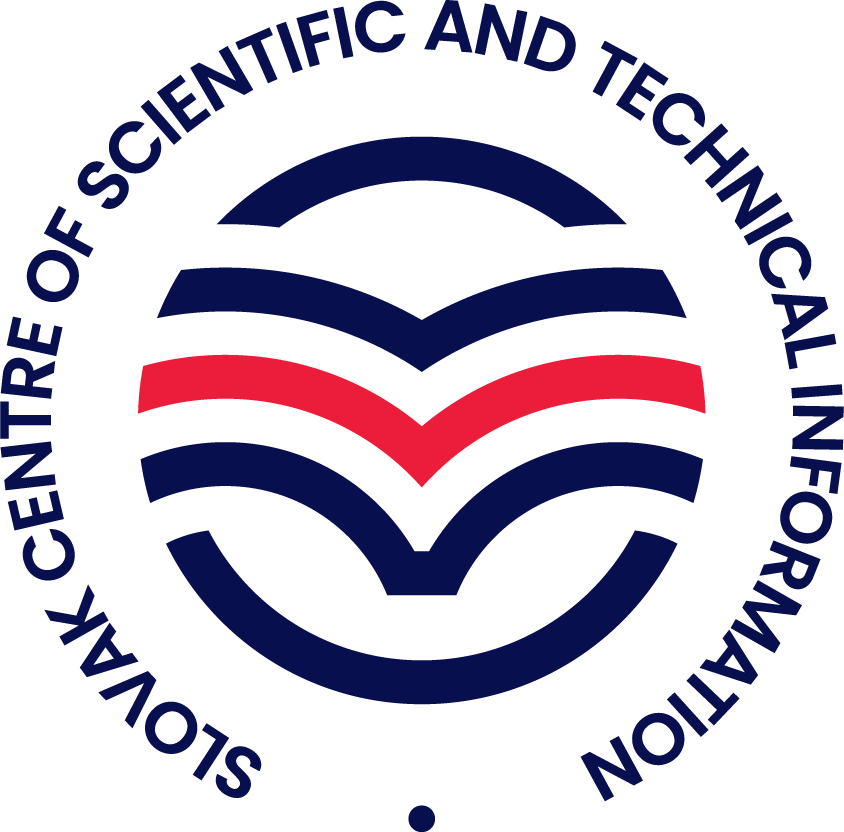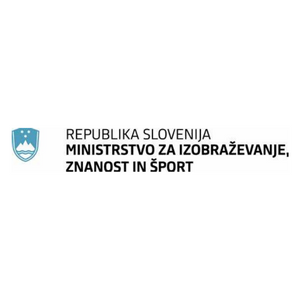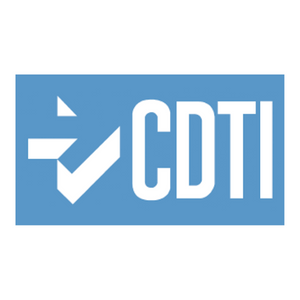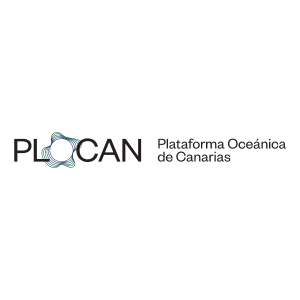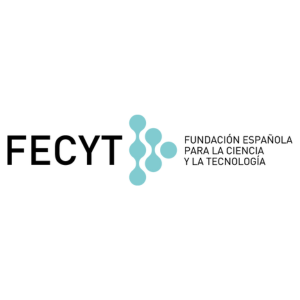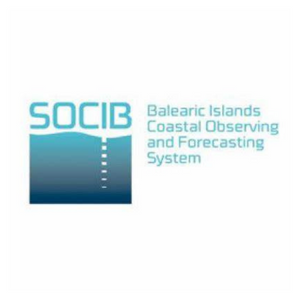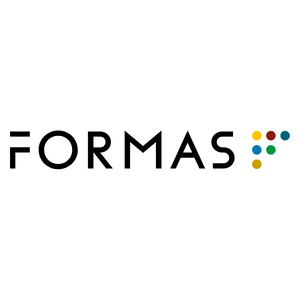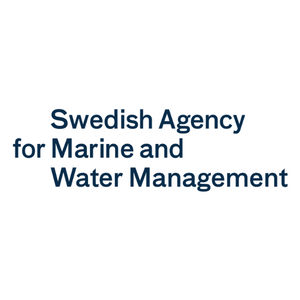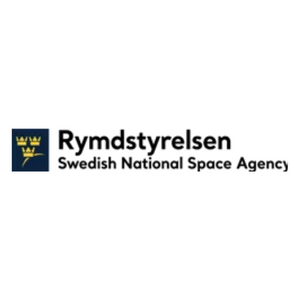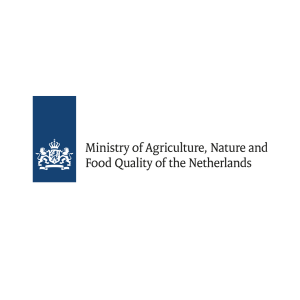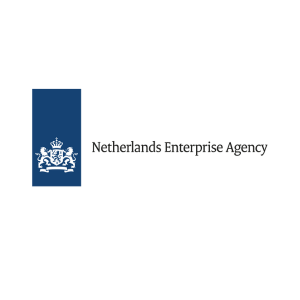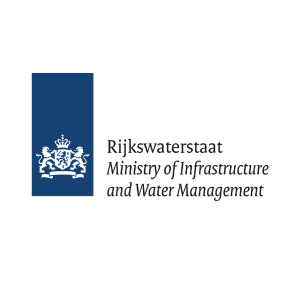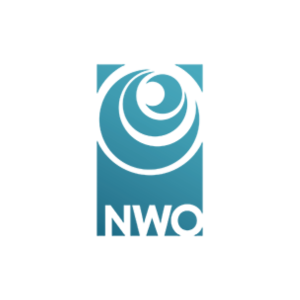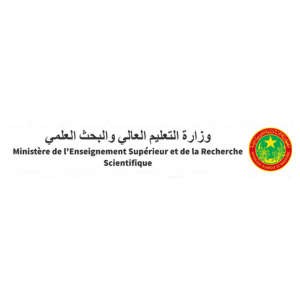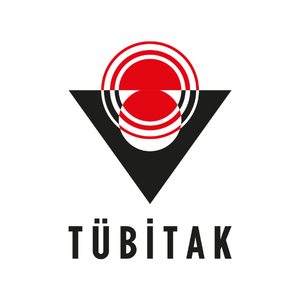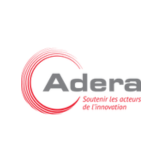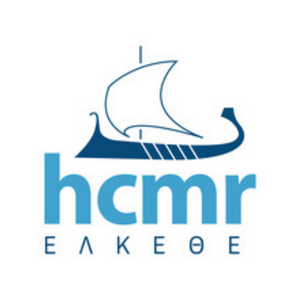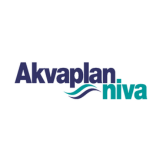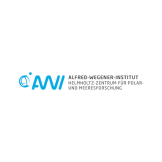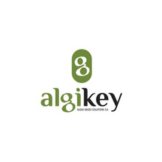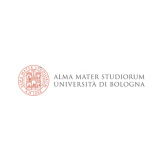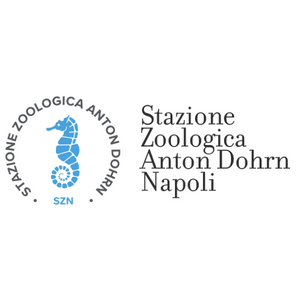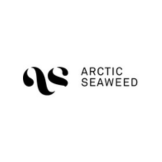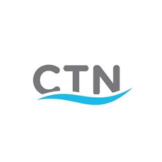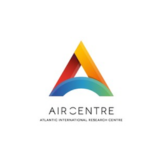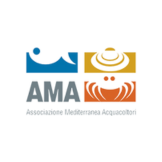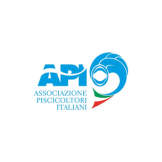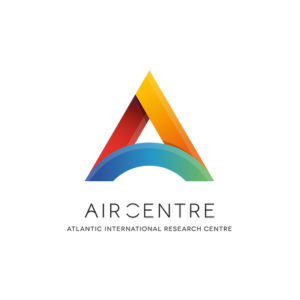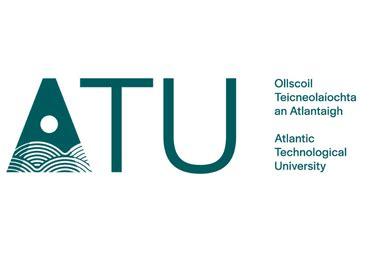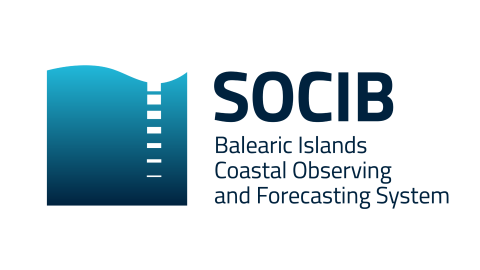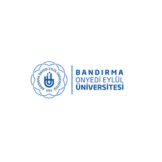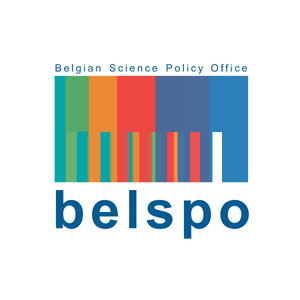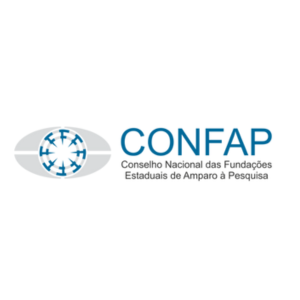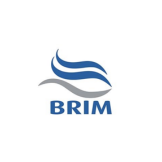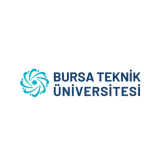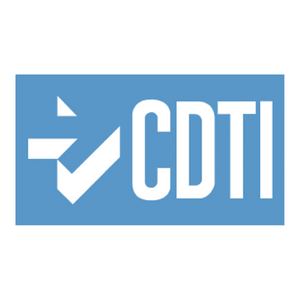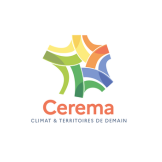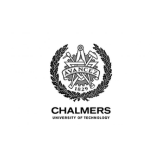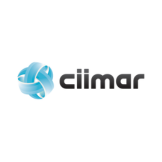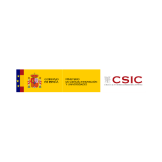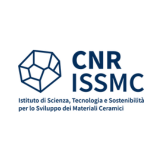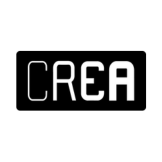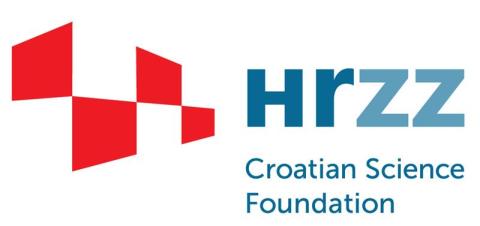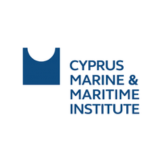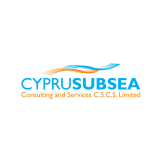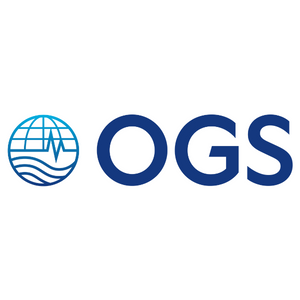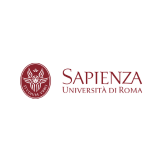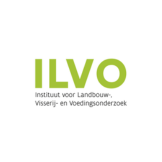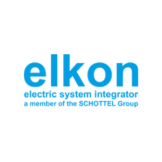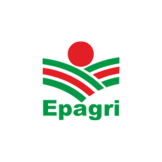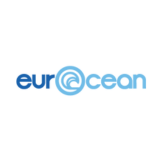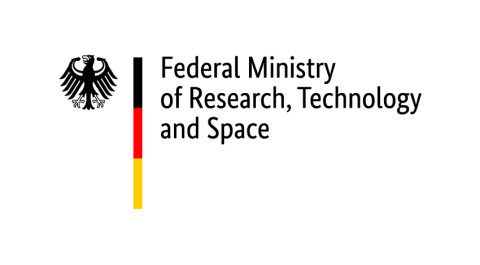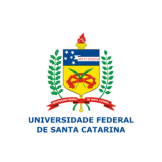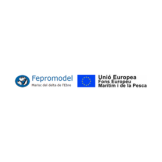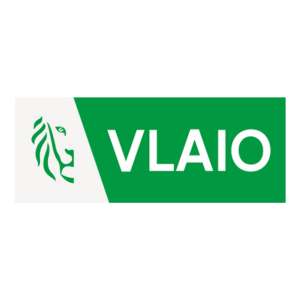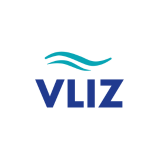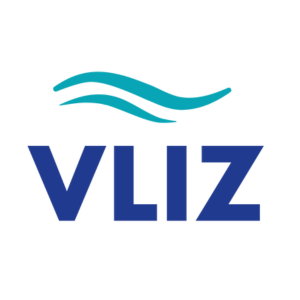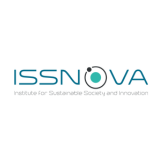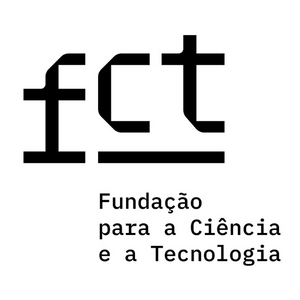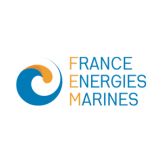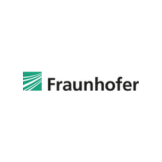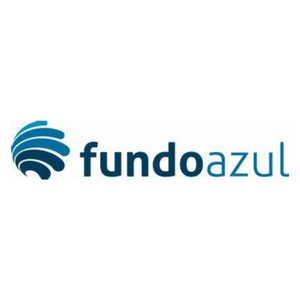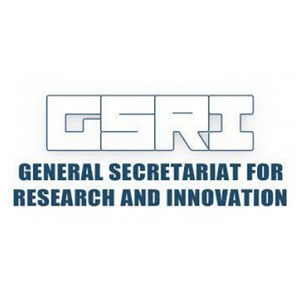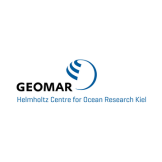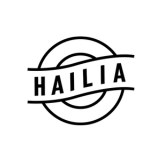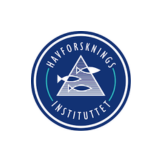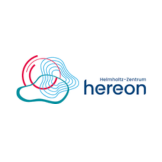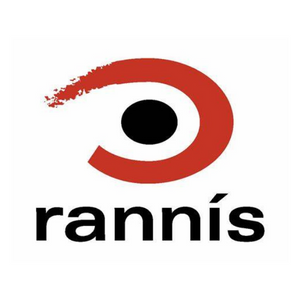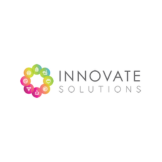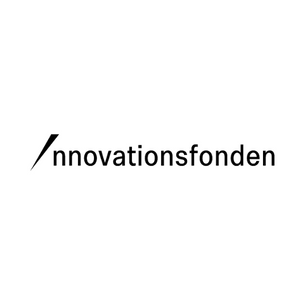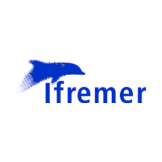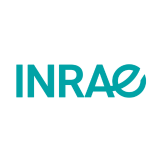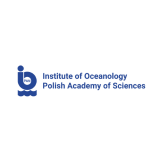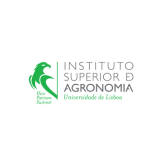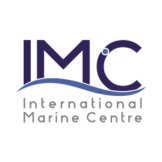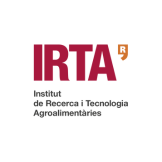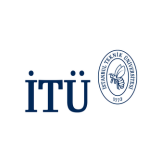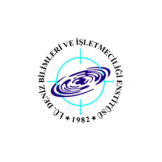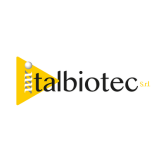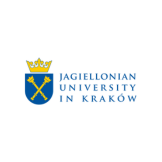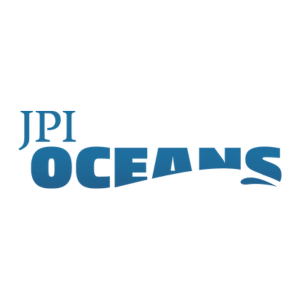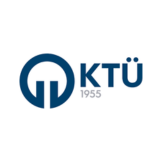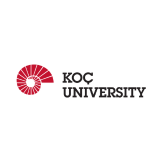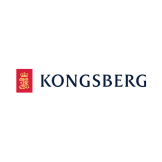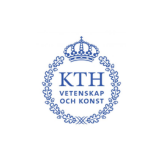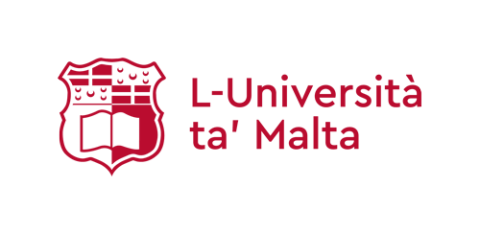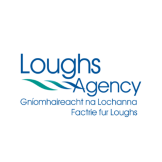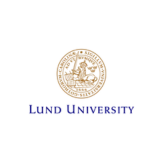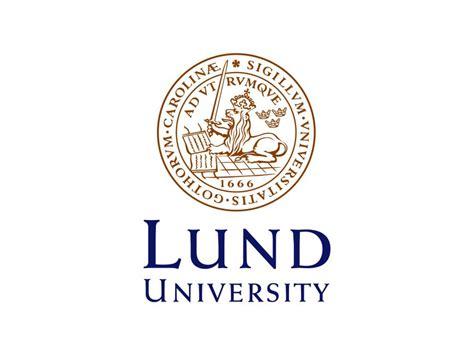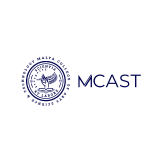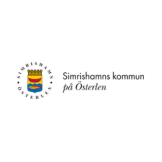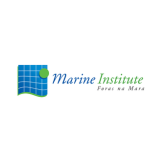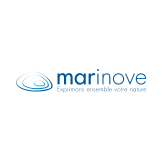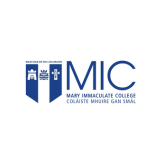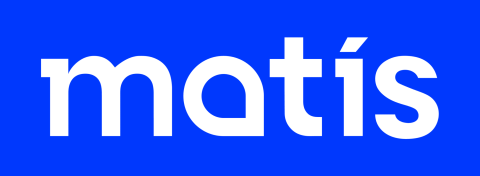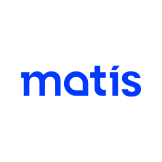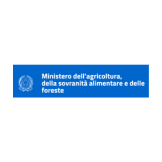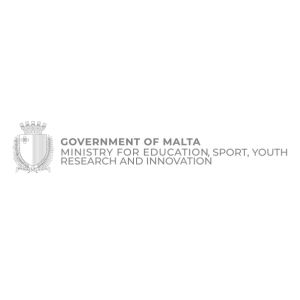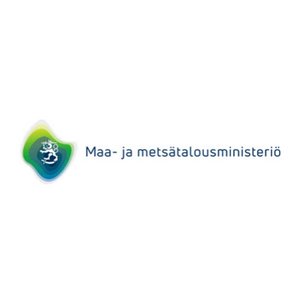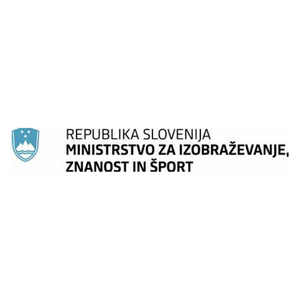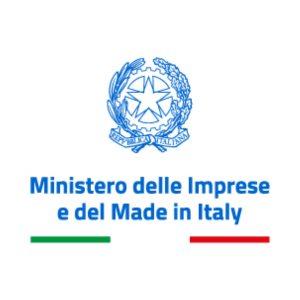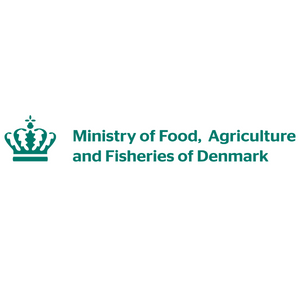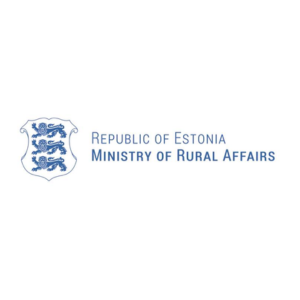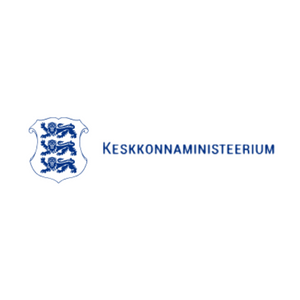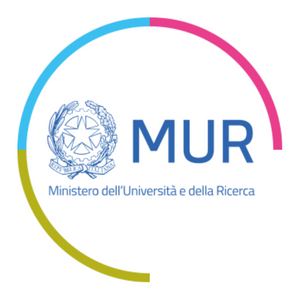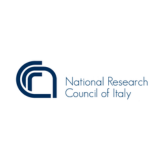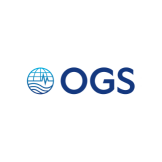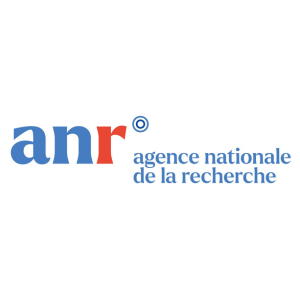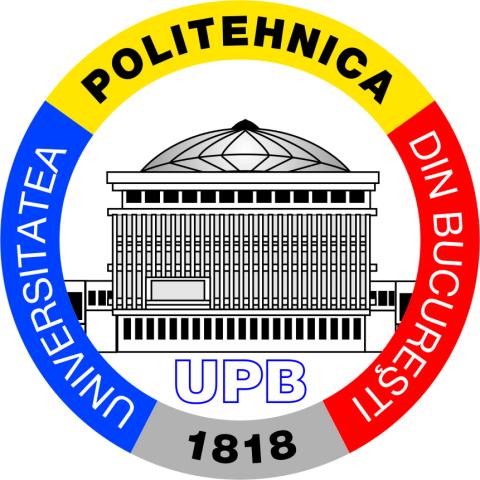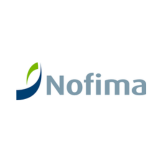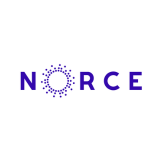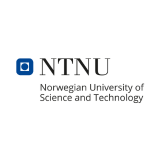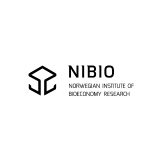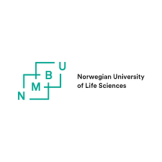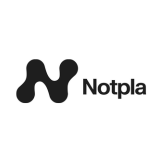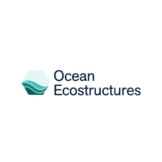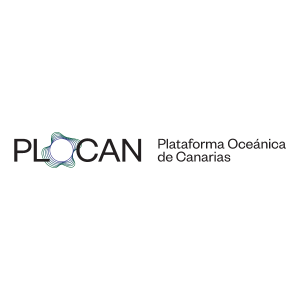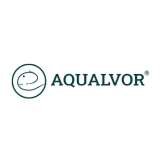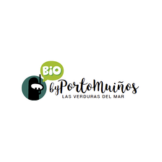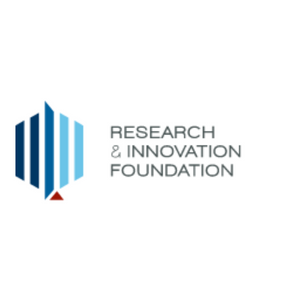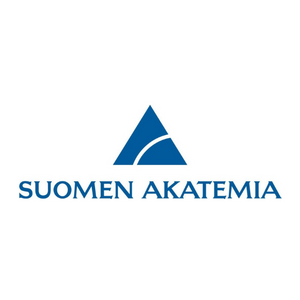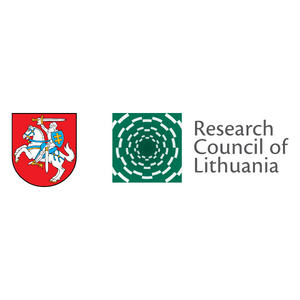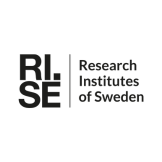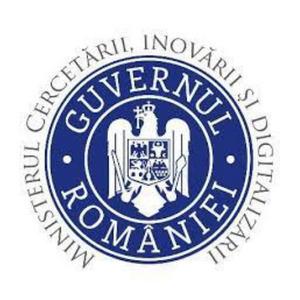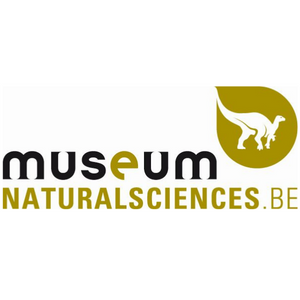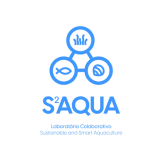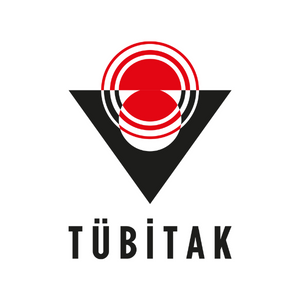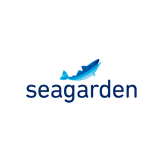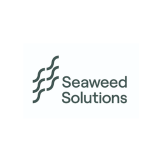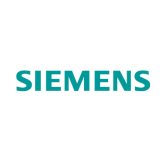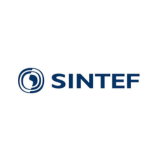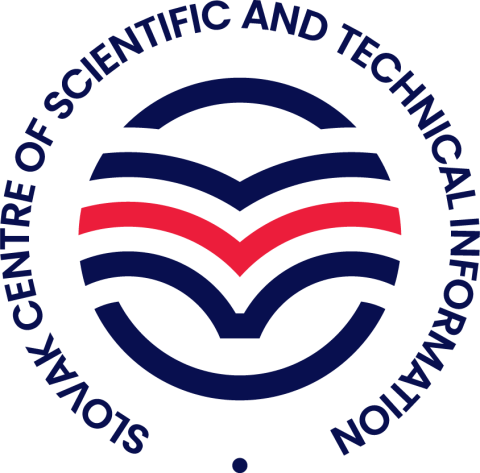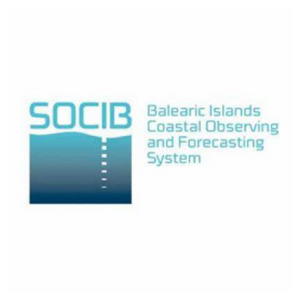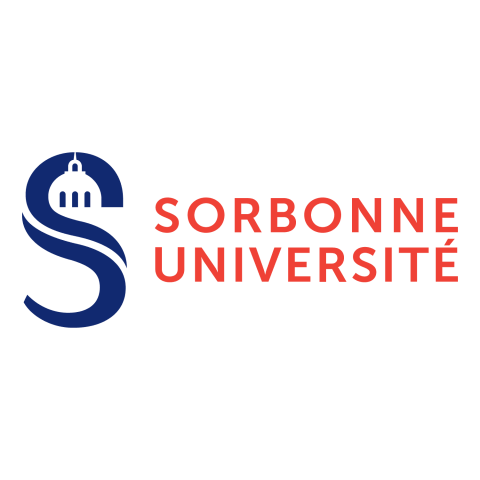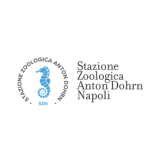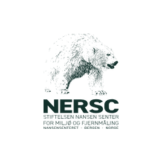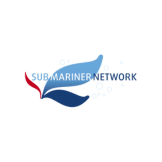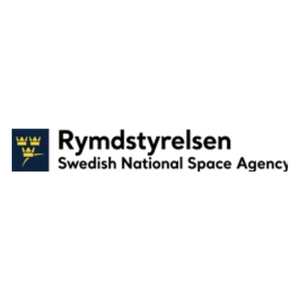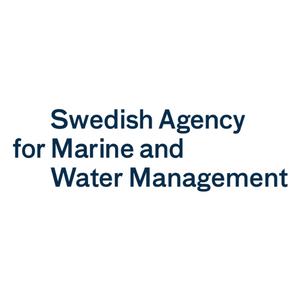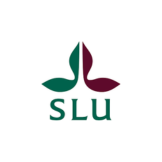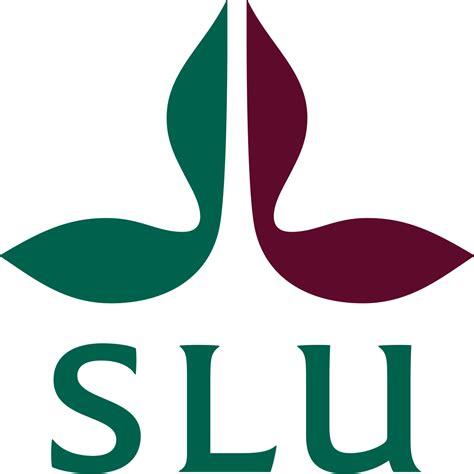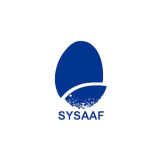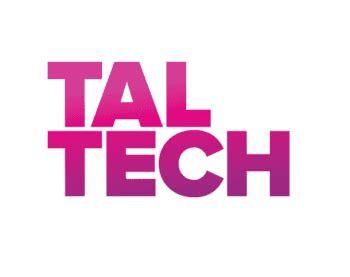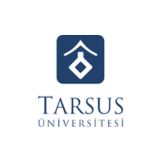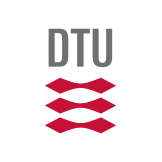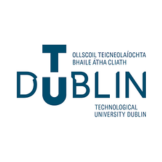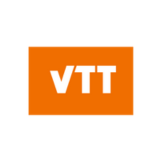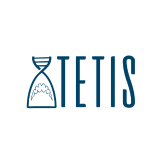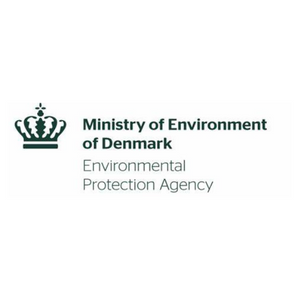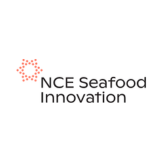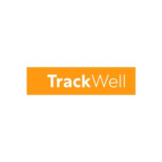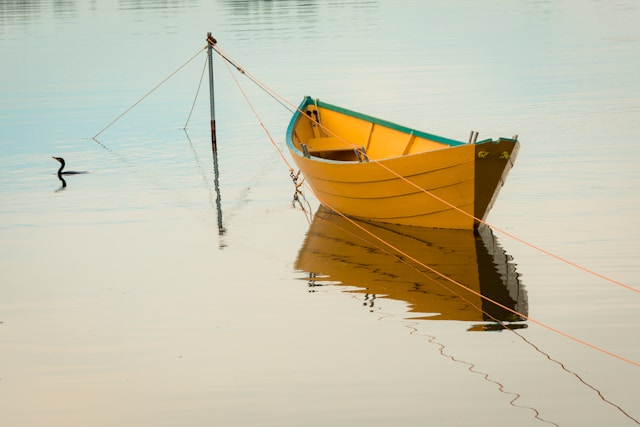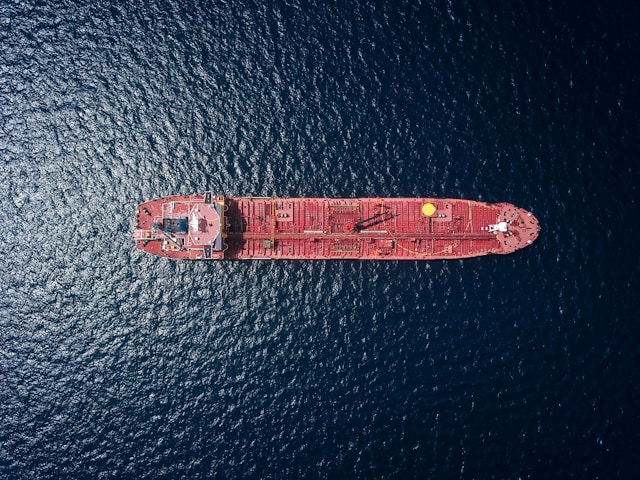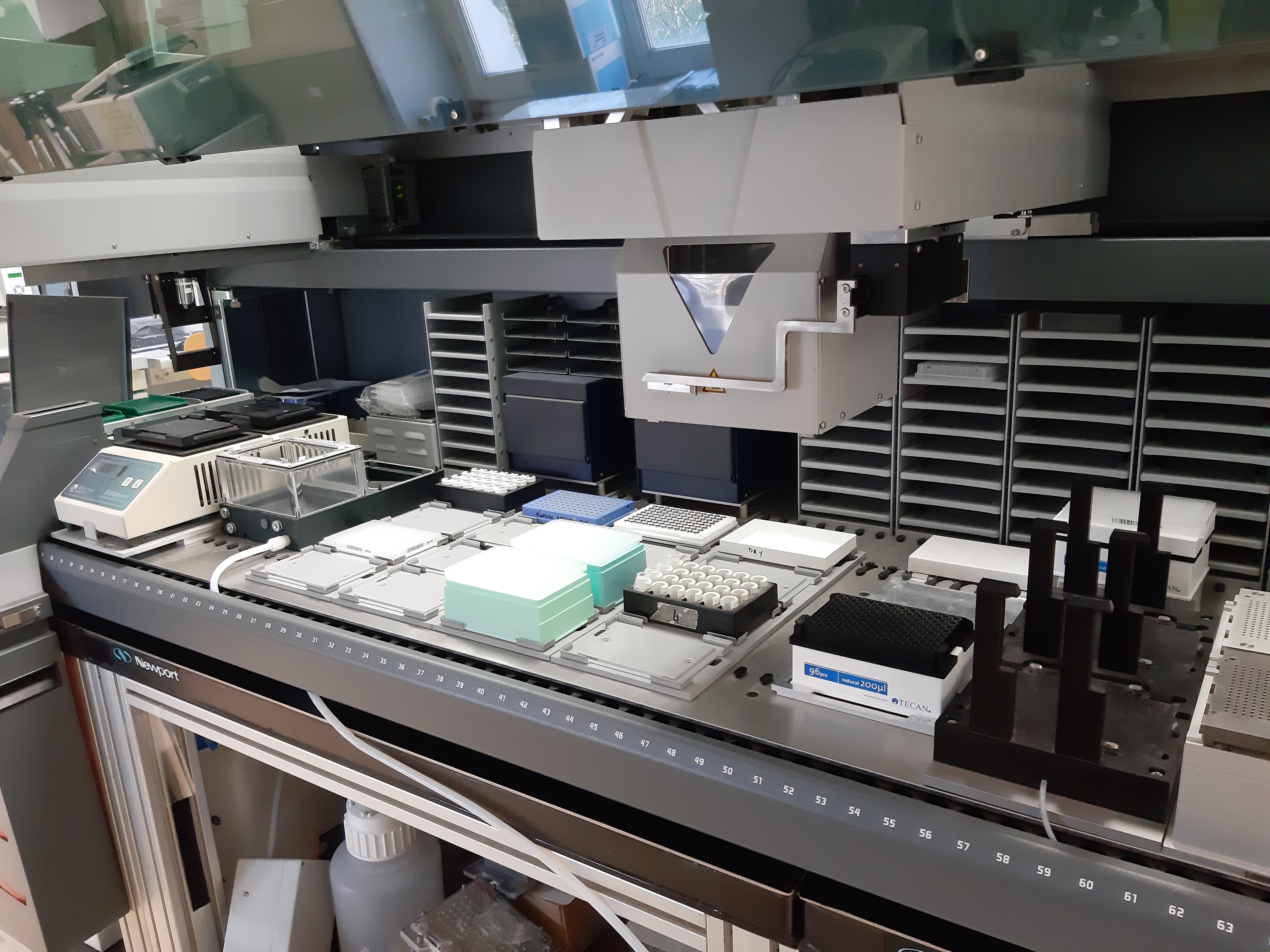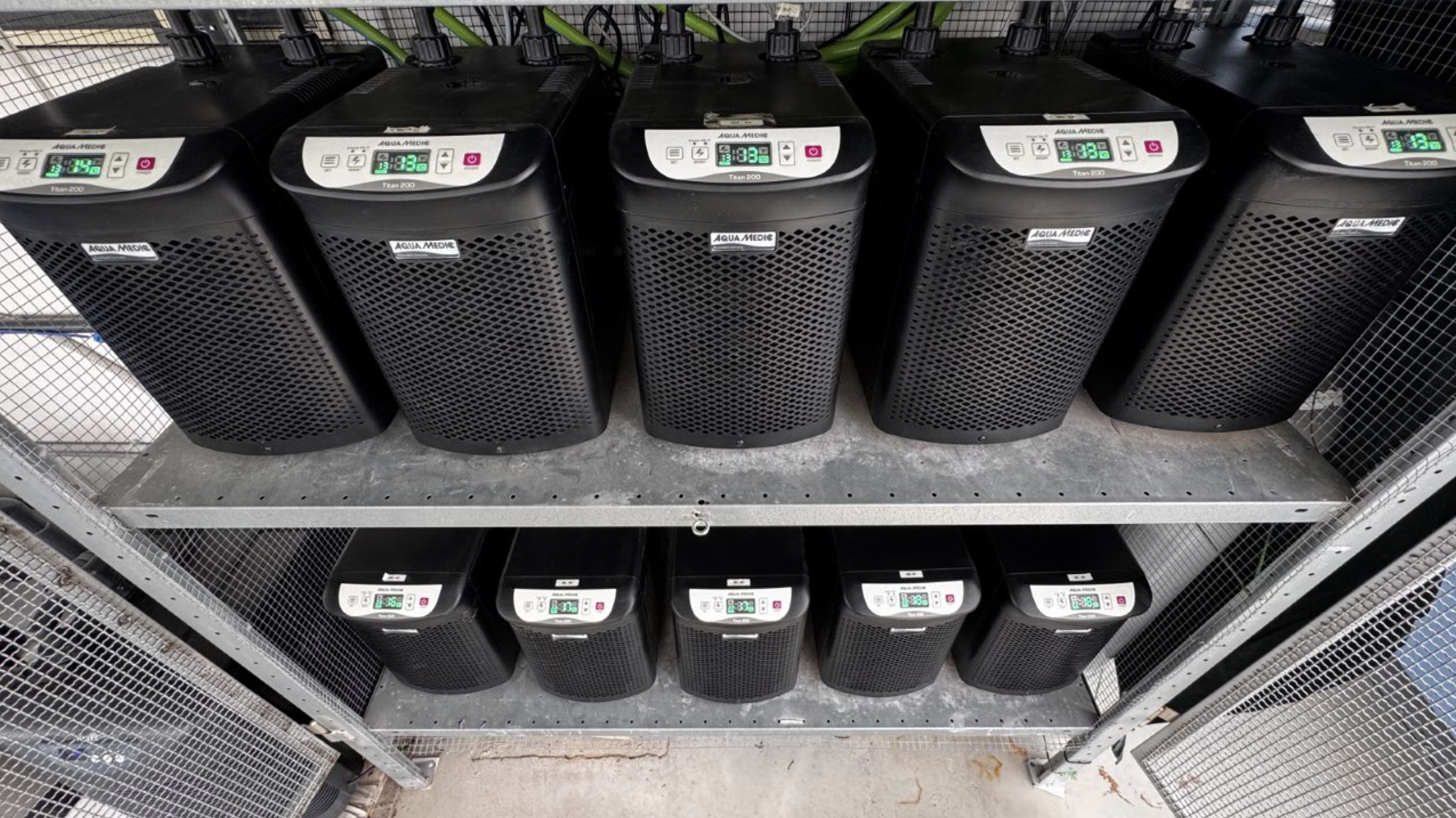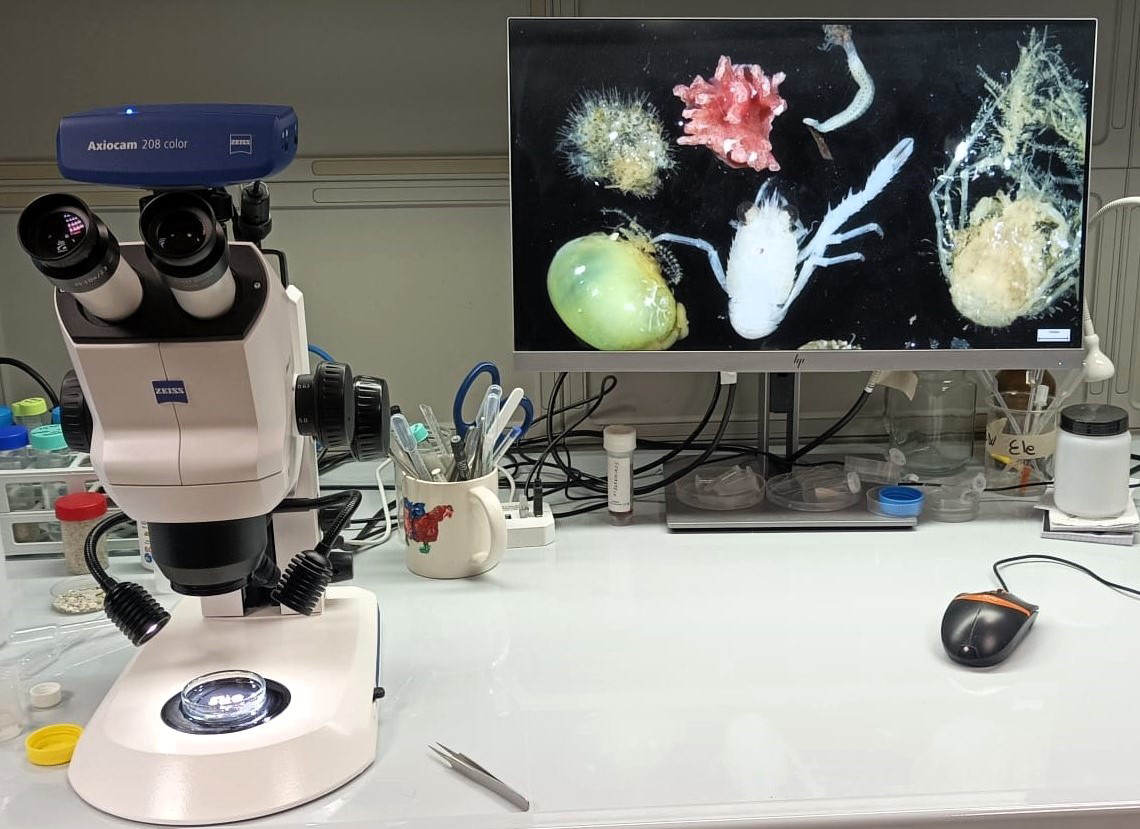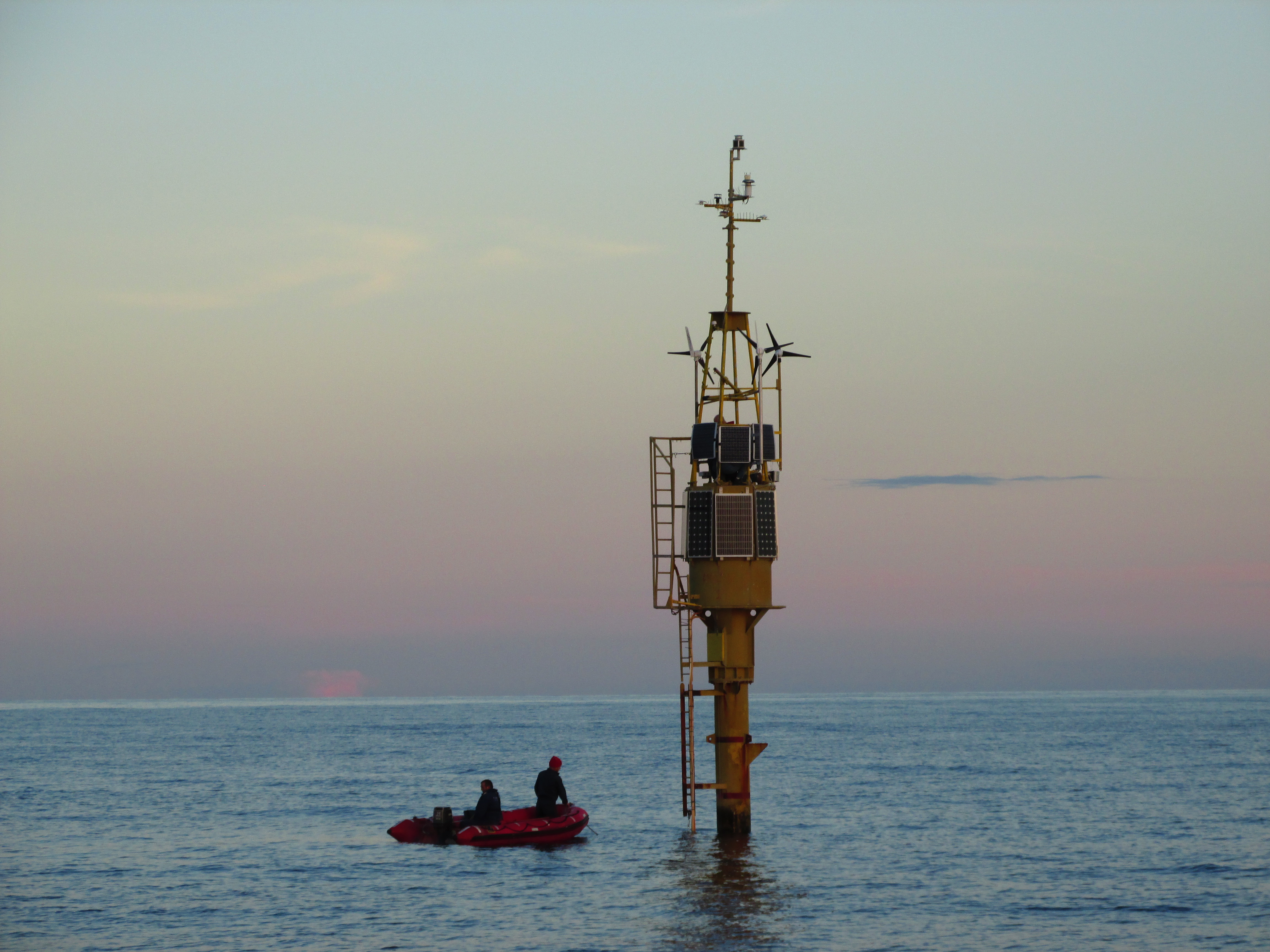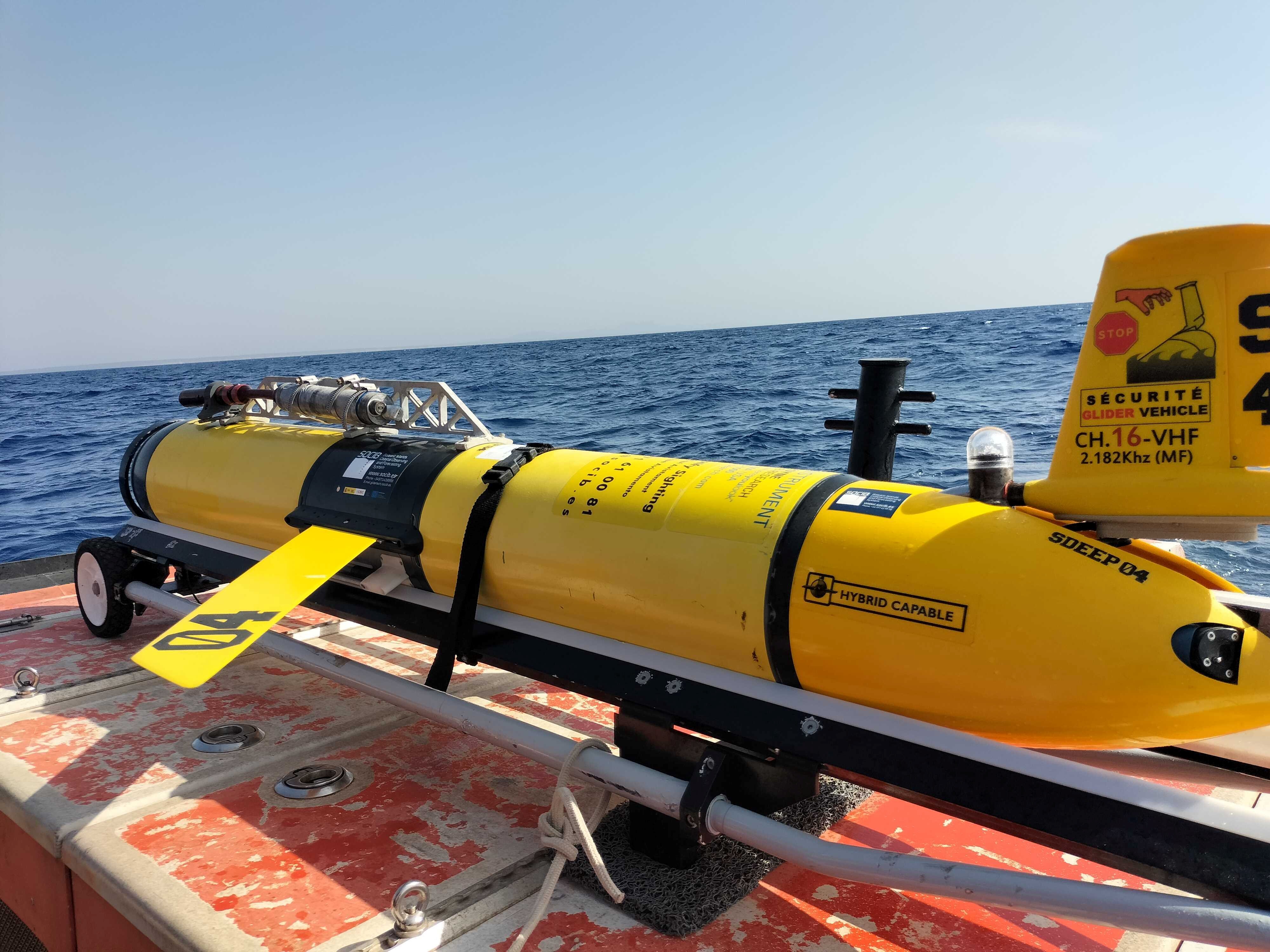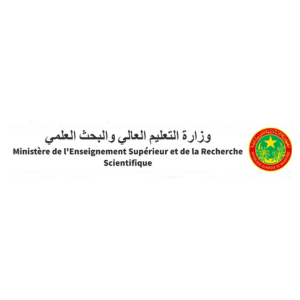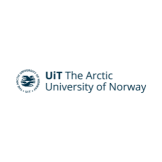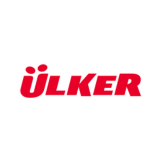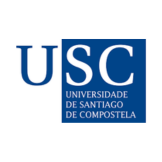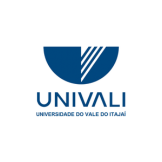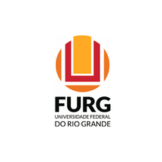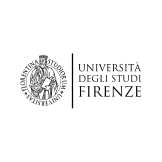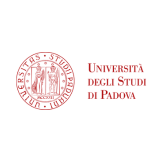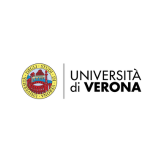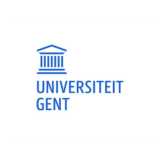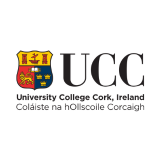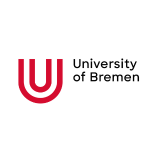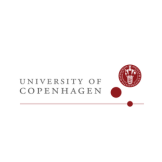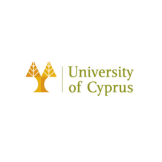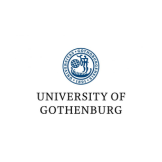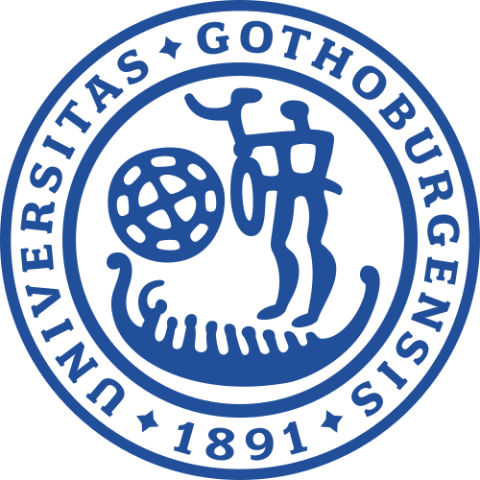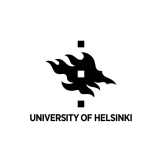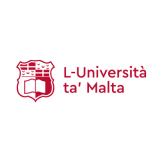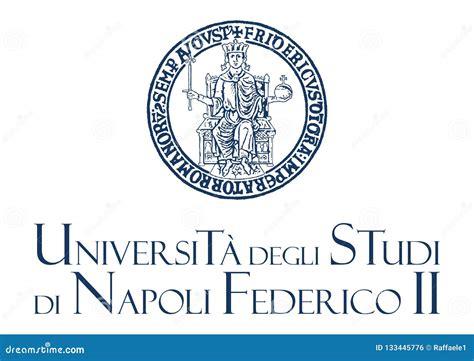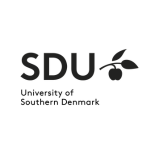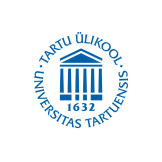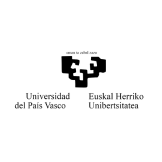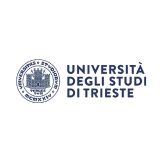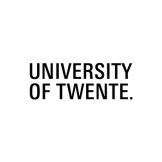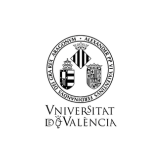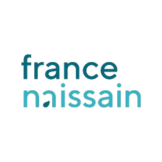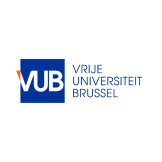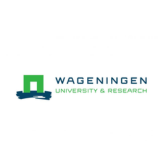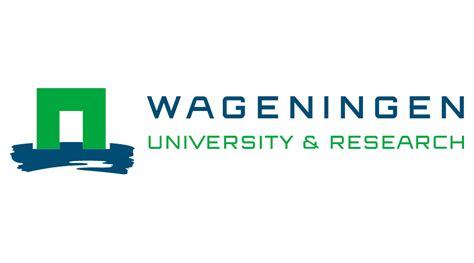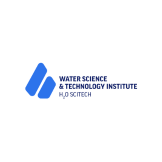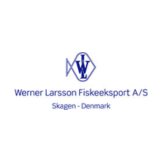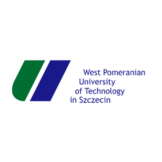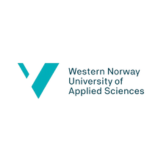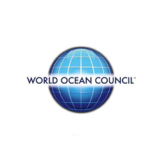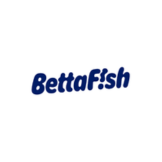- Home
- Events
Upcoming events
Multi-use Infrastructure Spatial Concepts for the Blue Economy: Leveraging on Sustainable Port Ecosystems through Living Labs
BluePortLab focuses on transforming European maritime ports into sustainable, low-carbon energy hubs pivotal for the blue economy's transition. Recognizing ports' significant role at the intersection of land and sea, the initiative seeks to rethink maritime ports' function to enhance energy efficiency, biodiversity, and sustainable growth. This aligns with the EU's goals for a clean energy future and sustainable ocean principles.
BluePortLab argues for a transformative vision where ports expand on their traditional roles to become multifunctional spaces driving regional development, social cohesion, and environmental sustainability. It introduces multi-use spatial concepts within ports, incorporating renewable energy, green technologies, and practices to address challenges like greenhouse gas emissions and energy consumption. This approach envisions ports as catalysts for clean energy, promoting synergies among maritime activities to facilitate a climate-neutral blue economy.
Scientifically, the project aims to develop innovative spatial concepts enhancing energy efficiency and biodiversity, assess socio-economic and environmental impacts, and establish a governance framework for resilient and sustainable port management. Research questions delve into maximizing synergies between energy production, biodiversity, and economic development, understanding socio-economic impacts, and optimizing governance for multi-use spatial concepts. The novelty lies in the holistic perspective on ports, integrating them into broader energy and economic systems for societal benefits. The project introduces Living Labs Networks (LLNs) for real-world testing and co-creation of multi-use infrastructures, fostering collaborative innovation.
Methodologically, a multidisciplinary mixed-methods approach will be employed, structured around LLNs in key maritime regions. This includes developing LLNs, conducting co-creation workshops, launching pilot projects for prototyping, and using data analysis for evaluation. Stakeholder feedback and iterative refinements will ensure adaptability, with successful concepts scaled up for wider application.
The impact plan is based on the Theory of Change, aiming for environmental sustainability, economic competitiveness, social cohesion, and policy influence. The project seeks to embed renewable energy and biodiversity initiatives in port operations, stimulate regional economies, and ensure inclusive transition to a sustainable blue economy. European cooperation is emphasised through transnational collaboration, involving the ports of Ravenna, Aalborg, Trelleborg, and other ports linked to the research network of the partners, e.g. Hamburg, Rotterdam, Naples, Valencia, Antwerp to share experiences and foster innovative solutions. The involvement of port stakeholders will be central to the project. Stakeholder engagement involves academia, industry, government, and civil society, ensuring inclusive and transparent collaboration.
Coordinator: Copenhagen Business School, CBS, Denmark
Partners:
- University of Genoa, UniGe, Italy
- Chalmers University of Technology, CTH, Sweden
- Kühne Logistics University gGmbH (KLU), KLU, Germany
- DANMARKS TEKNISKE UNIVERSITET, DTU, Denmark
- Autorità di Sistema Portuale del Mare Adriatico centro settentrionale, ADSPRA, Italy
- Port of Aalborg, R&D, POARD, Denmark
Self-funded partners:
- Trelleborg Hamn AB, Sweden
- Euro-Mediterranean University, EMUNI, Slovenia
Offshore Clean Hydrogen Production for Multi-use Purposes
OCEAN-H2 tackles climate change head-on by pioneering large-scale green hydrogen production using offshore renewable energy sources. This clean alternative to fossil fuels has the potential to significantly reduce greenhouse gas emissions across various sectors, from power generation and transportation to industrial processes.
OCEAN-H2 recognizes the delicate balance between progress and environmental protection. The project implements rigorous environmental impact assessments to minimize harm to marine ecosystems during operation and decommissioning of offshore facilities. Strategies to address potential impacts on marine life, noise pollution, and seabed disturbance will be developed and implemented based on these assessments. The project also prioritizes a holistic approach to sustainability. While focusing on climate mitigation, it adheres to the "Do No Significant Harm" principle. For instance, unlike traditional methods, OCEAN-H2 utilizes seawater electrolysis, eliminating the need for vast quantities of freshwater. Additionally, pollution prevention is addressed through investigating leak-proof storage and transportation solutions for hydrogen, alongside responsible waste management practices.
Through continuous monitoring and evaluation of its environmental and social performance, OCEAN-H2 fosters continuous improvement. Collaboration with a diverse range of stakeholders, including researchers, policymakers, and civil society organizations, is crucial for achieving this goal. By prioritizing sustainability and responsible development, OCEAN-H2 strives to be a driving force in the transition towards a clean energy future powered by green hydrogen.
Coordinator: L-Universita ta Malta, UM, Malta
Partners:
- RISE Research Institutes of Sweden, RISE, Sweden
- FRAUNHOFER GESELLSCHAFT ZUR FORDERUNG DER ANGEWANDTEN FORSCHUNG EV, Fraunhofer, Germany
- Università di Napoli Federico II, UNINA, Italy
- Université de Technologie de Belfort-Montbéliard, UTBM, France
'Acqua Alta' Fixed Platform
National Research Council
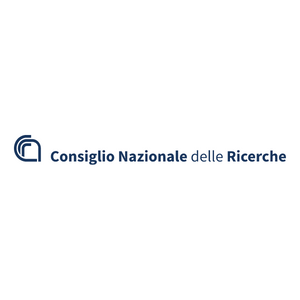
Francesco Falcieri francesco.falcieri@cnr.it
2025 Intervention Area: Blue Bioresources
Intervention Area: Blue Bioresources
This Intervention Area addresses R&I needs in support of a just transition to the sustainable production and utilization of blue bioresources, with emphasis on production and processes that minimise the environmental impacts while meeting the demand for healthy and affordable blue food, feed, and other biobased products.
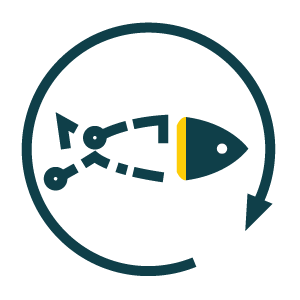
Background and rationale
The EU Green Deal sets the context for Europe’s blue economy to become sustainable and climate-neutral by 2050. The Blue Bioeconomy represents an important component of the broader blue economy, delivering food, feed and bio-based products for internal and export markets. With the completion of the Horizon 2020 BlueBio ERA-Net in 2023, the SBEP becomes a key implementing mechanism in Horizon Europe for blue bioeconomy R&D. To achieve sustainability, it is important to consider all stages of the bioresources value chain, from production (capture fisheries, aquaculture etc) to seafood processing, extracting value from waste streams, developing new types of biomasses, new food and non-food products, as well as advanced extraction technologies such as those used in biorefineries. Cooperation will be sought with the FutureFoodS partnership, which will focus on the post-farming and -fishing part of food systems.
Key considerations to be taken on board in this Intervention Area include the importance of engaging with industry and stakeholders and if relevant, the application of multi/trans-disciplinary approaches to address complex challenges, including social sciences and humanities.
Key thematic areas
Sustainable Fisheries and Harvesting
Overexploitation and the cumulative impact of overfishing with the effects of pollutants, climate change and other drivers on susceptible species and ecosystems is leading to unsustainable scenarios for the next decades. To bring Europe's fish stocks back to sustainable levels, there are important challenges remaining. More food, feed or biotic resources for other purposes can be obtained from more targeted fisheries and harvesting by improved management of overfished stocks, optimized fishing technologies and practices to reduce bycatch and discards, and increased fishing and harvesting of underutilised species (i.e., zooplankton, other invertebrates, macroalgae). A forward-looking ecosystem-based management (EMB) approach under EU legislation yet tailored to local conditions will reduce adverse impacts of fishing and harvesting on marine ecosystems, particularly sensitive species, and on vulnerable habitats. The sustainability of mesopelagic fisheries is still being assessed and there is a unique opportunity to ensure that EBM is embedded from the outset. New digital tools such as remote electronic monitoring systems, catch reporting using mobile applications, ecosystem modelling and artificial intelligence tools can optimize both small- and large-scale fishing operations. At the same time such technologies can enable data collection and analysis that can support development of sustainable management practices, while providing full traceability for our seafood. Assessments and solution scenarios should consider the impact and social implications of combined drivers such as habitat degradation, pollution, warming, water stratification and acidification, as well as their effects, such as changes in ecosystem composition, higher frequency of toxic algal blooms and alterations with species migration and phenology.
Activities should address the following aspects:
- Integrated approaches to innovation for fishing vessels to improve vessel operations and practices including technology for e.g., location (also to contrast illegal fisheries), and water characteristics, catch logistics, while reducing the use of fossil fuels.
- Exploring and co-developing with industry the potential for new fishing techniques, technologies, and new resources for small-scale fisheries, and seaweed harvesting.
- Research to inform policy options and management of migratory fish stocks that spend different parts of their life cycle in different jurisdictions. This is a critical issue for the EU Common Fisheries Policy and co-management of stocks between EU and third countries.
- Supporting the application of ecosystem-based management approaches to inshore and small-scale fisheries management.
- Understanding the impacts of climate change and human activities including pollution on commercial fisheries, fish stocks and other species with commercial potential.
- Understanding cross-compliance, alignment and trade-offs between fisheries policy and management with other policy domains (Marine spatial planning, marine strategy framework directive, The Water Framework Directive ) and the implications of measures associated with the EU Nature Restoration Law on fishing and fishers.
- Technological advancements to preserve the nutritional value and use for new types of catch or harvest.
- Increased R&I efforts to improve the understanding of species’ role in the trophic webs, as well as their growth potential as seen in an integrated sustainability and biodiversity-resilience perspective, including the knowledge in concrete management solutions (based on managers’ needs).
- Understanding the social and economic drivers of change in commercial fisheries to inform both fisheries, economic and regional development policy and planning.
- R&I that supports new digital tools for monitoring for well-informed and timely decision making and sustainable management considering the impact and societal costs of stressors such as habitat degradation, pollution, and climate change.
- Development of more selective fishing gears that reduce environmental impact, particularly in the bottom-contact fisheries, and for harvesting new species including macroalgae. Focus can also be on improving fish welfare and increasing traceability.
Aquaculture
Production of safe, secure food and sustainable bioproducts through aquaculture, has a margin for improvements in respect of diversification, competitiveness, and environmental performance. Aquaculture production should be rethought to satisfy growing consumer demand for blue food, as well as the need for innovative blue bioproducts, while enhancing the social, economic, and environmental sustainability and carbon neutrality of the production. This requires targeted technological advancements and diversified production solutions also considering regional and local differences throughout Europe. Integrated multitrophic aquaculture (IMTA), off-shore production, closed systems, or land-based infrastructure with use of recirculating aquaculture systems (RAS), are options for culturing of established and new species. Diversification of species, in particular the expansion and production of organisms of the primary and/or low trophic levels, face several challenges that need technological advancements. For macroalgae there is a need for R&I that supports spatial considerations as well as new offshore production techniques that require further development and facilities, including larger-scale farms, mechanisation, and methods for further processing after harvest. The new and modified technological and digital systems should favour and promote the health and welfare and quality of the farmed fish.
Activities should address the following aspects:
- Challenges and opportunities associated with further development and expansion of seaweed production, including but not limited to environmental concerns, e.g., light, nutrients’ uptake, vectors for diseases, parasites and spread of invasive species; risk of genetic impact on wild seaweed populations; challenges of insufficient seed quality and varying nutritional levels; food safety challenges due to bioaccumulation of heavy metals; new methods for processing harvested seaweed, taking into account the subsequent value chain (e.g. through biorefinery).
- Development of biologically, technically, and economically feasible onshore recirculating aquaculture systems opportunities for fish, shellfish, and seaweed.
- Challenges and opportunities associated with mollusc production, including but not limited to algal blooms as potential threats for food safety; cost/benefits for longer distance offshore production.
- Innovative alternative solutions to produce established and new species, including integrated multitrophic aquaculture, new systems associated with other economic off-shore activities, closed or land-based systems.
- New high value and sustainable feed sources to ensure sufficient and balanced feeds that promote fish quality, health, and welfare.
- Challenges and opportunities for growth in fed mariculture, including but not limited to sustainable and healthy feed, fish health optimization environmental concerns, and food safety issues due to bioaccumulation and biomagnification of xenobiotics.
Enabling a circular blue bioeconomy
Transitioning to a circular blue bioeconomy, whereby the entire biomass of fish, shellfish and seaweed sourced from capture fisheries and aquaculture is utilised, presents both challenges and opportunities. Current policy and regulation can be a barrier to developing new bio-products from waste or side streams (by-catch, rest raw materials etc.), and there is a growing body of evidence to support policy reform. New, sustainable, high-value products can be developed through a biorefinery approach, by e.g., valorisation of waste streams, and contributes to minimising waste and enhancing the value chain. Further exploration of the synergies between blue (aquatic farming) and green (agriculture) is another opportunity in a fully circular blue bioeconomy. For example, side streams from agriculture could be used in aquaculture or bio stimulants derived from marine sources could be used in agriculture. New solutions are also needed for existing challenges e.g., seaweed as bioplastic.
Activities should address the following aspects:
- Opportunities for developing new sustainable bio-based products (food/feed/chemical/pharmaceutical/material) or services to accelerate the ocean economy and provide solutions for existing challenges.
- Post-harvest or processing technology to overcome sensory and other drawbacks to increase consumer acceptance for new products.
- R&I in support of traceability of bio-based products from marine sources through digitalisation.
- R&I that supports policy reform with respect to regulations on use of waste or side streams for a variety of new bio-based products (food/feed/chemical/pharmaceutical/nutraceutical/material).
Implementation, enablers, and synergies
R&I topics will be formulated for calls for proposals, where projects will be expected to involve a broad range of scientific disciplines, industry partners, citizens, and policy stakeholders order to meet the stated objectives and the quadruple helix ambition. Relevant additional activities could include bringing together diverse marine stakeholder to co-develop objectives, assessing the access and status of research, testing, and demonstration facilities, or supporting the uptake of innovative solutions.
Synergies and complementarity will be sought through dialogue with other relevant and potential overlapping initiatives, particularly EU partnerships Biodiversa+, FutureFoodS, Water4All, and Animal Health and Welfare; actions under the Mission Restore our Oceans and Waters (Mission Ocean); the Circular Bio-based Europe Joint Undertaking (CBE-JU) and Waterborne platform. It is important to ensure that new knowledge, products, or services stemming from Cluster 5 and 6 calls are taken up in relevant blue sectors (by both production and value chain stakeholders).
Outcomes and Impacts
- Examples of outcomes from R&I investment in this area: Sustainably produced, nutritious, affordable and climate friendly blue food; diversification of food, feed and other feedstock for products with focus on lower trophic levels; more healthy food, fish, fish stocks and healthier marine ecosystems; improved production efficiencies, for seafood products; greater understanding of the impacts of climate change and human activities on commercial fisheries and fish stock; value chain approaches; aquatic bio-productions that are regionally adapted, well integrated into area-based management, with more selective and less damaging fishing techniques; deployment of new technical solutions, digital, nature-based and social innovations as well as community-led and purpose-driven technology for the blue food sectors.
- Environmental impacts: reduced overfishing by supporting legislation to reducing fishing pressure on overexploited species; optimized technology for reduced bycatch and disincentivising its exploitation; supporting the industry shift towards carbon neutrality by development of more selective and less energy-consuming technologies and procedures; Reduced impact of fisheries on marine habitats.
- Social impacts: more informed consumers; improved understanding of social and economic drivers of change in the blue bioeconomy and in economic and regional development policy and planning; uptake of innovative fishing gear
- Economic impacts: productive and competitive greening of the fisheries, aquaculture and processing sectors; improved traceability and labelling of blue food; increase in the number of blue-green companies, products, processes and services; reduced import dependencies and strengthened tech industries; policy and management options to inform EU (common fisheries policy) and third-party negotiations in respect of migratory species.
2025 Intervention Area: Digital Twins of the Ocean
Intervention Area: Digital Twins of the Ocean - Development and Use
The concept approach of this Intervention Area is the development and validation of Digital Twins of the Ocean (DTOs) at sub-basin scale. It is a multidisciplinary, long-lasting effort involving activities like observation, monitoring, basic research and innovation focusing on the development of digital twinning technologies for spatially limited areas at sea-basin level. The aim is to improve our understanding of the relations and mutual influences (common data, local and global variables) among essential systems at sea-basin level and ultimately support the development of AI-based simulation and prediction capabilities for European oceans.
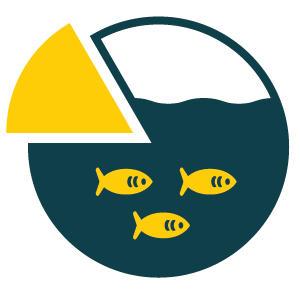
Background and rationale
The development of digital twins, including DTOs, offers realistic digital representations of assets, processes, or systems in the built or natural environment. DTOs enable users to provide answers to “what if” questions in the context of ocean development, a sustainable blue economy and effective maritime spatial planning. By combining large amount of data and information with data-driven models and observations for relevant sea systems and their interdependency, DTO applications will allow for user-driven scenario building of effects of natural processes and anthropogenic activities on the marine environment. This ability will enhance planning rapid responses to unexpected events at sea and provide innovative, interactive, and user-driven tools available to citizens, entrepreneurs, scientists, and policymakers. R&I efforts in this area will also help improving our understanding of the abilities and the limitations of DTO applications as decision support tools and to ensure responsible usage in management decisions.
Actions under this Intervention Area will be dedicated to development and use of DTO systems integrating and observations at sub-basin scale, i.e., spatially limited areas within sea-basins considering also the wider data issues such as collection, treatment, availability, dissemination and gaps. Different types of datasets such as from monitoring, research and observation are included. This will provide accurate information on the limits and knowledge gaps of single/interconnected sub-modules (physical, biogeochemical, ecosystem, socio-economic) and details for integrating spatial hierarchical models.
This Intervention Area complements the development of the European Digital Twin of the Ocean (EDITO). The EDITO is a core element of the Digital Ocean Knowledge System and flagship initiative of the EU Mission Restore our Ocean and Waters with its core data infrastructures and ocean services, including Corpernicus Marine Service and EMODnet. The activities in this IA are closely linked with the assessment and improvement of the EU observing system under EOOS framework, and it will require deployment and coordination with ocean related ESFRI Research Infrastructures.
Key thematic areas
The concept approach of this Intervention Area – the development, validation, observation and use of DTOs at sub-basin scale – is a multidisciplinary, long-lasting research and innovation activity. The initial focus will be on some spatially limited areas at sea-basin level at low TRL to improve our understanding of the relations among the essential processes and system components of the marine environment. The aim is to develop holistic types of DTOs that include and model all essential processes and their interactions: circulation and currents, waves, tides, interaction with the atmosphere, but also seabed and sediments, coasts and estuaries, animal and plant life, the ecosystem, and socio-economic activities and impacts. Considering that a major requirement for the development of any DTOs is the availability of appropriate and high-quality data, this intervention area also covers data acquisition from observations, quality control, storage, availability, dissemination, and analysis and incorporation of data into the DTOs through AI and data assimilation (DA).
DTO applications for scenarios should connect to the marine environment but also to blue economy activities at local level. The development of validated, fit-for-purpose DTOs at sub-basin scale will include several phases, notably the selection of targeted sub-basins, the collection of relevant data for these areas, the development of process-driven, data-driven dynamic models representing the essential processes that characterize these basins, and the evaluation of the mutual interactions among the systems. Further steps include the combination with relevant models, the development of digital systems and new sensors, fit-for-purpose observations, connecting and contributing to a data-lake for storage of constantly increasing and heterogeneous data (to eg. validate models and feed AI simulators), the development of the framework for computation of multidisciplinary equilibrium among the systems, and numerical solution via large High-Performance Computing (HPC) architectures. Finally, this DTO approach will require constant test and validation of models' predictions, delivering an assessment of risks and uncertainties as well as specialized tools for access, rapid analysis, and dynamic visualization of the data and the predicted solutions.
Activities should address the following aspects:
- Mapping and understanding user requirements for models, based on input from relevant communities (research, business, management), and turning this knowledge into applications based on stakeholder requirements.
- Assess data availability from multiple sources at regional level and identify possible data gaps that limit DT development.
- Using available data for uncertainty quantification of the data and models relevant to selected use cases at a sub-sea-basin scale.
- Demonstrate new sensors and innovative approaches to fill identified data gaps to provide more and more accurate information on sub-systems.
- Understand the trade-offs and risks associated to the holistic management of selected areas and map the needs for advancing fit-for-purpose observations and models where existing models do not apply.
- General frameworks for exchanging information between models.
A close scientific and expert cooperation and coordination is needed to ensure appropriate timing, complementarities, convergence, and interoperability with other ongoing and planned DTO initiatives, notably under the EU Mission “Restore our Ocean and Waters”, Horizon Europe actions (Cluster 6), national projects, and DTO core infrastructures.
Implementation, enablers, and synergies
In addition to cash calls for R&I proposals, there is good potential for in-kind contribution and engaging observing systems and national monitoring efforts to ensure harmonization of data collection and better coverage and frequency of measurements to improve the fundamental modelling.
Relevant SRIA enablers for achieving the targets include FAIR data; social sciences and humanities (SSH) integration and social innovation, considering the socioeconomic and coastal community aspects of area specific modelling; training activity that address human capacity needs; social innovation and rules for practical applications; sustainable financing of infrastructures.
Synergies will be sought with activities under Horizon Europe, including EU Mission actions, Copernicus, EDITO and EMODnet, EOOS UN Decade, relevant RIs, and other EU and national/international projects and activities.
Outcomes and Impacts
- Examples of outcomes from R&I investment in this area: Sub-basin ODT; Intelligent environmental monitoring systems and new sensor technology; synergies between available data networks.
- Environmental impacts: Planning and adaptation strategies put in place to tackle environmental and climate change.
- Social impacts: better stakeholder engagement (incl. citizens), inter-institutional collaborations & investments.
- Economic impacts: Higher use of intelligent decision support system (DSS) by industry, municipalities and coastal communities, and potential for circular business models.
2025 Intervention Area: Managing Sea-Uses
Intervention Area: Managing Sea-Uses
This Intervention Area addresses the need for innovative tools and approaches to sustainable, ecosystem-based planning and management of sea-uses, interlinking maritime spatial planning (MSP), the Marine Strategy Framework Directive (MSFD), Common Fisheries Policy (CFP), and the marine protected areas (MPAs) with a focus on the regional dimension.

Background and rationale
Planning and managing sea-uses are essential for sustainable resource management, conservation of marine ecosystems, conflict resolution, disaster risk reduction, economic development, and addressing climate change challenges. By adopting an integrated and holistic approach to planning and management, societies can ensure the long-term health, productivity, and resilience of the ocean. This is particularly relevant in coastal areas, where enhanced anthropic pressure, intensified land-ocean fluxes of matter and energy and overlapping of multiple human uses and users should coexist with ecosystem conservation goals, aiming at achieving a good environmental status.
The boundaries and operational objectives for sustainable development and Good Environmental Status are defined under the European Marine Strategy Framework Directive (MSFD). Within this framework, ecosystem-based management (EBM) of human uses and Maritime Spatial Planning (MSP) plays an important role in achieving Europe’s objectives of decarbonisation and biodiversity protection by supporting more efficient use of marine space, while reducing conflicting uses and inefficiencies in transport and related facilities (EC COM (2021)240 final). MSP plays a crucial role in defining suitable space for Blue Economy sectors to operate, while assessing and mitigating their cumulative impacts and promoting coexistence with other sea uses.
The overarching goal of this Intervention Area is to support science-based decision making that takes stock of environmental status, the legacy of human impacts, climate change trends, and future scenarios, considering multitude of pressures from uses of marine space and marine resources. The Intervention Area focuses on R&I needs related to Ecosystems-based management and Maritime Spatial Planning, aiming to support cross-border cooperation and management of marine protected areas, innovative tools for decision making that combine data from various sectors, as well as knowledge generation on areas such as Good Environmental Status (GES), focussed on land-ocean fluxes of nutrients and energy and emergent pollutants derived from urban systems, intensive agriculture and industrial activities and on the valuation of ecosystem services, particularly the carbon sequestration capacity of coastal blue carbon ecosystems. The Intervention Area also encompasses reconstructions of seafloor changes in 4D in areas of significant natural dynamic and/or heavy human impact, R&I needs within maritime surveillance, the development of innovative solutions to reduce the ecological impact of commercial ports as well as more inclusive processes for development of decision support-systems. Co-design, co-development, and co-use with MSP competent authorities at national and regional level will be essential to ensure direct capitalization of results and to widen the information basis available to relevant authorities, particularly by including socio economic data sources.
Key thematic areas
1. Fostering the full use of scientific knowledge for effective management and conservation
Assessments of ecosystem health is a prerequisite for effective environmental management and conservation. Innovative research on this topic will provide essential data for the identification of suitable areas for diverse uses, minimizing conflicts and maximizing sustainable development. Ecosystem based management, including MSP, requires high resolution mapping of marine underwater morphology and marine uses and quantification of indicators describing ecosystem status and pressures caused by human uses. The temporal evolution of the monitored variables, either abiotic (seafloor morphology, sediment dynamics, etc.) or biotic (community structure and function) are relevant for MSP, and other marine policies, notably the MSFD. Innovative strategies of repeated bathymetric surveys should be adopted in dynamic coastal and nearshore areas characterized by consistent sediment transport and consequent modification of the sea floor morphology. Scientific knowledge will provide essential tools for the evaluation of ecosystem services and for the maintenance or restoration of their supply. Effective management and conservation of the carbon capture capacity of coastal blue carbon ecosystems will help launching ecologically viable carbon sequestration management strategies within the EU Green Deal policy and to provide the needed knowledge to implement the EU Carbon Removals and Carbon Farming (CRCF) regulation. This thematic area will provide innovative tools for the assessment of ecosystem health and for the implementation of management strategies in complex socioecological systems at the land-ocean interface where intense human-derived pressures (nutrients, pollutants, sound, etc) derived from urbanization, agriculture or industrial activities occur, in close interaction with the Water Framework Directive.
Activities should address the following aspects:
- Research to better implement integrated economical, ecological, and social ocean health indicators into marine ecosystem management tools.
- Provision of essential data for enhanced understanding of marine ecosystems and effective environmental management and conservation and supporting the identification of suitable areas for different uses, minimizing conflicts, and maximizing sustainable development.
- Performing intelligent seafloor sampling surveys and assessing seafloor ecosystem health, damage/degradation of marine habitat and effectiveness of restoration measures.
- Generation of knowledge and tools for improving currently available risk assessment procedures and management strategies for extreme events in the coastal realm.
- Development of suitable ecosystem-based population dynamics models to support management and conservation strategies in the marine domain (considering also ecological connectivity and including MPAs)
- Research focussed on innovative tools for ocean health assessment and for the implementation of management strategies at highly anthropized land-ocean interface ecosystems, including those affected by large inputs from intensive agriculture, highly urbanized areas or industrial activities.
- Research aiming at gaining understanding on the resilient supply of key ecosystem services in complex multi-use and multi-users marine socio-ecological systems.
- Assessment of the spatial extent, carbon reservoir size and resilience and development of effective conservation and restoration strategies in coastal blue carbon ecosystems.
2. Sustainable commercial and industrial ports integrated in the coastal socio-ecological system
The thematic area closely interacts with the Partnership Zero-emission Waterborne Transport e.g. working group, and others, e.g. DUT, CET). Trying to minimize the overlapping between that partnership and SBEP, this thematic area is proposed to restrict its scope to the interaction between ports and the marine environment and to their role within the local coastal socio-ecological system though their interaction with other coastal and marine and maritime uses and users.
Commercial and industrial ports occupy a significant fraction of the littoral boundary in highly urbanized areas affecting coastal diversity being one of the main economic activities operating at the land-ocean interface. They are a source of nutrients, pollutants, energy and alien species entering local marine systems and are key players in the coastal socio-ecological system frequently interacting and generating conflicts with other uses (fisheries, tourism, recreative activities etc). The decarbonisation process of ports may have impacts on the marine environment associated to the development of renewal energy platforms. Moreover, strategic and operational planning of port areas is crucial in determining maritime transport routes and heatmaps and therefore their interactions and potential conflicts with other uses and with marine ecosystems (e.g. NIS, emissions of pollutants, underwater noise).
Activities within this thematic area should focus on:
- Development of new technological and management tools towards zero-waste (including all types of pollutions) and carbon neutral ports
- Adapting port infrastructures to future maritime climate scenarios, including sea level rise and extreme events (Blue infrastructures to be considered)
- Restoration of highly modified water bodies and sedimentary systems affected by port activities
- Investigating innovative Nature based Solutions (see definition NbS) to enhance marine diversity associated with port infrastructures.
- Reducing environmental impacts of port renewable energy systems on the marine environment
- Identifying and testing solutions to improve the coexistence of maritime transport with other uses and reduce impacts on ecosystems within MSP processes at national and transboundary level
- Identifying and testing solutions to improve the coexistence of maritime transport with other uses and reduce impacts on ecosystems within MSP processes at national and transboundary level
3. Enhanced Marine and Maritime Surveillance
Maritime Surveillance includes the protection of marine resources from illegal activities (fishery control, oil spill detection, environmental degradation monitoring etc.), food security, transport safety and the monitoring of critical marine infrastructures (e.g., renewable energy and aquaculture offshore platforms), key issues for a sustainable blue economy. Different observation systems for data acquisition (satellite and stratospheric-platform, including ship-borne observations), sharing and management are the fundamental tools of Maritime Surveillance.
Activities should explore obstacles and opportunities for:
- Integrating platforms and services for maritime surveillance through data sharing between the existing EU and national platforms.
- Implementing platforms allowing the integration of marine and maritime data analytics with socio-economic data.
- Data from maritime surveillance to inform the implementation of monitoring processes.
4. Development of innovative Decision Support Tools (DSTs)
MSP is recognized today as an essential tool to prevent conflict between policy priorities and to reconcile nature conservation with economic development (EC COM (2021) 240 final). Its complexity requires sophisticated tools to analyse and visualise data, assess potential conflicts, and identify optimal solutions. DSTs can significantly enhance the effectiveness and sustainability of MSP processes. By integrating multiple data sources and modelling techniques, DST will allow decision-makers to evaluate different scenarios and provide for a better-informed decision-making by considering the broader impacts and interdependencies among different sea-uses.
Activities should address the following aspects:
- New methodologies for integrating and operationalising socio-economic and socio-ecological aspects in MSP to quantitatively estimate environmental, social, and economic benefits of MSP in present and future scenarios.
- Filling knowledge gaps on pressures, states, and ecosystem functioning, as well as re-use potential of relevant data from existing repositories and broader sources.
- Explore transboundary scenarios and multi-lateral solutions (e.g., international protected areas; protection of highly mobile species and shared stocks and resources; environmental disasters; preparedness to marine hazards).
- Identifying environmental and socio-economic trends and drivers and building scenarios at sea basin and sub-sea basin scale for informed adaptive planning and management.
- advanced models for integrating multiple disciplines to create digital intelligent supporting tools (including Artificial Intelligence based) able to consider environmental processes, anthropogenic activities (coastal and sea uses), socio-economic and socio-ecological aspects. case studies and demonstrators of the concrete added value of the developed DSTs for specific sector planning demands, with a focus on coastal areas and land-sea interactions (e.g., offshore renewable energies, aquaculture, fisheries, maritime transport, coastal and maritime tourism, commercial ports and multi-use of marine space).
- Overcoming technical and non-technical barriers in co-using advanced DSTs in institutional MSP processes.
Implementation, enablers, and synergies
R&I calls for proposals are important to address knowledge gaps, develop solutions, and build R&I capacity within the area. There is good potential for engaging observing systems and RIs through additional activities (in-kind contributions), e.g., in relation to maritime surveillance and seafloor sampling and observation. Development of blue economy sectors and the optimal use of resources etc are addressed in IA: "Transitioning Blue Economy Sectors", and part of other IA's.
Innovative governance and integration of SSH are key enablers to achieve the goals. Research and innovation efforts are needed to address the lack of data standards and challenges of combining data from a variety of sources.
The Intervention Area will build on input from relevant projects under HE (Cluster 6 Destination 1 topics in particular). It will align with EU Missions ‘Restore our Ocean and Waters’ and 'Adaptation to Climate Change' and the DTO initiative. Among European Partnerships Biodiversa+; Artificial Intelligence (AI), data and robotics, Zero Emission Waterborne Transport, and FutureFoodS will be of relevance.
Many organizations and initiatives at global and sea-basin scale are involved in promoting and implementing MSP, including from United Nations to the UNESCO/IOC to executing authorities of the Regional Sea Conventions to national governments implementing relevant European directives.
Outcomes and Impacts
- Examples of outcomes from R&I investment in this area: enhanced capacity for R&I in support of MSP; co-designed AI-based DSTs for MSP; application of DSTs to case study areas/topics; framework conditions for a stronger ocean industry collaboration across sectors; identification of data-gaps; improved MSP plans, transferring DST results in the formal MSP processes & plans; tools for the implementation of relevant policies, strategies and directives; transdisciplinary and socio-ecological approaches for MSP processes at different scales; more coherent MSP in the same sea basin and overall; common tools and decisions and transfer of tools among stakeholders in the involved regions; several regions and MS involved in the process of MSP and development; more climate resilient and ecosystem-based MSP; improved co-design / co-planning, from strategic objectives to specific management measures; skills and education to enable use of digital support tools.
- Environmental impacts: avoidance of negative impacts on environment based on early identification.
- Social Impacts: improved public trust in the research-innovation-management chain; Improved public literacy regarding transformations of the seafloor and water mass.
- Economic impacts: evidence-based decision making that greens the industry; decreased carbon footprint of blue economic drivers.
2025 Intervention Area: Transitioning Blue Economy Sectors
Intervention Area: Transitioning Blue Economy Sectors
The main aim of this Intervention Area is to support the development of blue economy sectors and the optimal use of resources in European oceans and seas in terms of space and material flows while ensuring the conditions for sustainability and reducing environmental pressures.
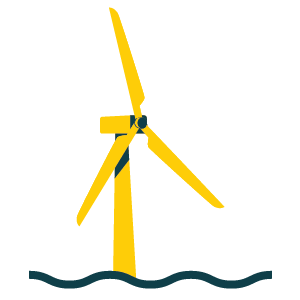
![]()
Background and rationale
The ocean industries face several common challenges which can be tackled more efficiently by stimulating cross-sectorial technological cooperation and ensure the transitions needed. The key drivers of technological development are sustainability, safety in operation, green and cost-efficient solutions.
Within the broader policy framework of the Partnership, the aim of the Intervention Area is to bolster long-term sustainable purpose-driven technological innovations. The Intervention Area is not limited to any sector or activity but covers the entire blue economy, focusing on the prerequisites for a green and digital transition of these sectors and on the conditions for co-existence and multi-use of activities and infrastructures at sea. Through this Intervention Area the Partnership will support marine and maritime contributions to curbing greenhouse gas emissions towards net zero and solutions for climate related mitigation and adaptation (e.g., Ocean-Based Carbon Dioxide Removal, production of blue renewable energy) that strengthen societal and economic resilience against climate-change impacts and addressing other environmental concerns. The Intervention Area focuses on actions that will bring us closer to sustainability, whether in relation to materials (cf., EU Waste Framework Directive, Critical Raw Materials initiative) and/or helping to minimise conflicts deriving from the demands for space at sea or at the coast.
The activities within the Blue Economy sectors represent highly complex multi-actor social-ecological systems. The transition of these sectors will therefore include broad industrial stakeholder involvement and a diversified funding strategy. Common challenges within all highlighted target areas include regulatory and legal constraints and opportunities, social acceptance of the developments for existing and emerging sectors, socio-economic considerations for a just transition, and broad and inclusive approaches based on principles of social innovation (attitudes and perceptions; learning, networking, and collaboration; and scale, scope, and resonance). Other common challenges are related to corporate social responsibility and social acceptance and license to operate, and the need for new or improved tools and regimes to manage complex safety, security and risk conditions arising from increased co-existence and multi-use structures, including considering biodiversity and cross sectoral issues.
Key thematic areas
This Intervention Area contains two strongly connected sub-areas. There are equally strong linkages with the intervention areas on digital twin solutions, and on marine spatial planning. The focus here is on the material and spatial intervention aspects.
1. Transitioning the Blue Economy through innovations
Actions under this Intervention Area should emphasise technology and process development, solution orientation, and integrated approaches to develop the sustainable Blue Economy in the context of climate change and other environmental challenges. Projects and their clusters should plan a clear path (e.g., value chain perspective) from new knowledge and innovative services and/or products to a possible service offer to end-users and how to address demands by end-users. Actions can also explore opportunities for connections between different functions of activities, private as well as public, in the marine domain.
In relation to the climate, biodiversity and other environmental challenges, there is a need to:
- improve resilience to natural disasters,
- increase natural capital (enhancing marine biodiversity), and
- restore ecosystems (e.g., advance nature-based solutions (NbS) (see definition NbS), and
- to consider safe and acceptable possibilities for the sequestration of carbon in a biotic or abiotic form in the marine domain.
Activities should address the following aspects:
- Tools, techniques, and processes, to facilitate, monitor and/or assess impacts of interventions in the marine domain that address the above, contributing to understanding and quantifying the ecosystem responses to direct and indirect anthropogenic pressures.
- Promoting standardisation in innovation and procurement processes to scale up the application of new solutions at higher Technology Readiness Levels (TRL).
- Developing co-creation and collaboration to enhance understanding for scientists and policymakers to assess overall environmental, social and economic impacts (including multi-use) on the ocean and society.
- Creation of markets and business models: identification of opportunities for profit within appropriate bounds of social license.
The high material intensity of maritime activities, taking account of rapid changes in energy systems requires full consideration of transition to circularity for existing and upcoming sea-based activities. This includes enabling novel materials and technologies for sustainable manufacturing and product life cycle management, as well as ensuring safe and acceptable possibilities for the sequestration of carbon in a biotic or abiotic form in the marine domain. Activities should address the following aspects:
- Decommissioning options in existing and upcoming segments of the transport and energy sectors at meso (type) and macro (sector segment) level,
- Sustainable and cost-efficient solutions for construction, maintenance, reuse of offshore structures.
- Business models for possible investment mechanisms to facilitate the re-use of installations in the marine domain addressed from a legal, environmental, and economical perspective.
- Innovation for minimizing any impact and reducing environmental footprint of new structures, small- and medium-sized vessels and recreational boating, installations.
- Nature-based Solutions: compatibilities and incompatibilities of material use(s) in view of enhancing natural functions using a combination of approaches.
- Carbon: activities and their consequences in relation to sequestration of carbon in the marine domain.
2. Improve co-existence and multi-use infrastructures
In view of the increasing demand for space, activities and functions at sea, multi-use spatial concepts, including multi-use infrastructures, bring a potential for synergistic benefits for associated sectors. At the same time, the risk of conflicts and negative environmental effects needs to be minimised. Any multi-use of installations or space increases the complexity compared to a ‘single-use’ situation and requires cost-benefit analysis to understand and valorise its economic and social value chain (e.g., research and innovation, new job profiles, diversification of the tourism sector) and make informed decisions as to its benefit for society and the environment. As an example, industry actors can support multi-use by proposing possible investment mechanisms to facilitate the re-use of installations from a legal, environmental, and economical perspective.
Crowding of space may result in industrial activities moving to further offshore areas, and climate change will generate a more hostile environment for marine and maritime operations (higher sea states, more frequent extreme events). Activities should address the following aspects:
- How to deal with increased challenges for operations and platforms, for which management and monitoring of operations will need intelligent, faster, and more reliable control systems for remote intervention, including data simulation of potential accidents and spills, efficient strategies for prevention/containment, and consequent environmental remediation approaches.
- Mechanisms to promote sustainable, safe and secure coexistence of several spatial functions and activities (e.g., energy production and habitat protection, or energy production and sustainable integrated aquaculture) within the Blue Economy, and how to address such coexistence within the legal, economic, social, management, and policy context.
- How to combine infrastructure, functions, and logistics: For example, energy produced at sea can be used for aquaculture farms, hydrogen production, and desalinization, whereas hydrogen can also be used as a vector to transfer energy on shore, or to refuel ships propelled by hydrogen.
Implementation, enablers, and synergies
Direct engagement with stakeholders from the industry is foreseen to reflect the range of sectors addressed within this Intervention Area. R&I activities will involve multiple domains including mathematics/physics, maritime, marine and aquaculture sciences, science diplomacy, economics, legal studies, and political sciences, and extend to research infrastructures and their authorities responsible at national level, and NGOs. Co-creation is foreseen by aligning activities with those of the EU Mission 'Restore our Ocean and Waters' and their regional lighthouses. Maritime spatial planning (MSP), the marine strategy framework directive (MSFD), common fishery policy (CFP), and the marine protected areas (MPAs) with a focus on the regional dimension, are addressed in IA: "Managing sea-uses".
A range of tools are foreseen to enable R&I, including Knowledge Hubs, fora with industry to understand gaps and needs, capacity building for countries without expertise in marine structures, and R&I call(s). A successful implementation will need the support of innovative NbS and purpose-driven and smart digital technologies, e.g., simulations, risk assessments and planning purposes, automated data collection and monitoring, models, taxonomy. There is good potential for engagement of in-kind infrastructures such as test-basins, simulation facilities, Digital Twin technologies, and research platforms.
Outcomes and Impacts
- Examples of outcomes from R&I investment in this area: solutions for curbing greenhouse gas emissions, targeting climate neutrality in the Blue Economy, strengthening societal and economic resilience against climate-change impacts, and targeting climate neutrality from marine and maritime infrastructures. Improved assessments of ecological dynamics versus socioeconomic needs; New knowledge, tools, information, platforms, and incentives to support actors from all sectors to drive the just and inclusive transition; piloting of multi-use structures; science-based recommendations for blue economic development to policymakers; support for bio- and ecological observation networks through multi-use of structures.
- Environmental impacts: Improved marine biodiversity & ecosystems and increased clean (renewable) energy generation (e.g., coupling energy production with habitat protection through the creation of OECM- Other Effective Area-Based Conservation Measures); Better planning of marine areas suitable for the production of reviewable energy. More agile frameworks developed to cater to environmental challenges; Increased uptake of nature-based solutions; Increased resilience of the whole ecosystems (including fisheries).
- Social impacts: Generation of sustainable blue growth and markets in alignment with stakeholder interests and consumers’ rights; opportunities for new working life skills and knowledge; social acceptance of improved and new uses of ocean structures, including within the Blue Economy sectors, is achieved, and affected citizens and workers are engaged in the development.
- Economic impacts: generation of sustainable blue markets and opportunities; introduction into the EU legislation the allocation of areas devoted to renewable energy production.
2026 Intervention Area: Blue Bioresources
Intervention Area: Blue Bioresources
To achieve sustainability, it is important to consider the entire value chain, from production (capture fisheries, aquaculture, etc) to seafood processing, extracting value from waste streams, developing new types of biomasses, new food and non-food products, as well as advanced extraction technologies such as those used in biorefineries. Specific cross-cutting enablers from the Partnership’s Strategic Research and Innovation Agenda (SRIA) have been identified as particularly important for all Intervention Areas. These include the use and application of digitalisation, Artificial Intelligence (AI), and Digital Twins (DT), as well as the inclusion of Social Sciences and Humanities (SSH) perspectives and, in addition, the implementation of Nature-Based Solutions (NbS). All of these elements should be incorporated wherever necessary to achieve the desired outcomes.

Background and rationale
The EU Green Deal sets the context for Europe’s blue economy to become sustainable and climate-neutral by 2050. The Blue Bioeconomy represents an important component of the broader blue economy, delivering food, feed and bio-based products for internal and export markets. With the completion of the Horizon 2020 BlueBio ERA-Net in 2023, the SBEP becomes a key implementing mechanism in Horizon Europe for blue bioeconomy R&D. To achieve sustainability, it is important to consider all stages of the bioresources value chain, from production (capture fisheries, aquaculture etc) to seafood processing, extracting value from waste streams, developing new types of biomasses, new food and non-food products, as well as advanced extraction technologies such as those used in biorefineries. Cooperation will be sought with the FutureFoodS partnership, which will focus on the post-farming and fishing part of food systems, avoiding overlaps as much as possible.
Key thematic areas
1. Sustainable Fisheries and Harvesting
Overexploitation and the cumulative impact of overfishing, with the effects of pollutants, climate change and other drivers on susceptible species and ecosystems, is leading to unsustainable scenarios for the next decades. Moreover, as stated in the Misalignment of EMFAF Operational Programmes with EU Environmental and Social Objectives (2021–2027) Policy Brief, there is a persistent mismatch between the measures that need financial support to achieve the EU’s environmental and social objectives and the way EU public funds are actually used. In the marine sector only, this misalignment is particularly stark. In Europe, a significant share of EMFAF resources continues to support activities that harm marine ecosystems rather than funding solutions that protect them. To bring Europe's fish stocks back to sustainable levels, there are important challenges remaining. More food, feed or biotic resources for other purposes can be obtained from more targeted fisheries and harvesting by improved management of overfished stocks, optimised fishing technologies and practices to reduce bycatch and discards, and increased fishing and harvesting of underutilised species (i.e., zooplankton, other invertebrates, macroalgae, invasive species). A forward-looking ecosystem-based management (EBM) approach under EU legislation, yet tailored to local conditions, will reduce adverse impacts of fishing and harvesting on marine ecosystems, particularly sensitive species, and on vulnerable habitats. The sustainability of mesopelagic fisheries is still being assessed and there is a unique opportunity to ensure that EBM is embedded from the outset. New digital tools such as remote electronic monitoring systems, catch reporting using mobile applications, ecosystem modelling and artificial intelligence tools can optimise both small- and large-scale fishing operations. At the same time, such technologies can enable data collection and analysis that can support the development of sustainable management practices, while providing full traceability for our seafood. Assessments and solution scenarios should consider the impact and social implications of combined drivers such as habitat degradation, pollution, warming, water stratification and acidification, as well as their effects, such as changes in ecosystem composition, higher frequency of toxic algal blooms and alterations in species migration and phenology.
Activities should address the following aspects:
- Integrated approaches to innovation for fishing vessels to improve vessel operations and practices, including technology for e.g., location (also to contrast illegal fisheries), and water characteristics, catch logistics, while reducing the use of fossil fuels.
- Exploring and co-developing with industry the potential for new fishing techniques, technologies, and new resources for small-scale fisheries, seaweed harvesting and new invasive species, and ways to support fishers in this transition.
- Research to inform policy options and management of migratory fish stocks that spend different parts of their life cycle in different jurisdictions.
- Supporting the application of ecosystem-based management approaches.
- Understanding the impacts of climate change and human activities, including pollution, on commercial fisheries, fish stocks and other species with commercial potential.
- Understanding cross-compliance, alignment and trade-offs between fisheries policy and management with other policy domains (MSP, MSFD, WFD) and the implications of measures associated with the EU Nature Restoration Law on fishing and fishers.
- Technological advancements to preserve the nutritional value.
- Increased R&I efforts to improve the understanding of species’ role in the trophic webs, as well as their growth potential as seen in an integrated sustainability and biodiversity-resilience perspective, including the knowledge in concrete management solutions (based on managers’ needs).
- Understanding the social, economic and regulatory drivers, and consequences of change in commercial fisheries to inform both fisheries, economic and regional development policy and planning.
- R&I that supports new digital tools for monitoring for well-informed and timely decision making and sustainable management.
- Development of more selective fishing gears that reduce environmental impact, particularly in the bottom-contact fisheries, and for harvesting new species including macroalgae.
2. Aquaculture
Production of safe food, ensuring food security, and producing sustainable bioproducts through aquaculture have room for improvement in diversification, competitiveness, and environmental performance. Aquaculture production should be rethought to satisfy growing consumer demand for blue food, as well as the need for innovative blue bioproducts, while enhancing the social, economic, and environmental sustainability and carbon neutrality of the production. This requires targeted technological advancements and diversified production solutions also considering regional and local differences throughout Europe. Regenerative aquaculture, integrated multitrophic aquaculture (IMTA), offshore production, including in multi-use platforms, closed systems, or land-based infrastructure with the use of recirculating aquaculture systems (RAS), are options for culturing established and new species. Diversification of species, in particular the expansion and production of organisms of the primary and/or low trophic levels, faces several challenges that need technological advancements. For macroalgae, there is a need for R&I that supports spatial considerations, as well as new offshore production techniques that require further development and facilities, including larger-scale farms, mechanisation, and methods for post-harvest processing. The new and modified technological and digital systems should favour and promote the health and welfare and quality of the farmed fish.
Activities should address the following aspects:
- Challenges and opportunities associated with further development and expansion of seaweed production (including macro- and microalgae), in relation to environmental, health and safety concerns, e.g., vectors for diseases, spread of invasive species, bioaccumulation, etc.
- Development of biologically, technically, and economically feasible onshore recirculating aquaculture systems opportunities for fish, shellfish, and seaweed.
- Challenges and opportunities associated with aquaculture, including potential threats for food safety such as algal blooms, bioaccumulation and biomagnification of xenobiotics; production of sustainable and healthy feed, cost/benefits for longer distance offshore production.
- Innovative alternative solutions to produce established and new species, including integrated multitrophic aquaculture, regenerative aquaculture, new systems associated with other economic offshore activities, and closed or land-based systems.
- Development/adaptation of aquaculture to work as a Nature-Based Solution (NbS) towards environmental challenges and climate change.
- New high-value and sustainable feed sources to ensure sufficient and balanced feeds that promote fish quality, health, and welfare.
- Development of Digital Twins for a holistic approach, including design, build and operation phases.
- Identifying the socio-economic challenges of integrating aquaculture into the existing sea-based economy, or the socio-economic consequences of replacing existing activities. Providing evidence for policy development to mitigate the ‘crowding out’ effects related to challenges accessing investment funding, skilled labour markets, and the licensing and regulatory barriers faced by potential small and medium-sized aquaculture start-ups.
3. Enabling a circular blue bioeconomy
Transitioning to a circular blue bioeconomy, whereby the entire biomass of fish, shellfish and seaweed sourced from capture fisheries and aquaculture is utilised, presents both challenges and opportunities. Current policy and regulation can be a barrier to developing new bio-products from waste or side streams (by-catch, rest raw materials etc.), and there is a growing body of evidence to support policy reform. New, sustainable, high-value products can be developed through a biorefinery approach, e.g., by valorising waste streams, thereby minimising waste and enhancing the value chain. Further exploration of the synergies between blue (aquatic farming) and green (agriculture) is another opportunity in a fully circular blue bioeconomy. For example, side streams from agriculture could be used in aquaculture, or bio-stimulants derived from marine sources could be used in agriculture. New solutions are also needed for existing challenges, e.g., seaweed as a bioplastic.
Activities should address the following aspects:
- Opportunities for developing new sustainable bio-based products (feed/chemical/pharmaceutical/material/food) or services to accelerate the ocean economy and provide solutions for existing challenges.
- Technology challenges to overcome sensory and other drawbacks to increase consumer acceptance for new products.
- R&I in support of traceability of bio-based products from marine sources through digitalisation.
- R&I that supports policy reform with respect to regulations on use of waste or side streams for a variety of new bio-based products (feed/chemical/pharmaceutical/nutraceutical/material/food.
Implementation, enablers, and synergies
R&I topics will be formulated for calls for proposals, where projects will be expected to involve a broad range of scientific disciplines, industry partners, citizens, and policy stakeholders in order to meet the stated objectives and the quadruple helix ambition. Relevant additional activities could include bringing together diverse marine stakeholder to co-develop objectives, assessing the access and status of research, testing, and demonstration facilities, or supporting the uptake of innovative solutions.
Synergies and complementarity will be sought through dialogue with other relevant and potential overlapping initiatives, particularly EU partnerships Biodiversa+, FutureFoodS, Water4All, and Animal Health and Welfare; actions under the Mission Restore our Oceans and Waters (Mission Ocean); the Circular Bio-based Europe Joint Undertaking (CBE-JU) and Waterborne platform. It is important to ensure that new knowledge, products, or services stemming from Cluster 5 and 6 calls are taken up in relevant blue sectors (by both production and value chain stakeholders).
Outcomes and Impacts
The R&I investments in this Intervention Area are expected to yield tangible outcomes and impacts across environmental, social, and economic dimensions.
- R&I investment impacts: Sustainably produced, healthy, nutritious, affordable and climate friendly blue food; diversification of food, feed and other feedstock for products with focus on lower trophic levels; improved production efficiencies, for seafood products; greater understanding of the impacts of climate change and human activities on commercial fisheries and fish stock; value chain approaches; aquatic bio-productions that are regionally adapted, well integrated into area-based management, with more selective and less damaging fishing techniques; deployment of new technical solutions, digital capabilities such as AI and DTOs, nature-based and social innovations as well as community-led and purpose-driven technology for the blue food sectors.
- Environmental impacts: healthier marine ecosystems; reduced impact of fisheries on marine habitats; reduced overfishing by supporting legislation to reducing fishing pressure on overexploited species; optimized technology for reduced bycatch and disincentivising its exploitation; supporting the industry shift towards carbon neutrality by development of more selective and less energy-consuming technologies and procedures.
- Social impacts: more informed consumers; improved understanding of social and economic drivers of change in the blue bioeconomy and in economic and regional development policy and planning; uptake of innovative fishing gear; better support to fishers in this transition.
Economic impacts: productive and competitive greening of the fisheries, aquaculture and processing sectors; improved traceability and labelling of blue food; increase in the number of blue-green companies, products, processes and services; reduced import dependencies and strengthened tech industries; policy and management options to inform EU (common fisheries policy) and third-party negotiations in respect of migratory species.
2026 Intervention Area: Managing Sea-Uses
Intervention Area: Managing Sea-Uses
Specific cross-cutting enablers from the Partnership’s Strategic Research and Innovation Agenda (SRIA) have been identified particularly important for all Intervention Areas. These include the use and application of digitalization, Artificial Intelligence (AI), and Digital Twins (DT), as well as the inclusion of Social Sciences and Humanities (SSH) perspectives and, in addition, the implementation of Nature-Based Solutions (NbS). All of these elements should be incorporated wherever necessary to achieve the desired outcomes.

Background and rationale
The boundaries and operational objectives for sustainable development and Good Environmental Status are defined under the European Marine Strategy Framework Directive (MSFD). Within this framework, an integrated and holistic approach to planning and management i.e. ecosystem-based management of human activities (EBM), and Maritime Spatial Planning (MSP) play an important role in achieving Europe’s objectives of decarbonisation and biodiversity protection by supporting more efficient use of marine space, while reducing conflicting uses and inefficiencies in transport and related facilities (EC COM/2021/240 final). MSP plays a crucial role in defining suitable space for Blue Economy sectors to operate, while assessing and mitigating their cumulative impacts and promoting coexistence with other sea uses. MSP also needs to ensure that these human activities are compatible with restoration goals, as defined in the Nature Restoration Regulation (NRR) and take into account existing and planned marine protected areas (MPAs). Furthermore, MSP should consider knowledge on climate change, be flexible to changing conditions and support climate mitigation and adaptation (Frazão Santos et al, 2024). This is particularly relevant in coastal areas, characterised by enhanced anthropogenic pressure from overlapping multiple uses and intensified land-ocean fluxes of matter and energy, which render ecosystem conservation and restoration goals, aiming at achieving a good environmental status, even more challenging.
The overarching goal of this Intervention Area is to support science-based decision making that takes stock of environmental status, the legacy of human impacts, climate change trends, and future scenarios, considering the multitude of pressures from uses of marine space and marine resources. The Intervention Area focuses on R&I needs related to ecosystem-based management and Maritime Spatial Planning, aiming to support cross-border cooperation and management of marine space and marine protected areas, innovative tools for decision making that combine data from various sectors (eg, decision support systems), as well as knowledge generation on areas such as Good Environmental Status (GES). Co-design, co-development, and co-use with MSP, MSFD and NRR competent authorities at the national and regional levels will be essential to ensure direct capitalisation of results and to widen the information basis available to relevant authorities, particularly by including socio-economic data sources. The implementation of ecosystem-based MSP is currently hindered by a lack of standardised procedures and indicators, fragmented governance with weak cross-border coordination, and significant data and knowledge gaps, particularly regarding ecosystem functioning, cumulative impacts, and socio-ecological linkages. Through targeted actions at a sufficient scale, this IA has the potential to contribute significantly to the implementation of the MSFD and the review of the MSP Directive, its relationship with nature restoration and to the EU Ocean Pact.
Key thematic areas
1. Fostering the full use of scientific knowledge for effective management, conservation and restoration
Assessment of ecosystem health is a prerequisite for effective environmental management, conservation and restoration. Innovative research on this topic will provide essential data for the identification of suitable areas for diverse uses and setting boundaries for these uses through licensing, thereby minimising conflicts and maximising sustainable development and protection of marine ecosystems. Ecosystem-based management, including MSP, requires high-resolution mapping of ecological features and human uses and quantification of indicators describing ecosystem status and (cumulative) pressures caused by human uses. The temporal evolution and spatial patterns of the monitored variables, either abiotic or biotic (community structure and function) are relevant for MSP and other marine policies, notably the MSFD and NRR. Scientific knowledge will provide essential tools for the evaluation of ecosystem services and for the maintenance or restoration of their supply. Effective management and conservation of the carbon capture capacity of coastal blue carbon ecosystems will help launching ecologically viable carbon sequestration management strategies within the EU Green Deal policy and provide the needed knowledge to implement the EU Carbon Removals and Carbon Farming (CRCF) regulation. This thematic area will provide innovative tools or strategies for the assessment and restoration of ecosystem health and for the implementation of Nature-based Solutions and management strategies in complex socioecological systems. At the land-ocean interface, where intense human pressures (nutrients, pollutants, sound, etc) derived from urbanisation, agriculture, or industrial activities occur, close interaction with the Water Framework Directive implementation is needed.
Activities should address the following aspects:
- Research focused on status and ecosystem service assessment, through development of monitoring programmes and methods to assess ecological status, including of MPAs, notably of protected species and habitats therein, and evaluate management effectiveness, both for individual MPAs and regional MPA networks. Digitalisation of monitoring processes enables more efficient and accurate data collection and analysis.
- Development of approaches, eg, using natural capital accounting or simulation tools, can help predict ecosystem responses and optimise management strategies, for the integrated assessment of ecosystem services to provide more information on the links between the ecosystem and the social-economic system to support the implementation of ecosystem-based management of human activities and marine policies.
- Research focused on pressures and their impact, through improved data coverage of physical and chemical human pressures affecting seafloor integrity, and of benthic habitats, eg. by performing intelligent seafloor sampling surveys, to assess the status of these habitats and evaluate the effectiveness of restoration measures. Artificial intelligence can be applied to analyse complex datasets and identify patterns in human pressures and ecosystem changes.
- Research focused on developing reduction targets for anthropogenic pressures, such as for pollution through quantification of nutrients, hazardous substances and litter sources that lead to inputs to the sea, especially in highly anthropised land-ocean interface ecosystems, and quantification of efficiency of measures that can curb these sources. Sources are both land-based (agriculture, urban and industrial wastewater, ports) and sea-based (shipping, offshore energy production, aquaculture). With regard to sea-based sources of pollution/introduction of energy, underwater noise and electromagnetic fields are also of concern. For underwater noise, the EU threshold values still need to be specified regarding the target species and relevant habitats to be considered.
Research focused on the effectiveness of measures, including Nature-based Solutions, with the identification of areas, as well as development and improvement of methods, for the restoration of benthic habitats/biotopes, e.g. habitat-forming species such as seagrass beds, macrophyte stands and reefs, along with improving the understanding of the wider synergistic effects of habitat restoration efforts. This aims to support effective measures to improve biodiversity and nature-based solutions for tackling climate change and its impacts, using, for instance, the carbon sequestration capacity of coastal blue carbon ecosystems.
2. Development of innovative Decision Support Tools (DSTs)
MSP is recognised today as an essential tool to prevent conflict between policy priorities and to reconcile nature conservation with economic development (EC COM/2021/240 final). However, the effective implementation of an Ecosystem-Based Maritime Spatial Planning (EB-MSP) framework is hindered by insufficient operational guidelines, poorly defined and time-bounded objectives, lack of standardised indicators and monitoring mechanisms, inadequate spatial and temporal boundaries for the assessments, and fragmented governance structures. Furthermore, data and knowledge gaps, such as limited information on ecosystem functioning, socio-ecological systems, and future spatial-use scenarios, combined with weak stakeholder engagement and a lack of adaptive management tools, collectively impede coherent, evidence-based, and cross-sectoral decision-making. The complexity of MSP and EB-MSP requires new digital tools to analyse large, heterogeneous datasets from various sources, as well as sophisticated tools to analyse and visualise data, assess potential conflicts, and identify optimal solutions that support predictive modelling. DSTs can significantly enhance the effectiveness and sustainability of MSP processes. By integrating multiple data sources and modelling techniques, DSTs will allow decision-makers to evaluate different scenarios and make better-informed decisions by considering the broader impacts and interdependencies among different sea uses. Following open science practices must ensure that research outputs of DST’s support policy-making, enhance public engagement, and remain widely accessible, fostering transparency, reproducibility, and innovation. The blue economy benefits from shared knowledge and resources.
Activities should address the following aspects:
- Development and improvement of (Artificial Intelligence based) Decision Support Tools that can perform qualitative and quantitative analyses to support implementation of the ecosystem-based management of human activities.
- Development of new digital and simulation-based methodologies to be included in DSTs to improve quantitative estimates of environmental, social, and economic benefits of MSP in present and future scenarios, taking into account climate change, at a transnational scale.
- Identifying environmental and socio-economic trends and drivers, including environmental disasters and preparedness to marine hazards, and building scenarios at sea-basin and sub-sea basin scale for informed adaptive planning and management, including deployment of nature-based solutions.
- Development of case studies and demonstrators of the concrete added value of the developed DSTs for specific sector planning demands, with a focus on the coastal areas and land-sea interactions (e.g., offshore renewable energies, aquaculture, fisheries, maritime transport, coastal and maritime tourism, commercial ports and multi-use of marine space). Case studies and demonstrators could identify and test for example:
- solutions to improve the coexistence of maritime transport with other uses and reduce impacts on ecosystems within MSP processes at national and transboundary level.
- embedding strictly protected areas, as well as dedicated fishing areas and maritime surveillance into MSP, through dedicated zoning and management measures.
- using nature-based solutions or nature-inclusive design of coastal structures such as harbours, breakwaters, etc.
- Contributing to overcoming technical and non-technical barriers in co-using advanced DSTs in institutional MSP processes.
Implementation, enablers, and synergies
R&I calls for proposals are important to address knowledge gaps, develop solutions, and build R&I capacity within the area. A significant leverage effect for creating sufficient scientific impact at the European level could be realised through transnationally synchronised pilot projects for large-scale knowledge and capacity exchange and intensified policy follow-up, resulting from joint programming of fieldwork, including needed experiments. This can apply to both thematic areas of this IA. There is good potential for engaging observing systems and RIs through additional activities (in-kind contributions), potentially synchronised with a transnational R&I call, e.g., in relation to seafloor sampling and observation, experimenting with an agreed range of tools and methodologies for specific targeted habitats and their communities (remote sensing, acoustics, eDNA, biologging, underwater camera’s, comparing no-take zones with others, etc.). The joint programming aspects can also take the form of a transnational task description and implementation for desk- or other research to fill urgent gaps in knowledge related to the assessment of environmental status efficiently, such as for underwater noise, hydrographical conditions, optimisation of eutrophication assessment, etc. R&I efforts are also needed to address the lack of data standards and the challenges of combining data from a variety of sources.
Development of blue economy sectors and the optimal use of resources are addressed in SBEP IA: "Transitioning Blue Economy Sectors" and are also part of other IAs. The present Intervention Area will build on input from relevant projects under HE (in particular, Cluster 6 Destination 1 topics). It will align with EU Missions ‘Restore our Ocean and Waters’ and 'Adaptation to Climate Change' and the DTO initiative. Among European Partnerships Biodiversa+; Artificial Intelligence (AI), data and robotics, Zero Emission Waterborne Transport, and FutureFoodS will be of relevance.
Many organizations and initiatives at global and sea-basin scale are involved in promoting and implementing MSP, MSFD and NRR, including from United Nations to the UNESCO/IOC to executing authorities of the Regional Sea Conventions to national governments implementing relevant European directives. These organisations have an interest in improving the scientific basis of their programmes and measures and are approachable for co-design of effective R&I projects. Accessible science agendas published by the Regional Sea Conventions OSPAR, HELCOM and the Black Sea Commission, and the Mediterranean Quality Status Reports provide background and concrete descriptions of the R&I needed for ecosystem-based management. It should be noted that each Region represents specific challenges regarding ecosystem status, economic developments and the geopolitical situation. Governance and implementation systems depend on collaboration with non-EU countries and on available resources. This Intervention Area therefore requires basin-specific adaptation of research.
Outcomes and Impacts
The R&I investments in this Intervention Area are expected to yield tangible outcomes and impacts across environmental, social, and economic dimensions. Expected impacts are enhanced capacity for R&I, including decision-support tools, to support the implementation of the MSP, MSFD, NRR, and CFP, and to contribute to the upcoming EU Ocean Pact and Water Resilience Strategy. This relates to the following impacts of R&I projects:
- Knowledge that contributes to management measures that effectively minimise current environmental impacts, prevent future harm through the early identification of potential impacts and facilitate evidence-based nature restoration. This includes contributions to the implementation of environmental policies and MSP.
- Knowledge that supports decision making with societal and environmental benefits, improves public trust in the research-innovation-management chain, improves public literacy regarding transformations of marine ecosystems caused by climate change and direct human impacts and enhances opportunities to engage in citizen science, including staff of blue economy sectors like fishermen and offshore energy maintenance staff.
- Knowledge that broadens and deepens the evidence base for decision making to create long-term perspectives for entrepreneurship in maritime sectors that should be green and not cause any significant harm to environmental objectives.
2026 Intervention Area: Resilient Coastal Communities and Businesses
Intervention Area: Resilient Coastal Communities and Businesses
Specific cross-cutting enablers from the Partnership’s Strategic Research and Innovation Agenda (SRIA) have been identified particularly important for all Intervention Areas. These include the use and application of digitalisation, Artificial Intelligence (AI), and Digital Twins (DT), as well as the inclusion of Social Sciences and Humanities (SSH) perspectives and, in addition, the implementation of Nature-Based Solutions (NbS). All of these elements should be incorporated wherever necessary to achieve the desired outcomes.
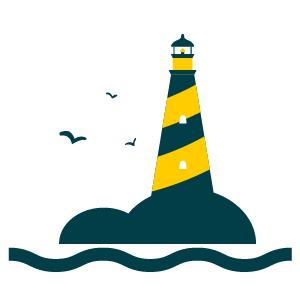
Background and rationale
Coastal communities across Europe, notably those located in rural or peripheral areas and lacking large-scale or heavy industry, face a range of challenges, some common and others specific to their local geographical, economic, social, and cultural conditions. Many of these communities rely on seasonal business opportunities provided by coastal and marine tourism and its value chain activities. While tourism represents an important economic activity and source of income for many coastal dwellers, an over-reliance on the sector presents specific challenges, including low wages, seasonality and higher housing costs for locals due to high touristic demand. According to the 2025 EU Blue Economy Report, remuneration for those employed in the tourism sector is lower on average than in other blue economy sectors (just 50% of those working in ports, for example).
Technology, working patterns and demographic shifts (including remote working) are enabling many workers to live or relocate to rural coastal areas, bringing new economic opportunities. However, such demographic changes bring their own challenges (e.g. cost of housing), and the lack of diversity in the economic ecosystem undermines economic and community resilience to exogenous shocks.
Coastal economic activities, including tourism, aquaculture, and small-scale fisheries, are highly dependent on the quality of marine and coastal environments but can also negatively impact them. Such commercial activities depend too on coastal infrastructure, including, for example, small harbours, marinas, and coastal protection infrastructure that provide an interface between the land and the sea but are in themselves exposed to risks from climate change and extreme weather impacts.
All of these elements, physical, economic, technological, social, cultural, ecological and climatic, interact with and impact upon coastal communities and businesses in complex and interconnected ways. Enabling the development of economic and social sustainability in coastal community settings through evidence-informed policy interventions, nature-based solutions and related concepts is a key downstream impact for this intervention area.
Key thematic areas
1. Resilient small-scale coastal businesses
Small-scale coastal businesses operate in a continually evolving socio-economic context where seasonality, limited access to high-skilled and flexible labour markets and low productivity and ‘innovation’ are commonplace. These businesses are also highly dependent on the quality of the marine and coastal environment and are in the front line of climate and weather impacts. An improved understanding of the challenges for existing small-scale businesses and the barriers for ‘start-up’ businesses to locate in coastal regions needs to be investigated. Also relevant is to understand how social innovation, hardly funded by European or National funds, can support the identification, investment in, and sustain small-scale coastal businesses. Policy interventions to encourage more diverse business ecosystems require a strong evidence base to be more effective in supporting planning and product development. Local, national, and EU public policy requires the development of multi-level strategies to foster resilience in small-scale coastal communities and businesses and to support the diversification of coastal and marine-based enterprises.
Activities should address the following aspects:
- Understand risks posed to coastal business and communities by climate change impacts (ocean warming, sea-level rise, biodiversity loss, etc.) and extreme weather events.
- Understand the social and economic disruptions arising as a consequence of rapid change in economic sectors experienced by coastal communities, in particular those with ‘cultural’ significance and the tourism sector.
- Assess the impacts of diverse coastal activities on marine and coastal environments, ecosystem health and the interdependencies with establishing resilient business ecosystems.
- Examine the impact of technologies on major societal changes caused by long-term and seasonal migration flows, which contribute to socio-political tensions.
- Explore how social innovation can help to enable diversification of coastal and marine-based enterprises.
- Define strategies for strengthening resilience and preparedness against natural and man-made shocks to coastal businesses, including through social innovation.
- Examine approaches to enable meaningful community participation and stakeholder ‘consent’ for significant policy and planning initiatives in coastal settings, including deployment of NbS.
- Improve understanding of the social and cultural costs and benefits as the coastal community transitions from traditional economic activity into a more diverse, low-impact, regenerative business ecosystem.
- Improve understanding of financing instruments and incentives for innovation, including social innovation, that support job creation in coastal communities.
2. Resilient coastal infrastructures
Coastal businesses (e.g., small-scale fisheries, aquaculture, and marine tourism) rely in large part on built infrastructure such as small harbours, piers, coastal protection, marinas, accommodation, restaurants, and other related infrastructure. These infrastructures are by nature of their location, highly exposed to the impacts of climate change (e.g. sea-level rise), geological hazards, coastal erosion and extreme weather events. Understanding the risks to existing infrastructure and advancing innovative approaches to the design and adaptation of coastal structures are key components underpinning sectoral resilience.
- Analysis of risks posed to coastal infrastructures by climate change and extreme weather events, and strategies to protect /re-design built structures (including Nature-based Solutions) and mitigate against risks that potential damages to such structures may pose to the safety and security of coastal communities and businesses.
- Advance opportunities to embed technologies in coastal infrastructures that can monitor environmental conditions, deliver early warning of risks/hazards and support long-term data on coastal conditions and environmental change.
- Enabling diversification on the use of coastal infrastructures by working with existing and emerging maritime sectors to foster an integrated ”business ecosystem”
- Mapping accurately specific public policies around water provisions, desalination and marine-based infrastructure management.
- Access the diversity of the demand per region of the necessary infrastructures (stable or mobile ones) and provide feedback to policy makers in approaching coastal development for local economic activities.
- Investigate options for a coastal economy ‘industrial strategy’ to identify effective policy interventions to encourage both private and public investment or subsidies to accelerate sustainable business start-up and relocation to coastal regions, particularly regarding coastal infrastructure.
- Compare regulatory frameworks across different European regions to stimulate and support coastal infrastructures; identify and better understand the successful ‘enabling regulation’ that minimises system frictions, costs and participation.
Implementation, enablers, and synergies
Interdisciplinary approaches, including technology, data, digitalisation, social science and humanities, can provide solutions to enable coastal and marine businesses, not only to transition to more sustainable, regenerative business models, but to create new integrated economic ecosystems to support new business sector development. In a European context, marine environmental data portals such as EMODNet and Copernicus provide users with access to a major source of information that can be used to improve decision-making and product development. Data and technological innovation are also critical enablers to inform the design and maintenance of coastal infrastructures.
Technology also underpins the possibilities promised by greater innovation, but this needs to be aligned with a better, comparative understanding of the social and cultural factors affected, which can reduce the positive impact of technology-supported interventions. It can also enable a range of activities in support of business development such as, building skilled and flexible labour markets and responsive/enabling regulatory frameworks.
A transition towards Nature-based Solutions (NbS) and related concepts (see definition see 2020-020-En.pdf) is an important opportunity to reduce the carbon footprint of activities linked to coastal businesses. NbS can, for example, promote the development of sustainable blue tourism in coastal areas, including strategies to combat coastal erosion, control the spread of harmful alien species, and potentially ensure the quality of bathing waters.
Outcomes and Impacts
The R&I investments in this Intervention Area are expected to yield tangible outcomes and impacts across environmental, social, and economic dimensions.
- Knowledge and guidance for public authorities and development agencies (national, local), to inform policy and planning to enable a just and efficient transition for coastal and marine businesses to a sustainable and regenerative business model.
- Greater understanding of the social and cultural context underpinning coastal businesses and strategies to ensure that the transition to a new sustainable business model safeguards the tangible and intangible cultural heritage of local communities.
- Greater understanding for key stakeholders (coastal businesses, community leaders, local authorities, etc.) of the risks posed by climate change impacts, extreme weather and geological hazards on small-scale businesses and coastal infrastructures, with the aim to develop strategies to foster greater resilience for coastal businesses and coastal infrastructures.
- Greater understanding of the role nature-based solutions or related concepts can have in strengthening coastal community resilience against risks posed by climate change impacts, extreme weather, and ecosystem degradation
- Greater deployment of innovative technologies, and use of data and digital products to strengthen resilience in small-scale coastal businesses and coastal infrastructures.
- Identification of effective models for ‘business ecosystems’, entrepreneurship ecosystem and innovation policies, including social innovation ones.
2026 Intervention Area: Transitioning Blue Economy Sectors
Intervention Area: Transitioning Blue Economy Sectors
In harmony with the European Ocean Pact and broader EU objectives such as the green, digital and just transitions and the Competitiveness Compass, the IA promotes technological and systemic R&I that connects environmental protection to economic viability, supports the digital transformation, and the reduction of environmental pressures. Specific cross-cutting enablers from the Partnership’s Strategic Research and Innovation Agenda (SRIA) have been identified as particularly important for all Intervention Areas. These include the use and application of digitalization, Artificial Intelligence (AI), and Digital Twins (DT), as well as the inclusion of Social Sciences and Humanities (SSH) perspectives and, in addition, the implementation of Nature-Based Solutions (NbS). All these elements should be incorporated wherever necessary to achieve the desired outcomes.

Background and rationale
As ocean-based industries expand and climate-induced pressures intensify, Europe must ensure that its ocean governance models are supported by robust data infrastructure, participatory processes, and equitable innovation pathways. The Partnership asserts that several common challenges can be tackled by stimulating cooperative cross-sectoral technological actions and developments. Embedding ocean and water governance into the EU’s strategic agenda, the recent EU Ocean Pact endorses actions and developments across all sectors, member states, and society that address the accelerating threats to marine biodiversity, climate resilience, and the economic viability of the European blue economy by consolidating fragmented policies into a unified strategic vision. The related Ocean Act will be logically interlinked with the EU's competitiveness strategy by serving as the core legislative tool to implement the "Boosting the competitiveness of the EU sustainable blue economy" priority of the EU Ocean Pact and expected follow-up initiatives and actions, such as the EU Ocean Observation Initiative and the Industrial Maritime Strategy.
The Partnership accelerates these efforts, because improving conditions for sustainability and reducing environmental pressures provides pathways to greater competitiveness and strategic autonomy, for example by enhancing productivity, developing cost-efficient solutions and fostering technological innovation. In addition, the activities under this IA contribute to the just and digital transition, as well as co-existence and multi-use of activities and infrastructures at sea. Altogether, these aspects are embedded within a context of targeted funding and public sector support, the existing business R&I environment, opportunities for training and knowledge exchange with industry-academia collaboration, and ideally a supportive regulatory environment.
The IA is focusing on the blue economy sectors of energy, food, underwater domain and communication infrastructures, representing central prerequisites for the transition. The integrity of key infrastructures is essential, while ensuring sustainability, security and safety for the environment and society remains the premise. Quintessential connectivity to closely related IAs extends to the IA Managing Sea Uses with reference to the development of innovative Decision Support Tools (DST) and ecosystem-based management of human activities for sustainable resource management, conservation and restoration of marine ecosystems, conflict resolution, disaster risk reduction, economic development, and addressing climate change challenges. Intrinsic relations extend to the IA Blue Bioresources in relation to the production and processes of blue bioresources, as well as to the IA Resilient Coastal Communities and Businesses in relation to commercial activities and coastal infrastructures. To deliver truly systemic transition pathways, the IA mobilises broad industrial stakeholder involvement and diversified funding, while addressing regulatory challenges, social acceptance of the developments of the sectors (license to operate), socio-economic dimensions of transition, corporate social responsibility, and new ocean data collection and sharing models needed for a knowledge-driven ocean economy.
Key thematic areas
Through this IA, the Partnership will support activities that accelerate the transition by improving the security, safety, and integrity of infrastructure, enhancing the sustainability of sector value chains, increasing the circularity of infrastructure materials, and providing sustainable solutions for climate-related mitigation and adaptation. These efforts aim to strengthen societal and economic resilience, grounded in principles of inclusive social innovation.
All activities should develop and apply tools, techniques and processes that facilitate, monitor and assess the impacts of marine interventions, develop new or improve tools and regimes for mitigating human-induced stressors in support of Cumulative Effects Assessments (CEA), and improve the understanding and quantification of ecosystem responses to direct and indirect anthropogenic pressures.
Activities should also promote standardisation in innovation and procurement processes to scale up the application of new solutions to higher Technology Readiness Levels (TRL).
In addition, projects are expected to channel data into the European Digital Twin of the Ocean (EDITO) platform and ideally apply digital twinning and/or artificial intelligence (AI) approaches. The activities may apply digital twins and/or Virtual Research Environments (VREs) to enable both direct developments (e.g., real-time simulation, mission planning, anomaly detection, remote research capabilities), and indirect developments, including collaborative data analysis, the facilitation of complex marine operations, and broadening access to data and analytics (c.f. IA Managing Sea Uses). The development of advanced technologies, intelligent systems and data-driven solutions will further expand this capacity, as advanced sensors and smart imaging devices, next-generation imaging instruments, hyperspectral radiometers and acoustic systems, integrated on autonomous platforms – either individually or in concert – augment the monitoring of the physical, chemical and biological environment, improve the spatial and temporal resolution, and ultimately support ecosystem health assessment and regulatory compliance.
Activities should foster co-creation and collaboration to improve the ability of scientists and policymakers to assess the environmental, social and economic impacts (including multi-use) on the ocean and society. Finally, activities should support the creation of markets, business and funding models by identifying opportunities for profit within appropriate bounds of social licence, including at regional level (cf. EMFAF).
1. Secure and Sustainable Marine Infrastructures for Strategic Autonomy
The thematic area focuses on the sustainability, accessibility, security, and safety of all activities across the blue economy and how to address these within the legal, economic, social, operational, and policy context. It supports the development of intelligent, AI-driven monitoring and control systems for remote intervention on critical offshore assets, spanning renewable energy installations, aquaculture, and communication infrastructures such as underwater cables.
The R&I activities are expected to address the following aspects:
Management of complex safety, security and risk conditions and activities within an overall sustainability context.
- Management, control and securing the integrity of key infrastructures, including the establishment of integrated monitoring of strategic infrastructures in their natural surrounding through robotic and sensor-based systems for the surveillance and maintenance of key underwater infrastructures ensuring their safety, resilience and sustainability as critical components of the growing blue economy.
- Management and monitoring of operations requiring knowledge-based decision-making, supported by faster, reliable, safe and secure control systems for remote intervention, alongside efficient strategies for preparedness, prevention, containment, and subsequent environmental remediation approaches.
- To address current geopolitical shifts, R&I efforts shall deliver new strategically reoriented methodologies, tools, and approaches that fundamentally enhance the EU strategic autonomy beyond mere technical refinement.
- Digitally assisted exploration and observation of the underwater domain to monitor, understand, and sustainably manage the ocean environments.
- Improvement of autonomous and intelligent robotic systems for deep-sea exploration, enabling efficient and continuous monitoring and high-resolution data collection, overcoming the limitations of traditional vessels and stationary observatories.
- Integration of Artificial Intelligence (AI) and Machine Learning to analyse large, heterogeneous datasets from multiple sensors and platforms strengthening the informed decision-making for sustainable blue economy activities.
- Through development of "local digital twins" R&I activities will contribute to building Europe's critical digital infrastructure and enhance its capacity for maritime surveillance and energy security.
2. Enabling Circularity and Ecosystem-Based Transition
Recent experience indicated that a more targeted and coherent approach is required to effectively support the implementation of the Marine Strategy Framework Directive (MSFD) and related marine environmental policies. Within this thematic area, R&I activities are therefore expected to address the following aspects:
- Promoting circularity and reducing/preventing waste and pollution (especially regarding new materials), sustainable solutions for the construction, maintenance, and decommissioning of marine infrastructures.
- Elaborating business models for possible investment mechanisms to facilitate the re-use of installations in the marine domain, addressed from a legal, environmental, and economic perspective.
- Enabling the pursuit of climate neutrality, including consideration of activities and consequences related to safe and acceptable possibilities for the sequestration of carbon in a biotic or abiotic form in the marine domain.
- Improving resilience to natural disasters, including adaptation to extreme events in offshore operations.
- Increasing natural capital (enhancing marine biodiversity), and contributing to ‘good environmental status’ of the marine environment, such as:
- contributing to restoration of ecosystems in the form of nature-based solutions (NbS) and their scaling up to higher TRL-levels
- taking a holistic approach to the effects of interventions with attention to cumulative impacts and the extent of compatibility (/trade-offs) between different functions.
3. Co-creation of a Just and Inclusive Digital Transition
This thematic area places strong emphasis on the socio-economic and legal dimensions of the green and digital transitions shaping the future of the blue economy. Implementing activities will be expected to contribute to science-based research and innovation to support more inclusive, equitable, and resilient pathways for ocean-dependent societies and sectors, and support the following aspects:
- Diversification and promotion of social innovation and, business models, as well as legal frameworks for ensuring co-existence of sectors and social license to operate, with a focus on empowering coastal communities and smaller actors.
- Development of new technologies and data models ensuring equitable access to and benefit-sharing from new digital technologies and data (e.g., Digital Twins and Artificial Intelligence).
- Improvement of marine data sharing across science, policy, society and the private sector based on FAIR and CARE Principles.
- Socio-economic research on the just transition of blue economy workforces, identifying opportunities for new skills and upskilling in support of a digitalised and circular economy.
Implementation, enablers, and synergies
The proposed IA will be implemented not just through a single R&I call but rely on a comprehensive portfolio of activities that span the entire R&I value chain. The Partnership’s multi-faceted implementation strategy, as evidenced in its past cycles, allows it to go beyond traditional calls. The IA is designed to activate different tools, making it a truly "realised" concept. Successful delivery will depend heavily on the integration of innovative Nature-based-solutions (NbS) and advanced digital technologies across the supported activities.
Furthermore, implementation will include a Pilot Action on Public-Private Data Sharing. This activity seeks to acquire observational data from non-academic actors, including industry, for integration into the EDITO data lake and for use in associated applications and decision-support tools. Direct and meaningful engagement of stakeholders is essential, ensuring that all sectors addressed by this IA are represented. The R&I activities will draw on expertise from a wide range of disciplines, including mathematics, physics, marine, maritime and aquaculture sciences, economics, legal studies, political sciences, and science diplomacy, and will actively involve research infrastructures as well as national competent authorities. Co-creation processes will be aligned with the EU Mission “Restore our Ocean and Waters” and its regional lighthouses.
Complementary policy frameworks, including the Maritime Spatial Planning Directive, the Marine Strategy Framework Directive, the Common Fisheries Policy, and the management of Marine Protected Areas with a particular focus on regional implementation, will be addressed through connections with the IA Managing Sea Uses.
Outcomes and Impacts
The R&I investments in this IA are expected to yield transformative and measurable impact across environmental, social, and economic dimensions. By focusing on a "digital and resilient" approach, the IA will ensure that these outcomes are directly measurable against the Partnership key performance indicators (KPIs) and SRIA objectives.
- Environmental Impact: The R&I will fundamentally contribute to marine biodiversity and ecosystems restoration by strengthening the scientific basis for effective management measures. This focus will enhance ecosystem resilience, including for vital sectors like fisheries, through the development of agile frameworks to address environmental challenges. A key deliverable is the increased uptake of sustainable practices and measurable reduction in the environmental footprint of blue economy sectors, driven by a strong emphasis on circularity and Nature-based Solutions (NbS).
- Social Impact: The Partnership is committed to fostering a just and inclusive transition, notably by promoting social innovation models and providing opportunities for developing new work-life skills and knowledge across the blue workforce. Crucially, the IA aims to secure the social acceptance of new and improved offshore structures by actively engaging citizens and workers in the development process. This approach, which supports the resilience of coastal and island communities (see also IA5), ensures that the Partnership contributes directly to the well-being and prosperity of those who rely on the sea by addressing the socio-economic dimensions of the transition.
- Economic Impact: The IA will generate new, high-value knowledge, sophisticated tools, and robust platforms that empower actors to driving a just and inclusive transition. This translates directly into the creation of sustainable blue markets and opportunities, providing science-based, cost-efficient solutions and strategic recommendations for economic development to policymakers. Ultimately, the IA will strengthen the global competitiveness of European blue economy sectors by promoting standardisation and scaling up of new technologies to higher TRLs.
3...2...1... Launch! 19 projects embark together to drive the blue economy
94 pre-proposals for the 1st call
A low CO2 smart autonomous multiplatform system to monitor and forecast Calanus finmarchicus stock - a new sustainable climate neutral blue fish feed
The CliN-BluFeed project ambitions to develop and use a low-CO2 smart autonomous multiplatform system to monitor and forecast Calanus finmarchicus stock which is a new sustainable climate neutral blue fish feed for the growing aquaculture industry. The project addresses priority No. 3 "Climate-neutral, environmentally sustainable, and resource efficient blue food and feed" of JPI Oceans SBEP 2023. It covers the three highlighted issues of priority no. 3: (i) reduction of bycatch, (ii) exploration of the potential of low trophic level species in fisheries for fish feed production for the aquaculture industry and (iii) Increasing the supply of blue food by utilizing new sustainable marine resources.
We aim to broaden the spatial, temporal and biological resolution and coverage of C. finmarchicus in-situ monitoring by combining optical and acoustic sensors on autonomous surface (Sailbuoy with echosounder) and underwater (Seaglider & Slocum with UVP6 and echosounder) vehicles and earth-orbiting satellites (LIDAR and RGB). We will use this in-situ data in tandem with ex-situ experimental assays and mechanistic simulation modelling to generate real-time predictions of C. finmarchicus abundance, biomass, population dynamics and the vertical and horizontal distributions of the stock in the Norwegian Sea. The project will: 1) optimize an optical sensor (UVP6) for real-time in-situ identification of C. finmarchicus and other co-occurring plankton and micronekton, and estimation of their abundances and size-structure. 2) characterize the zooplankton and micronekton community characterization and quantification towards identification of potential bycatch composition and reduction of bycatch during harvesting operations using optical and acoustic sensors installed on autonomous vehicles. 3) advance the present understanding of how external environmental variables influence C. finmarchicus vertical behavioral and abundance dynamics during the harvesting season. 4) Describe C. finmarchicus transcriptomic rhythmicity in the field and determine to what extend different environmental cues and internal rhythm regulators drive diel behavior. 5) Map the three-dimensional spatial distributions of C. finmarchicus in the harvesting area using ocean color and LiDAR remote sensing technologies and 6) forecasting of C. finmarchicus stock size and 3D spatial distributions.
The project will deliver processed data products to multiple stakeholders and end users (regulatory agencies, state owned data portal, repository database, fishery etc). CliN-BluFeed will promote a climate neutral fish feed production for a growing aquaculture industry across Europe and the world through the delivery of cutting-edge high-quality data to stakeholders for managing the stock of C. finmarchicus in a sustainable manner. The project will ultimately ensure the growing production of blue food for the European and world population and support the green deal.
A4F - Partner
AAU - Partner
About
About
The Partnership boosts the transformation towards a climate-neutral, sustainable, productive and competitive blue economy. We aim to restore the ocean’s health, resilience and services to people by enabling economic activity that is climate-neutral, sustainable and productive.
Vision
- by 2030: give the transformation towards a climate-neutral, sustainable, productive and competitive blue economy a boost
- by 2050: create and support the conditions for a healthy ocean for the people
Through this vision we work together to support key EU policy objectives of Green transition, digital transformation and recovery and ultimately contribute to the Sustainable Development Goals.
investments
over 7 years
the European Commission
Facts & Figures
Intervention areas
Intervention Areas are set in the Annual Work Programme of the Partnership and are based on the Strategic Research and Innovation Agenda and the Member States and Associated Countries’ priorities. Intervention Areas for future calls and activities will be developed according to an annual cycle.
2026
A more prominent role for cross-cutting enablers has been given to the 2026 Intervention Areas. This highlights the importance of Digital Twins of the Ocean and digitalisation, as well as the implementation of nature-based solutions (NBS) and the inclusion of the social sciences and humanities (SSH) dimension, across all intervention areas. For this reason, a dedicated intervention area on Digital Twins of the Ocean has been removed.
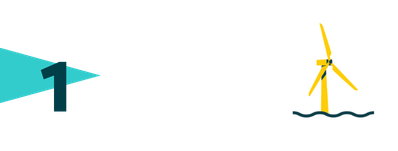

Transitioning Blue Economy Sectors
This Intervention Area accelerates the transformation towards sustainability, competitiveness, and strategic autonomy of the blue economy sectors related to energy, food, underwater domain, and marine communication infrastructures. The prospective EU-wide growth and development of blue economy sectors align well with the cross-sectoral collaboration approach of IA, particularly its focus on co-existence and the multi-use of ocean space and infrastructure.
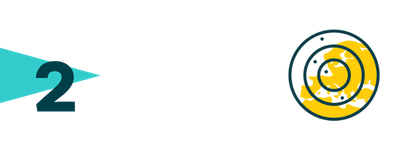

Managing Sea-Uses
This Intervention Area addresses the need for innovative tools and science-based approaches to sustainable, ecosystem-based planning and management of sea uses. In the spirit of the upcoming EU Ocean Pact and the Water Resilience Strategy's source to sea approach, the Intervention Area contributes to interlinking maritime spatial planning (MSP), the Marine Strategy Framework Directive (MSFD), the Common Fisheries Policy (CFP), and the Nature Restoration Regulation (NRR) with a focus on the regional dimension.
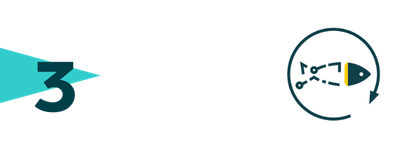

Blue Bioresources
This Intervention Area addresses R&I needs to support a just transition to the sustainable production and utilisation of blue bioresources, with emphasis on processes and production methods that minimise environmental impacts while meeting the demand for healthy and affordable blue food, feed, and other biobased products.
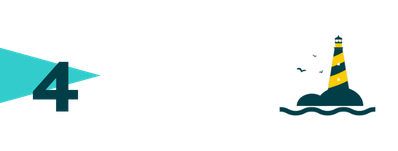

Resilient Coastal Communities and Businesses
This Intervention Area tackles the risks and opportunities for European coastal communities, businesses and infrastructures in the context of climate change, marine environmental degradation, technological advances, and cyclical economic and political shocks. This will require interdisciplinary research to enable a just and efficient transition to low-impact, sustainable coastal economy, fostering resilience and delivering a diversity of economic opportunities and thriving coastal communities.
2025
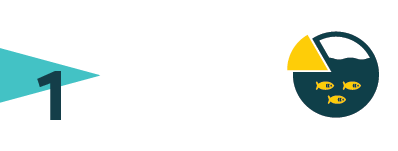

Digital Twins of the Ocean
This Intervention Area proposes a multidisciplinary, long-lasting research and innovation activity that focuses on the development of twin technology for spatially limited areas at sea-basin level. The activity aims to improve our understanding of the relations among essential systems at sea-basin level and ultimately support the development of AI based simulation and prediction capabilities for European oceans.
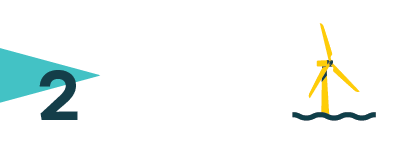

Blue Economy Sectors
The Intervention Area covers all sectors of the blue economy, focusing on the prerequisites for a green and digital transition of these sectors and on the conditions for co-existence and multi-use of activities and infrastructures at sea. The main aim of the Intervention Area is to support the optimal use of resources in European oceans and seas in terms of space and material flows while ensuring the conditions for sustainability and reducing environmental pressures.
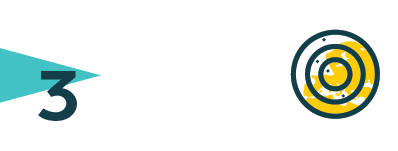

Managing Sea-Uses
The Intervention Area addresses the need for innovative tools and approaches to the sustainable planning and management of sea-uses, interlinking maritime spatial planning (MSP), the marine strategy framework directive (MSFD), common fishery policy (CFP), and the marine protected areas (MPAs) with a focus on the regional dimension.
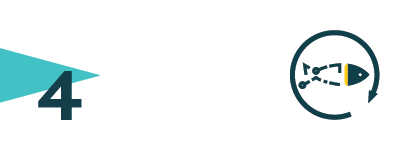

Blue Bioresources
The Intervention Area addresses research and innovation needs to support a just transition to the sustainable production and utilization of blue bioresources, with emphasis on production and processes that minimise the environmental impacts while meeting the demand for healthy and affordable blue food, feed, and other biobased products.


Resilient Coastal Communities and Businesses
This Intervention Area tackles the risks and opportunities for coastal communities, businesses, and infrastructures in the context of climate change and marine environmental degradation, addressing coastal and maritime tourism as well as the conditions for coastal social-ecological systems to deliver ecosystem-services for nature and people.
2024


Digital Twins of the Ocean
This Intervention Area proposes a multidisciplinary, long-lasting research and innovation activity that focuses on the development of twin technology for spatially limited areas at sea-basin level. The activity aims to improve our understanding of the relations among essential systems at sea-basin level and ultimately support the development of AI based simulation and prediction capabilities for European oceans.


Blue Economy Sectors
The Intervention Area covers all sectors of the blue economy, focusing on the prerequisites for a green and digital transition of these sectors and on the conditions for co-existence and multi-use of activities and infrastructures at sea. The main aim of the Intervention Area is to support the optimal use of resources in European oceans and seas in terms of space and material flows while ensuring the conditions for sustainability and reducing environmental pressures.


Managing Sea-Uses
The Intervention Area addresses the need for innovative tools and approaches to the sustainable planning and management of sea-uses, interlinking maritime spatial planning (MSP), the marine strategy framework directive (MSFD), common fishery policy (CFP), and the marine protected areas (MPAs) with a focus on the regional dimension.


Blue Bioresources
The Intervention Area addresses research and innovation needs to support a just transition to the sustainable production and utilization of blue bioresources, with emphasis on production and processes that minimise the environmental impacts while meeting the demand for healthy and affordable blue food, feed, and other biobased products.
2023
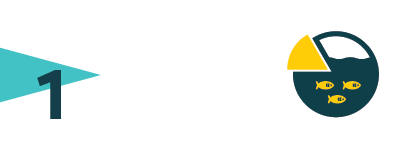

Development and validation of Digital Twins of the Ocean at sub-sea-basin scale
2023
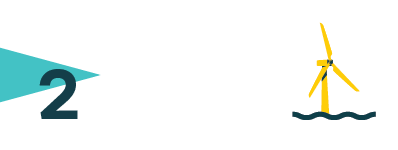

Blue generation marine structures
2023
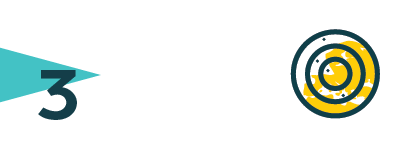

Planning and managing sea uses
2023
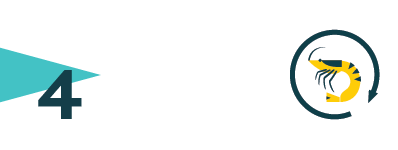

Healthy 'Blue Food' under a 'One Health' approach
2023
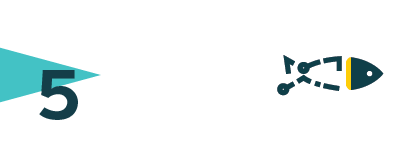

Enabling the green transition of 'Blue Food' production
2023
How can you engage?
The Partnership seeks to engage stakeholders across ocean industry sectors, policy, scientific disciplines, and civil society. You can engage in six co-funded calls over the seven-year timeframe 2022-2029. We will further add value with complementary actions and resource mobilisation, including:
- research infrastructures
- thematic programmes
- streamlining other funding sources
As a Partnership, we engage with initiatives at the level of sea basins and the Atlantic Ocean. At global level, we promote the EU approach to a sustainable blue economy. We seek synergies with other Partnerships and the Mission Restore our Seas and Oceans. In parallel, we are establishing a community of practice with different stakeholders to co-design activities.
Secretariat
- Ministry of Universities and Research, Italy - sbep@mur.gov.it
Brussels office
- Julie Olivier, j.olivier@fz-juelich.de
- Angiolo Boncompagni, angiolo.boncompagni@est.mur.gov.it
- Frode Dal Fjeldavli, fdf@forskningsradet.no
- Claire Hellio, sbep@agencerecherche.fr
Sea basin nodes
- Atlantic Ocean
Ireland, Majbritt Bolton-Warberg, majbritt.bolton-warberg@marine.ie
Portugal, Natalia Ospina-Alvarez, natalia.ospina@aircentre.org - Baltic Sea
Estonia, Ayrton Huus,
ayrton.huus@kliimaministeerium.ee
Poland, Monika Wloszek, monika.wloszek@ncbr.gov.pl - Black Sea
Bulgaria, Milen Baltov, mbaltov@bfu.bg
Georgia, Ekaterine Gogniashvili, gogniashvili@rustaveli.org.ge
Türkiye, Gülsima Dilek Usluer, gulsima.usluer@tubitak.gov.tr
Ukraine, Hryhorii Mozolevych, hryhorii.mozolevych@mon.gov.ua Mediterranean Sea
Greece, Georgia Anousaki, g.anousaki@gsrt.gr
Malta, Christy Baldacchino, christy.baldacchino.2@gov.mt
Tunisia, Hayet Souai, souaihayet@gmail.comCroatia, Tanja Lukanovic, tanja@hrzz.hr
- North Sea
Belgium, Ann-Katrien Lescrauwaet, ann.katrien.lescrauwaet@vliz.be
Netherlands, Lisette Enserink, lisette.enserink@rws.nl
Partners


Commission for Coordination and Regional Development of the Centre - CCDRC


National Institute for Research and Development on Marine Geology and Geo-ecology
Stay updated
Additional activities
Additional activities
In addition to our core initiatives, we believe in the power of collaboration and engagement to create a lasting positive impact on our oceans and coastal communities. That's why we offer a range of additional activities that complement our mission and provide opportunities for individuals, organisations, and businesses to get involved.
Thematic Portfolio
1st Call launch: 31 July 2025, 15:00 CEST
The Sustainable Blue Economy Partnership, a European partnership under the European Commission’s Research & Innovation Framework Programme Horizon Europe, is pleased to announce its first Thematic Portfolio Call for Interest. This call aims to connect on-going projects to create and boost networking activities for a 2-year period, from early 2026 to early 2028. Two active networking portfolios will be established composed of projects granted by SBEP and a range of national/regional/EU funding streams on these 2 different topics:
- Topic 1: Innovations and digitalisation for low-impact sustainable small-scale fisheries management in EU sea-basins.
- Topic 2: Innovations for boosting sustainability in marine algae cultivations and circularity in the blue bioeconomy.
Exploitation and Impact Network
The aim of the network is to develop tools and actions to transfer new knowledge and increase impact of the co-funded R&I projects at local, national and European level, taking into consideration different target groups: policy makers, civil society and marine and maritime industry.
Ultimately, the Exploitation and Impact Network will contribute to a better co-creation and knowledge transfer between research industry, policy makers, and citizens by:
- making impact pathways mandatory at the project level;
- developing Open Access strategy and addressing Intellectual Property Rights;
- increasing the impact on the target groups needs through capacity building of the applicants to the call;
- promoting innovative solutions and accelerate their market uptake;
- bridging science policy gaps to maximise impact.
Ocean literacy
The Sustainable Blue Economy Partnership promotes Ocean Literacy with a multi-faceted, cross-cutting approach that includes, among others, an Ocean Literacy Toolkit, podcasts and short videos, webinars and training for co-funded projects, and targeted efforts to engage ocean businesses. Through these activities, the Partnership aims to encourage the behavioural and attitudinal changes needed to drive the sustainable transformation of Europe’s blue economy. Consequently, it seeks to generate interest in sustainable maritime innovations, career options, investment opportunities, and generally the quest of reconciling economic development with marine ecological integrity. Throughout these efforts, industry actors are targeted to help embed the corporate environmental responsibility needed to affect the transition; the thematic foci are guided by the Intervention Areas and align with the EU4Ocean Coalition.
The Ocean Literacy Toolkit is fully accessible and downloadable below. It is intended both for co-funded projects and the stakeholder community at large, and will be updated regularly to account for the latest developments.
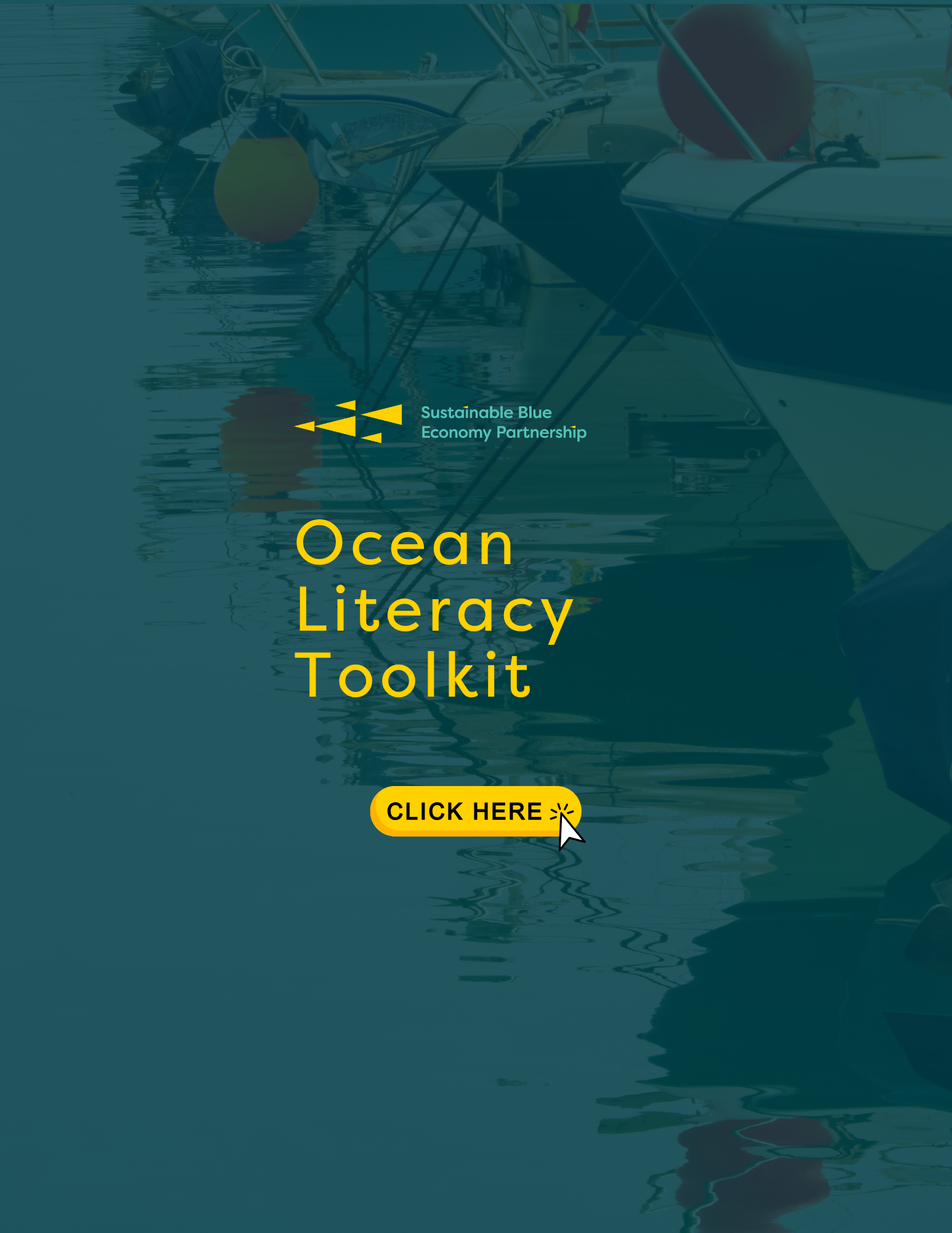
You can also access the Toolkit here.
Stay updated
Advance the production and market viability of red seaweeds in Europe by improving reproduction and cultivation techniques as well as developing novel tools and approaches to quantify and control product quality
Seaweed farming is regarded as a cornerstone of the future sustainable blue bioeconomy in Europe. It is broadly recognised that increased seaweed utilisation by Europeans would substantially benefit marine ecosystems, coastal economies, human health, and mitigate climate impacts of other human activities. Seaweed farming is also much more gender balanced than other sectors of agriculture or aquaculture and is rapidly growing both in Europe and across the globe. For all its societal benefits, however, seaweed farming in Europe faces challenges at present due to the difficulties in utilising kelp, the primary seaweed species we are able to grow. In order for seaweed farming to proliferate and generate the benefits that have been promised, the industry must find ways to diversify production by domesticating new species, developing new cultivation techniques, and innovating new tools to measure and control seaweed quality.
PalmariaPlus will generate improved techniques for efficient cultivation of red macroalgae (Palmaria palmata and Chondrus crispus) across Northern Europe. Specific activities include: 1) Developing new methods to increase seed supply of juvenile macroalgae in hatcheries, 2) Testing optimal conditions for efficient cultivation in tank systems, modifying water flow, areation, lighting etc. 3) Evaluating farm performance at sea sites across Norway, Sweden, Denmark, and Ireland, and investigating the effects of numerous environmental parameters on growth at sea, 4) Developing novel imaging tools to rapidly quantify the content of valuable biochemicals in red seaweeds, 5) Testing genetic aspects of growth performance and environmental sensitivity across macroalgae populations in Europe. Results will be communicated directly to seaweed farmers and industry consumers. Broader engagement and dissemination will be achieved through workshops and training courses which will highlight the findings and innovations to the seafood industry and public.
The outcomes of PalmariaPlus will unlock the potential for seaweed farmers to begin cultivating these high-value red seaweeds and provide valuable production benchmarks at a regional scale to strategize expansion of seaweed farms. The introduction of these new cultivated products to the market, and the promotion by this project, will also stimulate the supply chain to foster increased utilization of these health-positive ingredients by European consumers. By diversifying the species portfolio for seaweed aquaculture, new market opportunities will be created and the potential for this nature-positive industry will expand.
Coordinator: Norwegian Institute of Food, Fisheries and Aquaculture Research, NOFIMA, Norway
Partners:
- University of Gothenburg, UGOT, Sweden
- National Institute of Aquatic Resources, DTU AQUA, Denmark
- Atlantic Technological University, ATU, Ireland
- Cartron Point Shellfish Ltd, CPS, Ireland
Advancing QUality Assessment of Spatial Patterns and Ecosystem Characteristics through Technological Advancement
AQUASPECT addresses priority no. 1 “Digital Twins of the Ocean (DTO) at regional sub-basin scale” of the SBEP 2024 call. It covers three of its four subtopics: (i) existing data collection and representation, (ii) ecological modelling, and (iii) propose a new monitoring scheme with new or existing sensors. It targets a datadriven approach, combined with Artificial Intelligence tools, to better assess the state of coastal ecosystems and improve knowledge of ocean biological and biogeochemical processes occurring at regional scale.
AQUASPECT is embedded in a dynamic network of projects related to instrument development, FAIR data flows, and Digital Twins, all in the service of the Mission “Restore our Oceans and Waters by 2030”.
The project focuses on phytoand zooplankton, which provides many services to humans, from carbon sequestration to sustaining fisheries, and is recognised as an Essential Ocean/Biodiversity Variable (EOV, EBV) and used for MSFD evaluations.
Specifically, the project will:
- Complete the development of and bring to market a new in situ plankton imagery instrument (the UVP6m) involving Small and Midsize Enterprises. It will count particles from 10µm and identify organisms from 100µm, to complement the existing in situ
imaging sensors including UVP6. - Augment existing monitoring efforts with these instruments to sample plankton at previously unattainable spatio-temporal resolutions, which will be relevant for policymakers and regional stakeholders. Sensors will be deployed in three contrasting subbasins (the oligotrophic Mediterranean Sea, the eutrophic North Sea and the low salinity Baltic Sea), at sites with extensive physical and biogeochemical sampling as well as existing or developing regional DTOs.
- Integrate the resulting large datasets of EBVs and concomitant environmental data into European data infrastructures, including EMODnet and the EDITO data lake, as well as the three regional DTOs. This will build on existing efforts to improve plankton data FAIRness through standard data formats and controlled vocabularies.
- Provide more relevant information to stakeholders and the general public by exploiting these unprecedented datasets through the regional DTOs. Particular applications will focus on biodiversity hotspots and carbon export at submesoscale near a marine national park, ecosystem state indicators for the Marine Strategic Framework Directive, and effects of anoxia on local ecosystems and fisheries.
Coordinator: Sorbonne University, SU, France
Partners:
- WISIP SARL, WISIP, France
- GEOMAR Helmholtz Centre for Ocean Research Kiel, GEOMAR, Germany
- Vlaams Instituut voor de Zee, VLIZ, Belgium
- Balearic Islands Coastal Observing and Forecasting System, SOCIB, Spain
Aegaeo
George Petihakis gpetihakis@hcmr.gr
AIR Centre - Partner
ALGIKEY - Partner
AMA - Self-Funded Partner
Analytical Labs and Test Benches
Including pressure chambers, pools, calibration/inter-calibration bench, including sample analysis.
API - Self-Funded Partner
APN - Coordinator
Apply now: 2025 Transnational Access Call to Research Infrastructures
Aquafeed Upgraded: Enhancing Immune Function with Seaweed-modified Functional Compounds
The aquaculture industry is anticipating intensive production growth to meet future food demand. Yet, this growth is constrained by a number of challenges, not least including disease spread and use of antibiotics and chemicals to combat or reduce disease outbreaks. To support fish health, alternative aquatic feeds need to be added with immune-stimulating functional ingredients. Seaweed is a promising aquaculture feed crop due to its rapid growth rate, carbon sequestration properties, and valuable biomass supply it provides without the need for fertilization. It also can potentially be a valuable source of nutrients in fish feed. However, the use of unrefined seaweed is hampered by the presence of anti-nutritional compounds such as high levels of non-starch polysaccharides, phytases, and tannins that reduce nutritional digestibility and, consequently, fish health and aquaculture productivity.
Pre-treatment technology to sustainably (cost-effective, scalable, and environmentally responsible) unlock the potential of seaweed bioactive compounds is not well-established. In response, a biorefinery process can help extract seaweed’s nutritional components and convert them to high-value products for various applications. However, the current extraction process involves harmful chemicals (acid or alkali). Therefore, significant progress is needed to develop extraction and purification technologies that can contribute to a sustainable and circular blue economy. Screening and identification of seaweed-derived functional compounds are also required to assess their functional properties like immunomodulatory, antimicrobial, antioxidant, and prebiotic effects. Here, in-vitro cell culture is an efficient screening tool for assessing the functionality of novel bioactive molecules as it enables efficient and cost-effective control and manipulation of experimental conditions for compound screening. This needs to be complimented and validated using in vivo studies. While several studies have investigated native compounds’ effects on immune function in fish, determining the functionality of seaweed-derived compounds is in its early stage of R&D. Finally, there is a lack of information on the environmental and economic impacts of seaweed-based functional ingredients compared to existing conventional functional ingredients.
The above knowledge gaps identified will be addressed in this project to use of seaweed-modified ingredients in aquaculture. Our objective is to investigate seaweed-modified functional compounds in aquatic feed to improve growth, immune response, and disease resistance.
AQUAGOMA - Partner
AQUAGOMA - Productos Do Rio E Mar LDA
Arctic Seaweed - Self-Funded Partner
At the nodal point: regional sea basin representatives meet in Brussels
Atlantic Technological University Sligo, ATU, Ireland
AU - Partner
AWI - Partner
Balancing economic, environmental, and social sustainability in the European aquaculture industry
The project follows a pan-European perspective by focusing on different geographical locations and different sea-basins (North Sea, Mediterranean Sea, Atlantic Ocean), and maps existing and promising solutions boosting the sustainability and viability of the aquaculture industry. Specifically, based on a mix of qualitative and quantitative methods, it will create new knowledge about how the European aquaculture industry can develop onwards in ways that are not environmentally harmful, and contribute to value creation and value capture both locally, nationally, and internationally. By combining several theoretical perspectives (economic geography, socio-technical transition studies, and literature on sustainable business models), the proposed project will provide valuable research-based insight and action points on an efficient and smart industry policy in order to successfully cope with the societal challenges of promoting economically robust, environmentally friendly, and socially inclusive industrial activities. Moreover, the project follows the multi-actor approach and includes a substantial degree of stakeholder engagement through various activities such as workshop and seminar series and a policy lab, which will allow a high potential for impact beyond the academic world and contribute to the uptake of AQUABALANCE’s research findings.
As a result, AQUABALANCE will provide pan-European and regional industry and policy advice and a policy roadmap that has a transnational perspective and also can be adapted to the regional specificities. These recommendations will serve as a background for a more sustainable growth of the aquaculture industry, contributing to achieving the goals of the EU Farm to Fork strategy, solving grand challenges of climate change and social justice, and thereby generating significant value for the whole society.
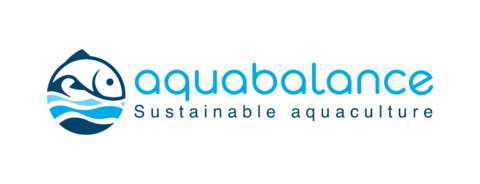
Balearic Islands Coastal Observing and Forecasting System, SOCIB, Spain - Partner
BANU - Partner
BettaF!sh - Partner
Biocatalytic refining of seaweed carbohydrates for producing higher-value, polymer precursors
The SEABIOCAT is a marine-biotechnology proposal which aligns with the priority area Blue Bioresources – Blue Biotechnology of the Sustainable Blue Economy Partnership. SEABIOCAT addresses major global challenges of energy and the environment, developing sustainable next generation macroalgal biomass as an alternative to fossil-fuel- and 1st generation biomass for bulk generation of biobased platform-chemical. Specifically, SEABIOCAT will establish a one-reactor Cell-Free System (CFS) utilizing robust thermostable enzymes for refining polysaccharides from brown macroalgae to building blocks for biopolymers/bioplastic synthesis. The biopolymer market is forecasted to grow immensely in the foreseeable future, and bioresources are needed to replace fossil-fuel based feedstock. The expansion is anticipated to be hampered by a scarcity of sustainable biomass. Brown macroalgae are an abundant underexploited bioresource, which can be cultivated in bulk, not competing with terrestrial plant crops for space, water or nutrients, biomass, and they are new to industry as an industrial feedstock resource. SEABIOCAT will increase utilization of this mostly untapped vast bioresource supplementing or supplanting terrestrial feedstocks and develop bioconversion technologies for processing and production of important value-added platform-chemicals and biopolymers. It will help to make the macroalgal biorefinery and associated biobased chemical producers economically more viable, by increasing bulk production of biobased products, by increasing resource efficiency and by expanding product range.
Life Cycle Assessment (LCA) will be a vital part of the project for assessing the sustainability and environmental impacts of the process and products. This is important because to succeed on the market, bio-based products need to prove their sustainability and lower environmental impact when compared to petrochemical products. SEABIOCAT is of special significance for Northern Europe with long shorelines and access to vast sea areas for offshore cultivation of brown macroalgae. It focuses especially on the north Atlantic Ocean (Artics) sea-basins. However, the proposed biorefinery process can be implemented everywhere close to sea to maintain sustainability. The Baltic sea and the North See have representatives in the consortium. SEABIOTEC will help economic growth and job creation in rural coastal regions where macroalgae are cultivated and harvested, increase employment and countereffect declining maritime industry in these regions.
The consortium brings together groups with highly competent and complementary expertise and experience in the supply and pre-processing of biomass, production optimization, and process and product design. MATIS (Iceland), an R&D organisation, with a long experience and expertise in marine biotechnology, will be responsible for overall management and coordination of the project including the organizational and financial management.
Coordinator: Matís ltd., Matís ltd., Iceland
Partners:
- Lund University, ULUND, Sweden
- Technical University of Denmark, Novo Nordisk Foundation for Biosustainability, DTU, Denmark
- LL-BioEconomy, LL-Bio, Denmark
- University of Amsterdam, UvA, Netherlands
Self-funded partner:
- Ocean Rainforest Sp/F, ORF, Faroe Islands
BLUE WAY to a Sustainable Europe
The atmospheric CO2 levels recently reached levels that are 50% higher than in the pre-industrial times. BLUEWAYSE proposes a significant cut in the CO2 emissions of the food and feed sectors, creating synergies and exploiting opportunities to achieve environmental and health benefits via economic sustainability. BLUEWAYSE will develop and promote novel, zero-waste biorefinery approach-based blue ways of exploiting marine resources, paving the way for a climate-neutral, environmentally sustainable, and resource-efficient food and feed sectors in Europe. Fisheries and aquaculture sidestream biomass will be processed to create food supplements and the sidestreams thereof will be used for a) the production of biomaterials using the bone and scales biomass, b) the production of low marine salmon feeds and c) the cultivation of microalgae using fish hydrolysate nanofiltration permeates rich in minerals and water soluble nitrogenous compounds of small molecular weight until now discarded. The cultivated microalgae biomass will be fractionated for maximum value creation by application-specific fraction optimization. Solids will be used in functional food products, such as bread, and oil and water soluble fractions, rich in antioxidants and immune stimulating compounds will be exploited as aquaculture feed additives, nutritional supplements to enhance male fertility and healthier sunscreen creams. The safety of the BLUEWAYSE ingredients and products will be evaluated against regulative standards, environmental, social and economic sustainability.
The project results will be communicated early on to inspire and promote collaboration and product co-creation with stakeholders, and disseminated through popular and scientific publications, concluding by the BLUEWAYSE conference.
Boosting seaweed farming through better utilization of genetic resources
The European macroalgae industry has a considerable potential to contribute to critical societal challenges such as carbon neutrality, access to nutritious and sustainable food, and a sustainable and circular European bioeconomy. We aim for sustainable economic development of the macroalgae industry by (i) improving the efficiency of propagation and selection of suitable genotypes, (ii) better exploiting genetic variation, while at the same time maintaining local genetic diversity and minimizing the potential for genetic pollution of natural populations, and (iii) actively involving stakeholders in creating a plan for future macroalgae breeding in Europe.
In the proposed Blue Bio Boost (BBB) project, we will test innovative strategies and novel methods that utilize properties of macroalgal life cycles, hybrid vigour (heterosis), and the adaptation to the local environment and culturing conditions, to obtain this goal. Through a Proof of Concept experiment we will test a simple way of utilizing local genetic variation and heterosis for improved productivity that will result in minimal change in allele frequencies relative to the surrounding natural population, thus mitigating the potential effect of genetic exchange. BBB will create a biodiversity collection of kelp gametophytes, identify methods to increase gametophyte growth rates, and develop gametophyte phenotyping protocols for growth rate and light and temperature tolerance. Building on results from this experiment, we will design future strategies for optimized use of hybrid vigour. Finally, BBB will develop tools based on ploidy manipulation and determination for breeding purposes and explore the utility of giant sea lettuce in aquaculture. The developed methods and technologies will create strong incentives-to-invest in future algae breeding, while access to high-yield seeding materials adapted to local conditions will stimulate seaweed aquaculture production and processing that channel customized biomass to dedicated seaweed applications, and all associated material and service providers, thus providing food, feed and raw materials for a growing population.
Furthermore, BBB will provide crucial insights into the genetic diversity of natural populations and cultivated material, and allow monitoring, evaluating, and/or mitigating the extent of genetic exchange from the onset of large-scale cultivation in co-existence with natural populations. As an alternative to developing seeding materials for production sites, breeding methods that create seeding materials with specific genetic compositions may also be used for kelp forest restoration. Since our approach promotes using local natural resources for local aquaculture production, it will stimulate coastal livelihoods and short-chain production systems, while utilizing the climatic, environmental and genetic diversity along the European coastline, creating impact at scale.
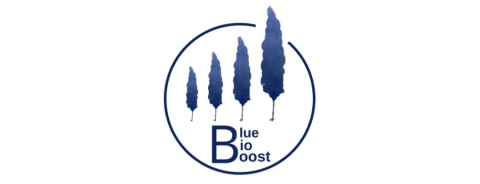
Boosting the resilience of European shellfish production against climate change-related challenges through genetic selection
Bivalve aquaculture has become increasingly important sector of global blue bioeconomy in recent years due to its numerous environmental, economic, and social benefits. Shellfish farming is considered sustainable and environmentally-friendly compared with other aquaculture species as it is low trophic, has a very limited carbon footprint, and it provides multiple ecosystem services. Shellfish production is already facing major challenges due to direct and indirect effects of climate change and such challenges will become even more serious in the future.
The long-term goal of ShellFishBoost is to mitigate the effects of climate change on the bivalve production with the ultimate impact of protecting and developing a vital blue bioeconomic sector in Europe. To achieve this goal, the project has been co-designed together with key stakeholders (bivalve hatcheries, shellfish producers and their organizations) first by identifying the major problems for each main bivalve species farmed in Europe. The main objectives of ShellFishBoost are the development/optimisation of advanced tools for genetic selection (molecular tools, optimized breeding schemes) and the estimate of genetic parameters for key traits (growth, resistance to heat-waves, salinity stress, summer mortalities, and presence of harmful algal toxins). A third major objective is the co-creation of best practices for selective breeding in each target species, together with industrial partners of ShellFishBoost and other relevant stakeholders (producer associations and other bivalve hatcheries). Project activities will be divided into five problem-focused workpackages (WPs). WP1 will develop and optimize advanced tools for genetic selection. WP2 will estimate genetic parameters and identify Quantitative Trait Loci (QTLs) for disease resistance in oysters and clams. WP3 will estimate genetic parameters and identify QTLs for resilience to climate-related challenges in oysters and clams. WP4 will estimate genetic parameters and identify QTLs for reduced toxin accumulation in mussels. WP5 will co-create best practices and strengthen the capacities for selective breeding in bivalves. ShellFishBoost fully embraces the approach based on the “Theory of Change”. WP5 objective is to effectively translate projects outputs into positive outcomes for European shellfish farming sector, to achieve the ultimate impact of improving the resilience of the sector against climate change effects.
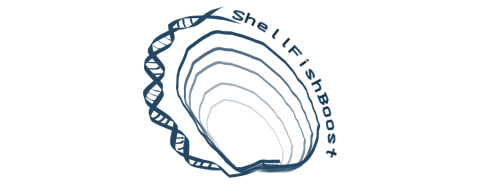
Brim - Self-Funded Partner
BTU - Partner
Cell-cultured octopus production through sustainable marine biomass valorization
The world's population is projected to surpass nine billion by 2050, posing significant challenges for global food production and security. Current livestock farming and fishing practices are unsustainable owing to their greenhouse gas emissions and pollution. Fisheries and aquacultures are major causes of marine litter, ocean damage, and habitat destruction. In addition, factory farming or aquaculture practices, often characterized by overcrowded and unsanitary conditions, have been linked to an increased risk of zoonotic diseases, posing a serious threat to human health and animal welfare. As a result, there is a need for more sustainable and ethical food alternatives. Cultivated meat is an emerging technology where meat is produced using animal cell culture and is seen as a viable alternative, as it mitigates the impacts of conventional livestock and fishing practices. Nevertheless, major technological challenges still need to be addressed to achieve large-scale and cost-efficient cultivated meat bioprocesses. These include the development of i) immortalized cell lines, ii) cost-efficient animal-free media, and iii) biocompatible scaffolds for cell culture. While this technology has primarily focused on terrestrial species, there is increasing interest in cultivated seafood. The octopus, known for its remarkable tissue regeneration capabilities, is a culturally significant food source globally. The increasing demand for octopus has led to the overexploitation of wild populations.
SEANERGIES hypothesizes that octopus cells involved in muscle regeneration could be utilized to create cell lines with enhanced growth and differentiation for cultivated octopus production. To tackle the challenges of media and scaffolds, micro- and macroalgae will be investigated for formulating animal-free, cost-effective culture media and developing biocompatible scaffolds.
WP2 will identify and characterize cell populations involved in octopus muscle regeneration. WP3 aims to establish culture protocols and continuous cell lines for octopus muscle cells. WP4 will develop animal-free culture media using microalgae, assessing various formulations for optimal cell growth. In, WP5 we will develop biocompatible scaffolds for octopus cell culture using decellularized seaweed. WP6 involves designing a preliminary bioprocess for cultivated octopus production and conducting techno-economic analyses. WP7 will focus on studying the social impact cultivated octopus may bring to different stakeholders. Finally, WP8 will be focused on dissemination, communication, and engagement with relevant stakeholders to maximize impact.
By integrating the establishment of high-performing octopus muscle cell lines, with the development of animal-free microalgae-derived culture media and seaweed-based scaffolds, SEANERGIES aims at advancing the state-of-the-art in cultivated seafood alternatives by laying the foundation for cultivated octopus production.
Coordinator: Wageningen University & Research, WUR, Netherlands
Partners:
- CS2AQUA - Laboratório Colaborativo, Associação para uma Aquacultura Sustentável e Inteligente, S2AQUA, Portugal
- Associação Oceano Verde - Laboratório colaborativo para o desenvolvimento de tecnologias e produtos verdes do oceano, GreenCoLab, Portugal
- Nord University, NORD, Norway
- Stazione Zoologica Anton Dohrn, SZN, Italy
- Associazione Cephalopod Research-ETS, CephResETS, Italy
- Federal University of Paraná / Universidade Federal do Paraná, UFPR, Brazil
Self-funded partner:
- Agricoltura Cellulare Italia APS, AC IT, Italy
Cerema - Partner
Chalmers - Coordinator
Chalmers - Partner
CIIMAR - Partner
CMMI - Partner
CNR-ISSMC - Partner
Coastal Corrosion Risk Management through Digital twin model for a Sustainable Blue Economy
CORRASBlue aims to deliver a cross-sectoral digital platform to the marine and maritime industries by 1) maximizing materials sustainability, 2) minimizing corrosion-associated environmental and ecological risks, 3) providing decision makers and industry a ‘winwin’ approach for infrastructure management and control, and 4) producing a flexible, longterm data-integration system for future innovative developments.
The CORRASBlue consortium encompasses multi-disciplinary and cross-sectoral experts across 10 countries and 3 sea basins (Atlantic Ocean, Mediterranean Sea, and North Sea). We have gathered a significant number of experts across research, industry, and policymaking sectors with the aim to de-fragmentalize the current landscape of corrosion management and drive the innovation needed to advance sustainability of our knowledgebased society and economy and to meet the EU Green Deal and future EU Blue Deal targets.
The main objective of CorrasBLUE is to develop a novel Coastal Corrosion Risk Management (CCRM) digital twin that will integrate holistic sensor measurements, corrosion state, and mitigator effectiveness to enhance corrosion management, enabling comprehensive monitoring and maintenance strategies to safeguard marine infrastructure and ecosystem health. The project will be divided in to 4 main phases:
- Phase 1: Data fusion by gathering and integrating data from various sources including sensors, published data, non-disclosed stakeholder data
- Phase 2: Model development using cleansed data from phase 1 and produced real-time complimentary data
- Phase 3: Model recalibration, optimization and validation of predictive analytics for corrosion management
Phase 4: Final dissemination, model deployment and commercialization
The consortium has extensive experience with application of machine learning techniques from disciplinary data analysis. Several partners (academic and industry) in the consortium have strong internal collaborators specialising on method development for machine learning and artificial intelligence, which will be used in daily discussions. The female-led consortium consists of 12 interdisciplinary research institutions and 8 companies as partners, including 6 SMEs and 5 corporate partners joining the consortium with in-kind contributions. In addition, BAM (DE) is a senior scientific and technical Federal institute with responsibility to the German Federal Ministry for Economic Affairs and Climate Action and gives direct input to authorities on materials-related questions in relation to policy making and regulation. Overall, 8 female and 12 male senior experts will be involved including 7 postdocs, 11 masters students, 7 engineers, and 10 early-stage researchers. The state-of-the-art corrosion prevention strategies produced from this project will reduce failures and related emission, thus benefit the marine ecosystem and indirectly safety of sea food and the marine environment.
Coordinator: Norwegian Research Centre (NORCE), Norwegian, Norway
Partners:
- Norges TekniskNaturvitenskapelige Universitet NTNU, NTNU, Norway
- Bundesanstalt für Materialforschung und – prüfung, BAM, Germany
- IA University College, VIA, Denmark
- FCiências.ID - Associação para a Investigação e Desenvolvimento de Ciências, FC.ID, Portugal
- Faculty of Mechanical Engineering, University of Ljubljana, Slovenia
- ISE AB, RISE AB, Sweden
- Duzce University, Türkiye
- Istanbul University, Istanbul U, Türkiye
- Delft University of Technology, TUD, Netherlands
- WavEC Offshore Renewables, WavEC, Portugal
- Corrosion Advice ApS, Denmark
- La Rochelle Université, France
Institut de la Corrosion SASU, IC, France
Self-funded Partners:
- CORRODYS, CORRODYS, France
- Endures B.V., Endures, Netherlands
- MetriCorr ApS, Denmark
- Fibrobeton Yapı Elemanları
- Sanayi ve İnşaat A.Ş., Fibrobeton, Türkiye
- Microbial Analysis, Microbial, Netherlands
- Erevnitiko Idrima P. L., UNRF, Cyprus
Coming soon: First Transnational Access Call to Research Infrastructures
Coming Soon: Third Joint Transnational Call for R&I Funding
Commission for Coordination and Regional Development of the Centre - CCDRC

Connecting to the Mediterranean blue economy community
Consiglio Nazionale delle Ricerche (CNR) - Coordinator
Contact
Contact
Sustainable Blue Economy Partnership
The Partnership is coordinated by Italy, with Norway as co-coordinator.
Coordinator:
Ministry of Universities and Research (Italy) - sbep@mur.gov.it
Co-coordinator: Research Council of Norway
Communication: info@bluepartnership.eu
Stay updated
Secretariat
- Ministry of Universities and Research, Italy - sbep@mur.gov.it
Brussels Cellule
- Julie Olivier, j.olivier@fz-juelich.de
- Angiolo Boncompagni, angiolo.boncompagni@est.mur.gov.it
- Frode Dal Fjeldavli, fdf@forskningsradet.no
- Claire Hellio, sbep@agencerecherche.fr
Sea basin nodes
- Atlantic Ocean
Ireland, Majbritt Bolton-Warberg, majbritt.bolton-warberg@marine.ie
Portugal, Natalia Ospina-Alvarez, natalia.ospina@aircentre.org - Baltic Sea
Estonia, Andro Truuverk, andro.truuverk@kliimaministeerium.ee, Liis Kikas, Liis.Kikas@kliimaministeerium.ee, Kadri Just, kadri.just@agri.ee
Poland, Monika Wloszek, monika.wloszek@ncbr.gov.pl - Black Sea
Bulgaria, Milen Baltov, mbaltov@bfu.bg
Georgia, Rusudan Jobava, jobava@rustaveli.org.ge
Türkiye, Gülsima Dilek Usluer Güçlü, gulsima.usluer@tubitak.gov.tr
Ukraine, Hryhorii Mozolevych, hryhorii.mozolevych@mon.gov.ua - Mediterranean Sea
Greece, Sophia Dimotropolou, s.dimitropoulou@gsrt.gr
Malta, Maria Azzopardi, maria.azzopardi.2@gov.mt
Tunisia, Hayet Souai, souaihayet@gmail.com - North Sea
Belgium, Ann-Katrien Lescrauwaet, ann.katrien.lescrauwaet@vliz.be
Netherlands, Lisette Enserink, lisette.enserink@rws.nl
Copenhagen Business School, CBS, Denmark
CSAM
Sequencing and Molecular Analysis Center
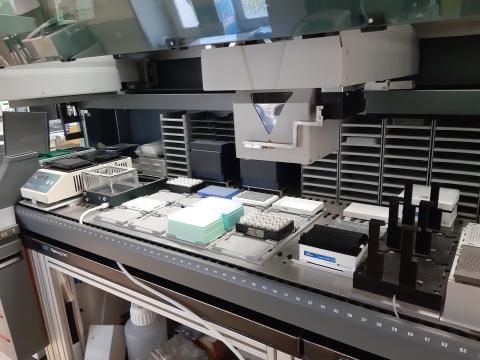
Pasquale De Luca Pasquale.deluca@szn.it
CSCS - Partner
CSIC - Coordinator
CSIC - Partner
CTN - Partner
Culture of a wide range of low trophic species to boost sustainable production of Blue Food and reduce environmental footprint
BLUEBOOST fits priority area 3.2.3 and aims to demonstrate that co-culture of a wide range of low trophic species with established species can boost current European aquaculture of blue foods and feeds while reducing the environmental footprint and moving towards a carbon-neutral aquaculture blue economy. The consortium consists of partners from eight countries (Spain, Portugal, Poland, Italy, Brazil, Sweden, UK, Finland) and three seas / oceans (Atlantic – north and south, Mediterranean, Baltic). Partners are experts in the ecology, hydrobiology, culture of low trophic species, integrated multitrophic aquaculture (IMTA), economics and life cycle assessment (LCA) of blue food and feed production.
BLUEBOOST aims to provide knowledge based solutions that will enable the aquaculture industry to overcome bottlenecks that inhibit Governments and businesses, following an impact pathway that can increase the volume and diversity of aquaculture products, reduce environmental footprint towards a carbon-neutral economy, raise the circularity and competitiveness of the blue economy, provide new products, restore ecosystems, create jobs and increase ecosystems resilience against climate change. The partners will work with six different IMTA systems and a wide range of species from different trophic levels to evaluate the use of waste streams from traditionally farmed species to provide nutrients and feed for low trophic species. The nutrients and carbon fluxes will be mapped, and the environmental footprint of six systems with and without IMTA, determined employing LCA to demonstrate the benefits and trade-offs of incorporating extractive low trophic species in combination with traditional aquaculture species. Self-financed partners will examine new products, use of macroalgae for sustainable food packaging and test low trophic blue feed ingredients in the diets of marine organisms. To restore ecosystems, threatened oysters species will be farmed in Italy and Spain, whereas coastal ponds of the Ebro Delta will be offered as new aquaculture sites and protection against climate change related sea level rise and storm intensification.
We envisage that BLUEBOOST will involve (co-creation/co-design) and impact all stakeholder levels providing societal value creation such as: (a) technical advances that provide new sustainable production methods and products; (b) reduced environmental footprint of blue food and feeds; (c) environmental restorative aquaculture practices; (d) improved economics with increased volume and diversity of production; (e), policy-making to provide conditions for and to drive desired change and (f) low carbon products and business investments to meet consumer demand. This win-win scenario will deliver improved diversification of blue foods and feeds and, at the same time, increase production volumes and quality, to improve the competitiveness of European and Brazilian aquaculture while reducing the industries environmental footprint.
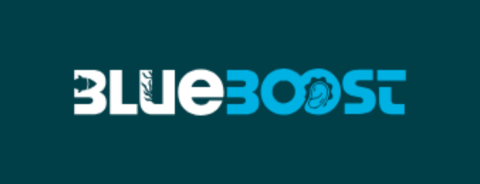
DAS sensors, 2 km fiber optic cable, seismic and thermal data
Fausto Ferraccioli fferraccioli@ogs.it
Andrea Schleifer aschleifer@ogs.it
Data and Scenarios for a Sustainable Mediterranean Blue Economy
The World Ocean Council Europe is proposing to lead a consortium of 15 partners representing research institutes, universities, enterprises and institutions linked to Maritime Spatial Planning (MSP), to implement the MEDSEAPLAN project ('Data and Scenarios for a Sustainable Mediterranean Blue Economy) over 36 months. The project will focus on future-proof Maritime Spatial Planning, the need for advanced data and an increased inclusion of maritime industry in the development of MSP-relevant foresight scenarios.
MEDSEAPLAN aims to operationalise impactful change in sea basin-level multi-sectoral MSP development with data-driven and industry-based input. The project will focus on assessing current and future data needs for regional MSP, and flowing from this, on innovative solutions to create data for MSP (and transforming it into information that can be used by MSP planners). Concrete pathways to collect innovative data sets for MSP will revolve around nature-based solutions for improved biodiversity; including data from maritime industry vessels; and the design and demonstration of innovative floating data buoys. The strength of MEDSEAPLAN lies in its multi-sectoral, multi-actor and cross-border approach. The project will design a set of scenarios, which will be co-developed with stakeholders through assessing their data needs and testing these scenarios to assess potential solutions to future impacts brought forward by the maritime industry leaders. In this way, MEDSEAPLAN will contribute to the development of MSP that is of a more robust knowledge-based and data-driven nature, realising a more sustainable Blue Economy in the Mediterranean Region.
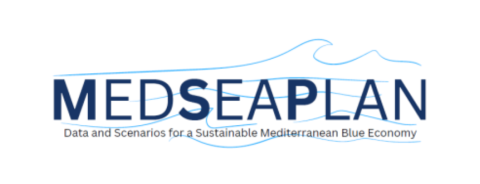
Developing hybrid multifunctional foreshore infrastructure that optimises environmental and blue economy benefits (blue-shores)
One quarter of the world’s coastline is currently protected by static hard infrastructure that is inadequate to mitigate the impacts of sea level rise and climate change. BLUESHORES moves beyond this static concept and tests an innovative and modular hybrid, nature-based design (referred to as HBGI). Our approach combines one soft (3D biodegradable BESE-elements® for kickstarting saltmarsh restoration) and two hard (wooden breakwalls and oyster-based reefs) eco-engineering elements, designed to maximise wave dissipation and reduce foreshore erosion, and to enhance ecological and societal benefits. Pilot trials have shown that the three elements can be deployed in combination from the foreshore to the backshore of eroding shorelines (breakwalls followed by oyster reefs followed by BESE elements) in a way that exploits the biogeomorphological synergies of these elements to increase the performance of HBGI to mitigate against storm events. This improved performance will enable deployment of HBGI in moderate to high energy sites with moderate to steep slopes, where use of HBGI has previous been viewed as unsuitable and static hard infrastructure used instead. The hybrid design will be deployed and tested in the field at three sites: Venice Lagoon (Mediterranean Sea), Cork Harbour (Atlantic) and the eastern Scheldt Estuary (North Sea). These sites experience different tidal ranges (micro-, meso-, and macro-tidal, respectively, which is considered a critical structural parameter that currently challenges hybrid foreshore designs), as well as different biogeographical, societal and cultural contexts important to HBGI uptake. At all sites, set-up will be in two stages: first, deployment at sheltered, moderately sloping shorelines, which will then inform a second deployment at more energetic, steeply sloping sites. Field test data will be used to develop:
- (i) validated models that characterise and allow optimisation of the energy flux attenuation capability of HBGI,
- (ii) multi-criteria indicators for analysing the technical, ecological, and societal performance of HBGI and for proving its benefits and cost/effectiveness compared to traditional grey infrastructure GI,
- (iii) a full economic evaluation of the HBGI to facilitate future business opportunities, and
- (iv) guidelines to inform decision-making and design of HBGI at other sites.
BLUESHORES comprises a multidisciplinary team of marine ecologists, coastal engineers, numerical modellers, environmental economists, environmental psychologists, and environmental managers from seven European countries. The team will work with local communities and stakeholders from the outset to overcome current inefficiencies in the design, assessment, and implementation of hybrid projects, in order to boost application of blue-green urbanism beyond academia and pave the way for marine eco-engineering practitioners and coastal managers to confidently explore and adopt HBGI for future application for foreshore protection.
Coordinator: University of Padova, UNIPD, Italy
Partners:
- the Netherlands Institute for Sea Research, NIOZ, Netherlands
- National Institute for Aquatic Resources, Technical University of Denmark, DTU Aqua, Denmark
- Fundación Instituto de Hidráulica Ambiental de Cantabria, FIHAC, Spain
- University College Cork, UCC, Ireland
- ATHINA-EREVNITIKO KENTRO KAINOTOMIAS STIS TECHNOLOGIES TIS PLIROFORIAS, TON EPIKOINONION KAI TIS GNOSIS, Athena RC, Greece
- TECHNOLOGIKO PANEPISTIMIO KYPROU, CUT, Cyprus
Self-funded partners:
- Provveditorato interregionale per le Opere pubbliche Veneto- Trentino Alto Adige - Friuli Venezia Giulia, PIOPP, Italy
- Veneto Region, VR, Italy
Development of Modular and Mobile By-Product and Wastes Bio-refiney Valorisation Systems and Supporting Structures for Fisheries and Aquaculture SME Industries
The DORIS project is an ambitious innovative project which proposes solutions to improve the the availability of valorisation oppourtunities, uptake, and potential financing/funding mechanisms for waste biomass processing in EU Blue SMEs. The main objective of the project is the research and development of lab-scale mobile and modular biorefinery conversion systems for use in Blue processing SMEs operating in diverse EU Basin locations. This is with the goal of advancing and testing practical flexible and scalable valorisation technology prototypes for the cost-effective conversion of fishery and aquaculture by-products and wastes to medium and high value products.
The project focuses on the conversion of the main blue by-product types in EU sea basins i.e. Finfish, crustacean and mollusc wastes. To ensure the suitability and relevance of the developed outputs, the effectiveness and feasibility of the proposed valorisation approaches through specific case study considerations relevant to SMEs and EU Basin production scenarios will be tested and validated. The DORIS project will also afford a detailed mapping and estimation of practical exploitable by products and wastes resources in the Sea Basin regions, coupled with an assessment of the economic viability, environmental impact, and societal benefits of the developed biorefinery systems. With lack of capital, and knowledge of funding approaches a major barrier to the uptake of valorisation technologies by Blue SMEs, DORIS will further investigate and propose practical funding and ownership models for the developed valorisation systems. The project also reflects on and considers the legislative requirements to ensure compliance and enhanced uptake of developed technologies, and will also inform the development of policy support instruments.
The project activities and execution which is designed with full quadruple helix engagement of all relevant stakeholders and actors affords an ambitious multi-disciplinary knowledge and innovation exchange between research, local policy and engaged enterprise sectors, aimed at informing policy and strengthening the local industry capacities to institute sustainable and cost-effective circular economy.
Coordinator: Atlantic Technological University Sligo, ATU, Ireland
Partners:
- Politechnika Lodzka, TUL, Poland
- Norsk institutt for bioøkonomi, NIBIO, Norway
- Hellenic Centre for Marine Research, HCMR, Greece
- Université libre de Bruxelles, ULB, Belgium
Digital Twin for Innovation in Oceanic Visualization and Exploration
The DIVE proposal is responding to the Priority Area 1: Digital Twins of the Ocean (DTO) at regional sub-basin scale and considers the following European sea basins: Black Sea, North Norwegian Sea, Mediterranean Sea and the Atlantic Ocean.
DIVE aims at contributions to environmental objectives:
- Climate change mitigation
- Climate change adaptation
- The sustainable use and protection of water and marine resources.
DIVE elaborate a novel paradigm AI4Ocean. It implements 3 complementary functions to the exiting DTO systems and beyond the state of the art: the “whatif” and “causal” exploration DTO components and the “ocean visualizer”. DIVE novelty lays in focusing on physic informed models, performing beyond the classification and prediction tasks, elaborating multi-modal generative models for the ocean dynamic states and the discovery of causal relations. An ocean visualizer, easy to use and intuitive visualization tool, will enable operation and access to the results of what-if and causal explorers. Users can generate explanations, recognize rules and
associations and generate new knowledge for informed decision making processes. The methods will be validated and demonstrated on 3 use cases:
- i) currents and sediment transports within the Western Black Sea coastal areas
- ii) Lofoten-Vesterålen (LoVe) Blue Economy Digital Twin, and
- iii) Rain radars application to offshore wind
The project’s concept (Theory of Change) refers to a research accelerator with the ambition towards stakeholder and enduser engagement. The project adopts the collaborative learning and research approach for new knowledge creation in a Quadruple Helix (QH) innovation framework. The recurrent QH aims to increase the validity of research results, shorten the time from research and practical applications and support a sustainable impact in society. The expected impact ranges from bridging the gap between oceanographers and AI scientists, the development of a new field - AI4Ocean -, establish a sustainable Blue Economy partnership engaging Civil Society, Academia, Policy, and Industry via the activities of a Living Lab. Through collaborative actions, will be anticipated the evolution of the sectors involved, scenarios will be defined, included in the DTO and evaluated against national, EU and international policies and strategies. Thus, aiming to strengthen ecosystem management, focusing to the needs and requests of the local communities, industries, and management, generating societal and economic benefits to multiple stakeholders.
Coordinator: National University for Science and Technology Politehnica Bucharest, UPB, Romania
Partners:
- Deutsches Zentrum für Luftund Raumfahrt EV, DLR, Germany
- Institut français de recherche pour l’exploitation de la mer, Ifremer, France
- Akvaplan.niva, APN, Norway
- National Institute for Marine Research and Development “Grigore Antipa”, NIMRD, Romania
- France Energies Marines, FEM, France
Digital Twin of the Ocean for Arctic Fisheries
ARCFISH will develop a pilot Digital Twin of the Ocean (DTO) Platform delivering new data products and services in support of sustainable Arctic Fisheries. These data products and services will be co-designed with stakeholders in the fisheries sector and used to create products such as ecosystem indices that can be applied in fisheries planning and management.
Available data sources and gaps will be analysed to fulfil user needs and ingest relevant data into the Blue Insight DTO Platform. They include (1) oceanographic data from research vessels, autonomous mobile platforms, fixed buoys, and ships of opportunity such as e.g., fishing vessels, (2) met-ocean-ice forecasts and reanalysis from models (e.g., from CMEMS and INTAROS), (3) fisheries management data (e.g., fisheries stocks, species) from ICES and national sources, and (4) reference data (e.g., bathymetry, economic zones, AIS data). Based on the stakeholder needs, a use case for sustainable fisheries will be implemented using the ingested data and tools for generating customised products. The use case will address two geographic regions, the west coast of Greenland centred around the rich fishing grounds surrounding Disko Bay, and the region around Iceland, northwards to the Svalbard archipelago and the Barents Sea.
Using the compiled data and developed tools, a regional database of climate, environmental, and fisheries data will be created and made available through an open data repository to support sustainable Arctic Fisheries. This important asset will contribute to the Sustainable Blue Economy Partnership (SBEP) program by providing new data products that can be utilised in digital twin platforms to support decision-making in fisheries management. The Blue Insight Platform developed by Kongsberg Discovery, Norway, will be part of the Digital Twins of the Ocean (DITTO) program of the UN Decade of Ocean Science for Sustainable Development. As part of DITTO and through engagement with other running Digital Twin projects and initiatives such as EDITO, ILIAD, Blue-Cloud2026 and EOSC, ARCFISH development will follow standards for data exchange and implementation of services and tools in the EU DTO. ARCFISH will prepare training material for using the Blue Insight DTO and organise capacity building events for stakeholders and other SBE projects. Training will be organised in conjunction with project meetings and SBEP seminars. Furthermore, the regional database, developed services and tools, training and promotional material will be promoted through the iAOS portal from INTAROS, a public project website linked to relevant DTO sites, and dedicated social media channels. ARCFISH results will also be promoted through the partners extensive network of Arctic observing and data management, digital technologies, capacity building in ocean literacy, stakeholder interaction and fisheries.
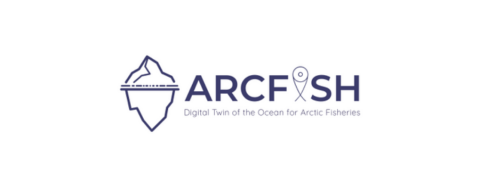
Digital Twin of the Ocean for Offshore Wind Energy
The DTO4OWE project brings together stakeholders from academia, industry, governmental agencies, and the public to address the challenges associated with the growing Offshore Wind Energy (OWE) sector. With more than 300 offshore wind farms scheduled for EU waters in the coming decade, questions arise about their potential impact on marine ecosystems. Conversely, the OWE sector requires relevant and highquality marine data to plan its activities up to 50 years ahead in a changing climate. We will address these two contrasting but interconnected themes using digital twins of the oceans (DTOs).
The first objective is to develop fit-for-purpose sub-regional DTOs for assessing OWE impacts in the Baltic Sea and North Sea. Depending on the application, DTOs will encompass the physical-ecological environment and cover short-to-long term periods (up to 50 years), offering improved resolution and quality compared to the state-of-theart. The second objective involves creating a suite of tools for OWE sector-specific What-If Scenarios, including on-demand models, AI-based data-simulation fusion, forecasting, and downscaling tools which are integrated with Destination Earth Data Lake and EDITO_infra. In the long term, DTO4OWE aims to support the sustainable growth of the offshore wind energy sector by adopting digital twin technologies of the ocean environment. The project outcomes can be incorporated into OWE sector decision-making processes, which ultimately has large scale impacts on future OWE production. The developed DTO applications are upscalable for other sub-regions and applicable to monopile, gravitybased, and floating offshore wind farms.
Coordinator: Tallinn University of Technology, TalTech, Estonia
Partners:
- Danish Meteorological Institute, DMI, Denmark
- Helmholtz-Zentrum hereon GmbH, HEREON, Germany
- Instytut Oceanologii Polskiej Akademii Nauk, IOPAN, Poland
- ILMATIETEEN LAITOS, FMI, Finland
- SINDBAD scarl, SINDBAD, Italy
- Swedish Meteorological and Hydrological Institute, SMHI, Sweden
- Norsk Institutt for Vannforskning, NIVA, Norway
Self-funded partners:
- Estonian Environment Agency, ESTEA, Estonia
- Vattenfall Vindkraft A/S, Vattenfall, Sweden
- University of Liège, ULiège, BelgiuM
Digital Twin of the Ocean: Animal Tracking
The ocean is a wickedly challenging area to conduct scientific research. Marine fish evolve in an environment that is not readily accessible (immersed, offshore) leading to fragmented, and sometimes non-existent, knowledge of species distribution and ecology. The concept of generating digital twins of the ocean is borne from the necessity of having tools and methodologies available to support research and management activities on Europe’s seas. In this context, data and tools derived from mapping and animal tracking can support efforts aimed at facilitating modelling and simulations for fisheries management and spatial planning. Digital twins have largely focused on physical features of the oceans, especially bathymetric mapping, water circulation, and physicochemical properties; however, biological digital twins developed from animal tracking are highly promising to support management actions and key policy like the EU Common Fisheries Policy and the Marine Strategy Framework Directive.
Animal tracking (acoustic, archival telemetry) has emerged as a valuable scientific tool for marine ecology and oceanography. Animal movement is an essential ocean variable1, but one that is generally challenging to ascertain because of the highly dynamic nature of animal movement at the immense scale at which it must be observed, and because GPS signals cannot reach satellites from under water. Technological advances in aquatic animal telemetry technologies have allowed for near-continuous remote observation of marine animals after initial capture. Innovations driven forward by the European Tracking Network (ETN) are entrenching telemetry as a key tool for tracking aquatic species in Europe, and will support the development of a digital twin of the North Sea fauna in this project. DTOTrack will leverage existing telemetry infrastructure in eight different European nations along with a dedicated international digital infrastructure housed at VLIZ (ESFRI LifeWatch and Horizon Europe Bioflow), and the new Horizon Europe STRAITS project, which is instrumenting major acoustic telemetry receiver lines along the Danish Straits and the Celtic Straits to develop a digital twin of North Sea fauna. In this project, eight North Sea member states will collaborate to deploy regional infrastructure (tags and receivers), and leverage existing physical (STRAITS project lines) and digital infrastructure (LifeWatch ETN database) to develop a digital twin of the North Sea’s fauna. Funding will be leveraged to coordinate animal tagging studies across countries to test hypotheses about animal migration and behaviour, overlap with offshore developments, and to address ‘what if’ scenarios of interest to managers, developers, and conservation organisations, using novel data streams and integrated tools.
Directorate-General for Maritime Policy
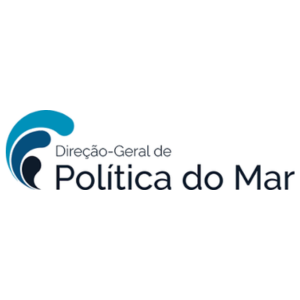
Drones fleet
3 LiDAR, 2 IMU, 2 Hyperspectral, 2 multispectral, 4 Thermal, 6 CMOS Cameras, 2 gas, 1 Magnetometer
Fausto Ferraccioli fferraccioli@ogs.it
Paolo Paganini ppaganini@ogs.it
DTU - Partner
Dutch Ministry of Agriculture, Nature and Food Quality
Bezuidenhoutseweg 73, The Hague
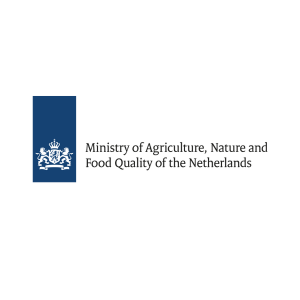
Economically viable integrated floating energy islands maximizing social welfare through LCOE optimisation preserving local content and multi-usage considerations
Within the European Green Deal, targets are set to have an installed capacity of offshore wind of least 60 GW in 2030. To fully leverage the potential of the European Sea Basins, the transition to floating structures is essential, allowing to move beyond construction in the relatively shallow waters. Floating wind is a relatively new market, with only a total installed capacity of 232MW in 2023. This is expected to grow with 5000% by 2030, which means that rapid maturation of this market is needed. Due to the increasing distance between farms and shore, the additional challenges are not only limited to the design of the sub-floater, but also consist of establishing suitable transport vectors between these farms and the mainland, optimizing the operating and maintenance (O&M) strategy of farms, quantifying the energy losses due to wake effects in floating wind, and considering deployment limitations such as conservation, tourism and fishing areas. This means that a competitive Levelized Costs of Energy (LCOE) needs to be achieved compared to conventional energy sources, while increasing the social acceptance of wind energy. These challenges can in part be mitigated by the construction of offshore energy islands.
EVOLVE aims to fill these gaps by delivering technologies and methodologies to achieve the integration of different offshore energy technologies at the level of energy islands in a way that optimizes the LCOE and social welfare. Market scenario analyses are performed for different sites across the European sea basins to estimate a maximum viable LCOE, based on regulations, policy constraints and potential incentivization schemes. Hotspot and potential area analyses are performed for the European sea basins in an multi criteria decision analysis based on estimates of production yield, environmental conditions and multi-use constraints (e.g., fishery, tourism, transport). Hydrogen production is integrated and optimal transport vectors and routes are investigated to allow for transport of hydrogen in addition to the direct use of electricity. To this end, the use FARWIND's energy ship in combination with floating energy islands is investigated. In addition, different designs of sub-floaters are developed and tested in both a simulation and lab setup, to maximize production capacity on the floater and increase lifetime. Finally, an integrated operational strategy is developed to balance the intermittent multi-use renewable energy systems installed on the energy island, to further minimize operational costs and increase production.
Coordinator: Vrije Universiteit Brussel, VUB, Belgium
Partners:
- Ecole Centrale de Nantes, ECN, France
- Fraunhofer Institute for Energy Economics and Energy System Technology, IEE, Germany
- Aalborg University, AAU, Denmark
- NATIONAL TECHNICAL UNIVERSITY OF ATHENS - NTUA, NTUA, Greece
- FARWIND Energy SAS, FARWIND, France
EHU - Partner
ELKON - Partner
EMSO Western Ionian Sea
Davide Embriaco davide.embriaco@ingv.it
EMSO-EUXINUS fixed platform
Vlad Radulescu vladr@geoecomar.ro
Enhancing algal biomass consumer acceptance for food markets
As society shifts away from animal-based diets driven by environmental sustainability, health, and animal welfare concerns, both seaweeds and microalgae (referred to as algae) have emerged as promising sustainable food sources due to their carbon capture capabilities and interesting nutrient profile, including proteins, minerals and omega-3 fatty acids. Despite their potential, the widespread adoption of algal biomass in food faces significant hurdles on the European markets, primarily stemming from consumer acceptance regarding their impact on taste, aroma, and visual appeal in food products.
AlgFlavor addresses several knowledge gaps and challenges hindering the integration of algae into European diets. Recent research shows the broad diversity of flavor profiles among different algae, which also depend on cultivation and processing conditions. The potential of specific marine algae was highlighted for developing seafood alternatives due to their intrinsic seafood flavor. AlgFlavor will identify the optimal cultivation and processing conditions to improve the seafood flavor of the algae. Production conditions with desired flavor qualities will then be scaled while maintaining consistency. Through in-depth flavor analysis and consumer acceptance tests, AlgFlavor seeks to enable efficient formulation of food containing algae, focusing on seafood alternatives. Furthermore, the behavior of algal flavor within different food matrices (e.g. lipids, protein or carbohydrates), in presence of flavor enhancers as well as after different types of processing or storage will be investigated; both as model systems and food products. AlgFlavor prioritizes consumer engagement to increase awareness and acceptance of algal-containing food products, thereby promoting healthier and more sustainable dietary choices. Furthermore, environmental, social, and economic impacts of algal production and the algal-containing food will be integrated in AlgFlavor. A risk-benefit study will be carried out to evaluate the effects of consuming algal-containing food products. This assessment will focus on the nutritional impacts and claims of incorporating these food formulations into the regular diets of different population groups within the studied areas.
AlgFlavor adopts a multidisciplinary approach encompassing cultivation science, food technology, food chemistry, sensory evaluation, consumer behavior research, and sustainability and risk-benefit assessment. This approach will bridge the gap between algal producers and the food industry, creating a resilient blue economy. By supporting the growth of the seafood alternatives sector using low trophic species, the project has a positive environmental impact through reducing the pressure on marine animal stocks. As a result, AlgFlavor aligns with the EU's Blue Bioresources priority area by promoting sustainable food production and reducing pressure on marine ecosystems.
Coordinator: Flanders Research Institute for Agriculture, Fisheries and Food, ILVO, Belgium
Partners:
- Ghent University, UGent, Belgium
- Foundation for Dutch Scientific Research Institutes, Royal Netherlands Institute for Sea Research (NWO-I, NIOZ), NIOZ, Netherlands
- Danmarks Tekniske Universitet, DTU, Denmark
- Nofima AS, Nofima, Norway
- University/research/testsite, Chalmers, Sweden
- S2AQUA - Collaborative Laboratory, Association for a Sustainable andSmart Aquaculture, S2AQUA, Portugal
- STRATAGEM ENERGY LTD, STRATA, Cyprus
- Agriculture Research Brazilian Company, Embrapa, Brazil
Environmental Monitoring Lab
Stefano Chiappini Stefano.chiappini@ingv.it
EPAGRI - Self-Funded Partner
Estonian Ministry of Regional Affairs and Agriculture- REM
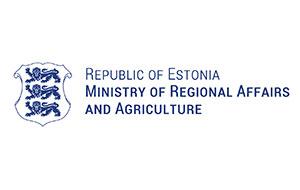
Estonian Research Council
Rue Guimard 11/13, 1040 Brussels, Belgium
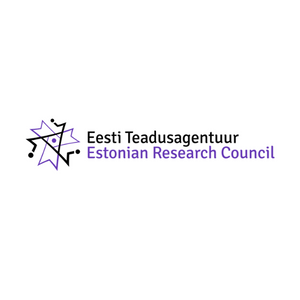
EurOcean - Partner
EV-ILVO - Partner
Exp Labs Mesocosm Facility
National Research Council

Simone Cappello simone.cappello@irbim.cnr.it
Experimental Marine Laboratories
Raimund Bleischwitz direktor@leibniz-zmt.de
Claudia Schüler claudia.schueler@leibniz-zmt.de
Exploitation and Impact Network
The aim of the network is to develop tools and actions to transfer new knowledge and increase impact of the co-funded R&I projects at local, national and European level, taking into consideration different target groups: policy makers, civil society and marine and maritime industry.
Ultimately, the Exploitation and Impact Network will contribute to a better co-creation and knowledge transfer between research industry, policy makers, and citizens by:
- making impact pathways mandatory at the project level;
- developing Open Access strategy and addressing Intellectual Property Rights;
- increasing the impact on the target groups needs through capacity building of the applicants to the call;
- promoting innovative solutions and accelerate their market uptake;
- bridging science policy gaps to maximise impact.
Feedback survey - Non-participants - 1st Sustainable Blue Economy Partnership
Feedback survey - Non-participants - 1st Sustainable Blue Economy Partnership
Thank you for taking the time to answer our survey. Your valuable insights are instrumental in our continuous improvement efforts. We appreciate your contribution towards making future events even more successful and fulfilling for all participants.
Feedback survey - Participants at the 1st Sustainable Blue Economy Partnership Symposium
Feedback survey - Participants at the 1st Sustainable Blue Economy Partnership Symposium
Your insights are instrumental in our continuous improvement efforts. We appreciate your contribution towards making future events even more successful.
FEM - Partner
FEPROMODEL - Self-Funded Partner
Fixed Platform (W1M3A)
National Research Council

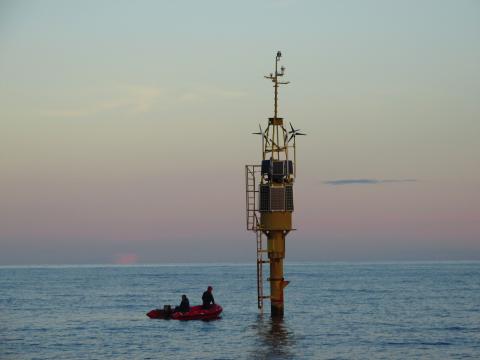
Roberto Bozzano roberto.bozzano@cnr.it
Sara Pensieri sara.pensieri@cnr.it
Fixed platform Coastal Radar network
National Research Council

Marcello Magaldi marcellogatimu.magaldi@cnr.it
Fixed Platform Corsica channel
National Research Council

Katrin Schroeder katrin.schroeder@cnr.it
Fixed Platform Sicily Channel
National Research Council

Katrin Schroeder katrin.schroeder@cnr.it
Flanders Research Institute for Agriculture, Fisheries and Food, ILVO, Belgium
Formulation of seaweeds to high-value ingredients for food and nutraceuticals markets
One of the biggest societal challenges today, is to feed the growing world population. The global food system today causes major environmental problems (e.g. loss of biodiversity, greenhouse gas emissions, water overuse, and pollution) and there is a great need to implement a sustainable system. Cultivated macroalgae have the potential to be a pillar in such a sustainable system. Macroalgae are a staple food in Asian diets and are a resource that can be cultivated without the need for freshwater, with no fertilizers, and at the same time sequestering CO2, avoiding further compromise of the sustainability and biodiversity of natural resources. Seaweeds, however, still face challenges in penetrating western markets due to low nutritional content, and low inclusion rates in foods because of sensory properties, needing innovation in product development, and closing of knowledge gaps regarding safety and health benefits.
The ForSea project aims to enhance the nutritional, safe, and functional properties of cultivated brown and green seaweeds and formulate food and food ingredients, via sustainable processing technologies, including fermentation, and utilization of both complete harvests and residual biomass from the developed processes. The project will further develop, characterize, and formulate novel food prototypes, evaluated by sensory trials, and with validated health-promoting properties via prebiotics verification and a clinical trial on a selected promising product. In addition, environmental and economic, aspects will be assessed at different process stages, along the value chain.
The consortium consists of 8 partners and 4 subcontractors (including universities, research institutes, industry partners (SMEs), and a municipality center) representing four countries (Norway, Sweden, Denmark, and Portugal) and will utilize marine resources from both the Atlantic Ocean and Baltic Sea. Key technologies in the project include biomass cultivation, pre-processing, extraction (by solvents and enzyme aided), microbial processing, food formulation, and safety, sensory and clinical trials as well as environmental and techno-economic assessments. New knowledge, methodology and prototypes will be developed based on renewable and sustainable marine biomasses, contributing to the growth of the blue economy, via development of scientific excellence, and work towards solving key societal challenges.
Coordinator: Lund University, ULUND, Sweden
Partners:
- Seaweed Solutions AS, SES, Norway
- University of Copenhagen, UCPH, Denmark
- ISI Food Protection ApS, ISIFP, Denmark
- University of Copenhagen, UCPH, Denmark
- NOVA University of Lisbon, NOVA, Portugal
- Instituto de Biologia Experimental e Tecnológica, IBET, Portugal
- MØREFORSKING AS, MF, Norway
Forschungszentrum Jülich GmbH
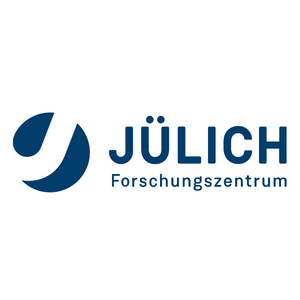
Fraunhofer - Partner
From science to policy: assessing impacts and developing solutions for ship traffic and offshore wind farms through detailed soundmaps
Owing to the synergy among research institutions from Italy, Germany, Sweden, and Norway, BluEcho aims to improve the sustainability of the shipping and wind farm industries and conserve species biodiversity by assessing noise impacts on marine fauna and evaluating the efficiency of various acoustic mitigation measures to reduce noise levels.
Our comprehensive approach will adopt a combination of numerical simulations, fieldwork, and desktop studies to provide critical data for the design of low-noise Marine Protected Areas implemented in the Mediterranean Sea, the North Sea, the Baltic Sea, the Norwegian Sea, and the Polar Oceans. Data from the more pristine polar regions will serve as a benchmark for comparison with areas with high shipping traffic recorded in the other sea basins. Sound produced by wind turbines and ship propellers will be reproduced in detail with cutting-edge numerical techniques and will serve as input for producing detailed sound maps. In particular, the Hywind Tampen wind farm case study in the Norwegian Sea will serve as a starting point to develop similar sustainable technologies in other sea basins. Model validation, resulting from the joint effort of the partners, will lead to fine-tuning and optimization processes for the numerical tools.
The numerical modeling will generate accurate three-dimensional sound maps resulting from existing models and in-house codes that will provide useful information on the effective noise-generation mechanisms. The maps will guide the process of identification of mitigation measures of noise emission.
Noise reduction measures already taken into consideration by various ship-building firms will be evaluated for their effectiveness with a science-based approach. Underwater noise impacts will be assessed on selected marine taxa tailored to each sea basin.
The joint effort among the partners will contribute to implementing a coordinated international approach to effectively manage underwater noise pollution.
The project will deliver an economic analysis of costs and benefits coupled with a marine spatial planning analysis. Given the difficulty to reliably monetize benefits, a cost effectiveness analysis is suggested to find the best balance between noise reduction and economic cost minimization. Starting from the list of measures that can be adopted to reduce noise, we will analyze their cost components: investment and variable cost.
The project's results will use marine data from Copernicus Marine service and EMODnet and will be broadly available and accessible to decision-making bodies and represent a benchmark for the relevant stakeholders.
Long term impacts of BluEcho will be: 1) the contribution to the development of new decision-support tools; 2) the promotion and integration of initiatives and support to interconnectivity of policies among regional sea basins; 3) the enhanced cooperation, co-design, and activity alignment with stakeholders beyond academia.
From waste to taste: exploring innovative food applications of postharvest fish losses
WASTE2TASTE is a network of 8 European partners including academia, research centers, and SME’s, with proven expertise in higher education and endowed with state-of-the-art scientific and technical expertise aimed at the development of commercially viable products by using postharvest fish losses (PHFL), including unwanted fishery by-catch species (e.g., non-indigenous species (NIS) and cartilaginous fish with low commercial value) and by-products from fish processing and aquaculture industries.
The main WASTE2TASTE objective is the valorization of PHFL, showing potential applications in a circular economy and an eco-friendly vision by developing protocols for sustainable exploitation of underused and/or wasted marine resources, to obtain high-value products for food applications. The base of WASTE2TASTE is to utilize PHFL, naturally rich in proteins and bioactive compounds, to develop innovative green and cost-effective bioprocesses for the production of marine ingredients (e.g., collagen, chitin/chitosan, and fish oil), reducing extraction time and use of hazardous solvents/enzymes allowing, at the same time, to minimize pollution into the ecosystem.
Therefore, WASTE2TASTE will (i) contribute to reducing the waste volume through the development of appropriate PHFL management measures, (ii) allow to address the European "ZeroWaste" goal aiming at the 3R principle "Reduce, Reuse and Recycle”, (iii) contribute to achieve a resilient and sustainable development for marine/maritime sector and, in an indirect way, (iv) allow to mitigate the NIS, which cause damage to marine ecosystems and humans. The challenge is to gain insights into market opportunities that will be profitable and will satisfy new and different attitudes/demands of consumers.
Overall, WASTE2TASTE will fully exploit the potential of underutilized marine biological resources, from laboratory to industrial scale production of marine collagen and chitosan-based products, with potential commercial uses that reach Technological Readiness Level 7. WASTE2TASTE will create a nutritional end product targeting different end-users’ health issues (e.g., exercise performance, muscle growth, joint problems, gut health, and obesity).
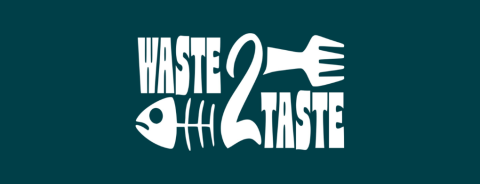
FRV 'Walther Herwig III'
Reinhold Hanel reinhold.hanel@thuenen.de
Klaus Wysujack klaus.wysujack@thuenen.de
Functional processing of cultivated seaweeds for novel food products
One of our most pressing societal challenges today is feeding the growing world population in a sustainable manner. The present global food system causes major environmental problems, including land degradation, loss of biodiversity, greenhouse gas emissions, water usage and pollution. There is thus a great need for novel food resources that are healthy, safe, and nutritious, and at the same time cause less emission of greenhouse gases, pollutants, and excess nutrients, and do not further compromise the sustainability and biodiversity of natural resources. Cultivated macroalgae are a staple of the Asian diets and can have a bigger contribution to more sustainable food systems, but still faces challenges in penetrating western markets due to an inherently low nutritional content, low versatility and inclusion rates in foods because of sensory properties, lacking innovation in product development, and knowledge gaps regarding safety and health benefits.
The FunSea project aims to enhance nutritional quality, safety and functional properties of cultivated brown and green algae as food ingredients, through development of new sustainable processing technologies and utilization of side streams and residual biomass from seaweed production as well as other aquaculture industries and fisheries. The project will further develop and characterize novel food prototypes toward a wide European market, and assess environmental, economic, and regulatory aspects along the value chain from biomass production to finished products. The consortium consists of four research partners (SINTEF, Lund University, Aalborg University, Fraunhofer IMTE), one public body (Marine centre Simrishams municipality) and two industry partners (Seaweed Solutions, Bettafish) representing four countries (Norway, Sweden, Denmark, and Germany) and will utilize marine resources from the Atlantic Ocean and Baltic Sea. Key technologies in the project include biomass cultivation and pre-processing, enzymatic and microbial processing, food technology, and environmental analysis. The FunSea project will develop new knowledge, methodology and prototypes based on renewable and sustainable marine biomasses, contributing to the growth of the blue economy, development of scientific excellence, and solutions toward key societal challenges.
Fund for Scientific Research - FRS - FNRS

Funding opportunities
Funding opportunities
The partnership is launching six co-funded calls for research and innovation proposals over a seven-year timeframe. All open calls can be found below.
Stay updated
Past calls
Fungal single cell protein from macroalgal waste fermentation: improving sustainability and reducing the carbon footprint of fish aquafeeds
AlFunFeed aims to transform aquafeed production through innovative biotechnological processes. Its primary objective is to replace plant protein (PP) sources in aquafeeds for carnivorous fish species with single-cell protein (SCP) derived from fungal fermentation of macroalgae-based substrates. AlFunFeed is driven by a multidisciplinary approach, harnessing expertise across various fields.
The initial phase lead by ODS focuses on developing SCPs from three strains of filamentous fungi (Neurospora crassa, Rhizopus oryzae, and Fusarium venenatum) and considering four variables in production (temperature, pH, oxygenation, and medium composition) resulting in 3 SCPs to replace 15% PP in diets for European seabass (Dicentrarchus labrax), as a model of carnivorous fish species. With optimal conditions defined, 3 diets will be formulated with SCP from each strain to feed juvenile seabass in a pilot study including feed trial and evaluation of immune status (CIIMAR), feed intake regulation, nutritional profiling, and digestive function (UVigo), gut microbiota (UTH), and fish welfare (UNIVPM). The most promising SCP from pilot study will undergo a validation study under EFSA recommendations with different levels of PP replacement (15-25%) to determine optimal substitution without compromising fish robustness. Cost analysis and environmental impact of SCP and whole aquafeed production will be also evaluated. Partners of the consortium from key European aquaculture-producing countries (Greece, Spain, Italy and Portugal) representing Mediterranean and Atlantic basins, aim to generate valuable insights and data to benefit aquaculture practices globally. This collaborative effort embodies the quadruple helix model, involving academia, industry, government, and civil society to advance the aquaculture sector towards sustainability and resilience.
The project emphasizes sustainability and circular economy principles by valorizing macroalgae discards as a valuable resource for SCP production. AlFunFeed contributes to development of more equitable and environmentally conscious ocean economy aligning with specific challenges outlined in the UN Decade of Ocean Science, such as sustainable ocean economy development and global food security, thus addressing critical global issues. AlFunFeed also prioritizes awareness-raising and engagement activities to promote ocean literacy and responsible aquaculture practices. Through dissemination efforts, the project aims to reach diverse audiences and foster a deeper understanding of the importance of marine resource preservation.
The successful implementation of AlFunFeed could lead to the widespread adoption of sustainable aquafeed formulations on industrial scale. Comprehensive dissemination and intellectual property management strategies are in place to ensure responsible exploitation of project outcomes, maximizing its impact and facilitating the transition towards a more sustainable aquaculture sector.
Coordinator: Universidad de Vigo, UVIGO, Spain
Partners:
- Università politecnica delle Marche, UNIVPM, Italy
- ODS PROTEIN S.L., ODS, Spain
- Interdisciplinary Centre of Marine and Environmental Research, CIIMAR, Portugal
- University of Thessaly, UTH, Greece
Self-funded partners:
- Federazione Nazionale delle Imprese di Pesca, Federpesca, Italy
- Axencia Galega de Innovacion, GAIN, Spain
- CONSELLERIA DO MAR - XUNTA DE GALICIA, Spain
FURG - Partner
GAIA BLU RV
National Research Council

Lorenza Evangelista navegaiablu@cnr.it
GEOMAR - Partner
GEOMAR-Long term stations (GEOMAR-LTS)
Johannes Karstensen jkarstensen@geomar.de
Anja Wenzel awenzel@geomar.de
Get to know our first projects
GU - Partner
H2OScitech - Self-Funded Partner
Hailia - Self-Funded Partner
Harmonised ocean data sets for blue sustainable eutrophication management of the North-East Atlantic Ocean and Baltic Sea
Eutrophication is a critical issue in areas of the Northwest European Shelf and the Baltic Sea, diminishing water quality and inhibiting sustainable blue economy sectors. The challenging yet urgent need for international collaboration across the area regarding marine eutrophication is a true code blue for our seas. Information is still lacking to produce an efficient and long-lasting eutrophication policy in a changing climate based on conventions’ recommended nutrient input levels.
CodeBlue will compile observational river data to build a unique and harmonised set of model forcing data to be used in front-line physicalbiogeochemical models. CodeBlue will consider the longterm aspects of biogeochemistry cycles (e.g. sea bed nutrient storage, climate change), and the effect of nutrient transport from adjacent basins. A set of long-term model simulations (>50 years) will be generated, including base line hindcasts and “what if scenarios” of low riverine nutrient load and no climate change scenarios as well as climate projections, including a nutrient scenario of “Maximum Allowable Input”. CodeBlue will use a weighted ensemble model approach to combine results and estimate uncertainties at regional scales, and aims to quantify the relative role of enhanced nutrient loads versus climate change in establishing present-day eutrophication as well as evaluate if suggested maximum input levels of nutrients will be effective in a changing climate.
The new information will be tailored in a two-way communication with key stakeholders in an active codesign board to find a way forward in eutrophication management considering environmental changes, targeting a de-eutrophied North-East Atlantic Ocean and Baltic Sea. In addition, the regional scenario results will be used by local models at blue pilot cases in the Baltic Sea, North Sea and Western Iberia (Galicia and Sado estuary) to establish how the implemented measures will affect blue economy activities (e.g. aquaculture) and local marine management.
CodeBlue has the ambition to make knowledge readily available to blue food entrepreneurs, local marine managers, scientists and policy-makers by providing innovative, user-driven, interactive visualisation tools tailored to stakeholder needs. The CodeBlue web portal will display large open access (available on EMODnet), transparent and homogenous datasets following the FAIR principles, while stakeholder involvement from start to finish will ensure applicability. Policy briefs facilitate knowledge transfer to stakeholders, while results embedded in existing structures will secure the project’s legacy in the longer term. CodeBlue is by essence a true test use case of the Digital Twin of the Ocean for the North-East Atlantic Ocean and the Baltic Sea, with results aimed at impacting policies at a regional and European Union scale, not only on eutrophication, but also to improve the overall quality of our marine waters and support sustainable blue food production.
Coordinator: Swedish Meteorological and Hydrological Institute, SMHI, Sweden
Partners:
- Leibniz Institute for Baltic Sea Research Warnemuende, IOW, Germany
- Institute of Marine Research, IMR, Norway
- Marine Institute, MI, Ireland
- +Associação para um Laboratório Colaborativo do Atlântico, +ATLANTIC, Portugal
- Centro Nacional Instituto Español de Oceanografía - Consejo Superior de Investigaciones Científicas, IEO-CSIC, Spain
- ETT S.p.A., ETT, Italy
- Royal Belgian Institute of Natural Sciences, RBINS, Belgium
- French research institute for exploitation of the sea, Ifremer, France
- Stichting Nederlandse Wetenschappelijke Onderzoeksinstituten - Koninklijk NIOZ, NIOZ, Netherlands
- Aarhus Universitet, ECOSCIENCE, ECOS, Denmark
- Tallinn University of Technology, TalTech, Estonia
- Finnish Environment Institute, Syke, Finland
- AquaEcology GmbH & Co. KG, AE, Germany
- OCEANDATALAB, ODL, France
HCMR - Coordinator
Homepage
The Sustainable Blue Economy Partnership
The Sustainable Blue Economy Partnership represents an unprecedent effort of 74 Partner institutions from 32 countries and the European Commission to pool research and innovation investments and align national programmes at pan-European scale. As a Horizon Europe co-funded partnership, its strategy takes into consideration the R&I agendas of the sea basins (Mediterranean, Black Sea, Baltic and North Sea) and the Atlantic Ocean. All its activities are anchored in a Strategic Research and Innovation Agenda (SRIA) 2024–2026.
The Sustainable Blue Economy Partnership is organising its 2nd Symposium: Full Sail Ahead Towards the Sustainable Blue Economy on 11 February 2026 in Bucharest. Join us there!
investments
over 7 years
the European Commission
News
The Partnership Launches Rolling Transnational Access Call to Research Infrastructures
The Sustainable Blue Economy Partnership has officially launched its Rolling TA Call to Marine and Maritime Research Infrastructures.
Open from 20 February 2026 to 29 February 2028, the Call enables access to approximately 50 RIs across Europe, including research vessels, fixed platforms, mobile systems, analytical labs, and high-performance computing facilities.
Projects are evaluated every four months by an International Evaluation Panel and may run up to 18 months.
This Call represents a strategic action to enhance transnational collaboration, foster innovation, and strengthen the science-policy interface in support of a sustainable and climate-neutral blue economy.
• Submission platform here
• First cut-off: 20 June 2026 – 17h00
Visit the call page for more information ->
Learn more ➝
Blue Synergies in Action: Sustainable Blue Economy and Waterborne Launch Joint Dialogue
On 8 April 2025, the Sustainable Blue Economy Partnership, jointly with the Waterborne Technology Platform coordinating the Zero-Emission Waterborne Transport partnership and in collaboration with the EU Mission "Restore our Oceans and Waters", brought together leading experts, EU projects, and stakeholders from across Europe for a technical workshop on ports, marinas, logistics, and sustainable fisheries.
Learn more ➝
Exploring market opportunities in the blue economy: Sustainable Blue Economy Partnership co-funded projects at BlueInvest Day 2025
In March 2025, two projects co-funded by the Sustainable Blue Economy Partnership participated in BlueInvest Day, a flagship event organised by the European Commission during the European Ocean Days to showcase champions of innovation, investment, and sustainability in the blue economy, bringing together entrepreneurs, investors, and innovators.
Natalia Mæhle, coordinator of the AQUABALANCE project, balancing economic, environmental, and social sustainability in the European aquaculture industry, and Ruth Higgins from ARCFISH, the Digital Twin of the Ocean for Arctic Fisheries, joined the event in Brussels to explore commercialisation pathways, networking opportunities, and innovation in the blue economy. They share their experiences and key takeaways from the event.
Learn more ➝
Sustainable Blue Economy Partnership’s Projects Now Endorsed as UN Ocean Decade Actions
Fourteen research and innovation projects co-funded under the Sustainable Blue Economy Partnership's first joint transnational call are now officially recognised by the UN Decade of Ocean Science for Sustainable Development 2021-2030 (‘Ocean Decade’) as UN Ocean Decade Actions. This acknowledgement underscores their contribution to global efforts towards a climate-neutral, sustainable, resilient, and competitive blue economy.
Learn more ➝
At the nodal point: regional sea basin representatives meet in Brussels
On Monday, 3 March 2025, the Sustainable Blue Economy Partnership's regional sea basin nodes gathered for a meeting in Brussels. Hosted at the Tuscany Region liaison office in collaboration with Tour4EU, the meeting brought together partners, nodes and stakeholders to assess progress, refine strategies, and strengthen regional cooperation in advancing a sustainable blue economy across Europe’s maritime basins.
Learn more ➝
Stay updated
Events
To support potential applicants and provide practical guidance on the submission process, the Sustainable Blue Economy Partnership will host an online launch webinar of its latest transnational access call.
More info ➝
On 11 February 2026, the Sustainable Blue Economy Partnership will host the second edition of its biennial Symposium in Bucharest, Romania. The event will mark the midpoint of the Partnership’s journey and serve to reflect on achievements, showcase our projects, and shape the next steps for Europe’s sustainable blue economy.
Check the agenda here.
More information on our speakers.
More info ➝
Following the 2026 Symposium in Bucharest, the Sustainable Blue Economy Partnership will host a Foresight Workshop for a limited number of guests. The workshop aims to provide strategic direction for updating the Partnership's Strategic Research Innovation Agenda (SRIA) in key policy priorities and research domains.
More info ➝
The Sustainable Blue Economy Partnership, a European partnership under the European Commission’s Research & Innovation Framework Programme Horizon Europe, is pleased to announce the launch of its third Joint Transnational Call. This third call is co-branded by the UN Decade of Ocean Science for Sustainable Development as a means of stimulating new initiatives in co-designed and co-delivered knowledge and solutions for a sustainable ocean economy.
An information webinar for potential applicants was held to answer any questions regarding the call. You can re-watch it here or download the presentation.
More info ➝
The Sustainable Blue Economy Partnership (SBEP) has launched in 2025 its first Thematic Portfolio Call for Interest, aiming to connect ongoing funded projects (whether financed by SBEP or other national, regional or European mechanisms) to create and boost networking activities. The Portfolios will be running for a 2-year period, from 2026 to 2028, and focus on two topics: innovations and digitalisation for low-impact sustainable small-scale fisheries management in EU sea-basins, and innovations for boosting sustainability in marine algae cultivations and circularity in the blue bioeconomy.
An information webinar for potential applicants was held to answer any questions regarding the call. You can re-watch it here or download the presentation.
More info ➝
How to effectively benefit from synergies of different funding streams?
HVL - Coordinator
Hydrographic boat 10 m length
Hydrographic Institute of the Navy
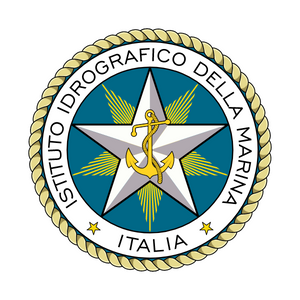
Fabrizio Orengo Maridrografico.genova@marina.difesa.it
Hydrographic boat 8 m length
Hydrographic Institute of the Navy

Fabrizio Orengo Maridrografico.genova@marina.difesa.it
Hydrographic Institute of the Navy

IALB - Partner
IFREMER - Partner
IFT - Partner
IMC - Partner
Improved Valorization of Marine Sources and Processing Waste for Resource Efficient Blue Food/Feed and Environmentally Sustainable Materials Development
Impact-oriented utilization pathways for new sustainable, unexploited low trophic marine resources and fish/aquaculture wastes are one of the key pillars of sustainable transformation of EU blue economy. SEAREFINERY aims to establish a novel bio-based blue food/feed and blue food packaging materials production platform by embracing marine-based sources and wastes targeting five seas. The SEAREFINERY concept will be designed within a multidisciplinary and smart collaboration platform for developing a breakthrough eco-centric strategy considering the local sources, economic and social perspectives at transnational level within the EU. The specific aims of SEAREFINERY includes extraction of high value-added compounds from invasive species, low trophic organisms and marine derived by-products, utilisation of marine-based extracted materials for development of blue food analogues (meat and cheese), functional bread, and smart and active food packaging materials, valorisation of aquaculture and fish waste for blue feed production via bacterial fermentation and microalgae cultivation, a systematic evaluation of the products based on environmental impacts, market analysis, and consumer acceptance followed by a multi-criteria decision making analysis.
At the end of the project, this pin-point novel approach will fulfill the needs for restoring and preservation of the marine ecosystem, the need for valorisation of marine resources for sustainable blue economy, the needs and requirements of society and end-users as well as it will allow for new business models and investment schemes.
IMR - Partner
Innovation Norway
West End House, 11 Hills Place W1F 7SE
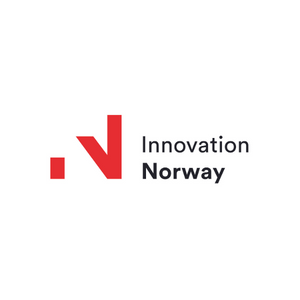
Innovative design and operation for rare earth material reduction and optimized lifetime for next generation offshore wind-based hydrogen production
In the green hydrogen - the hydrogen from renewable energy such as offshore wind - the rare earth materials (REE) play an important role in the magnet and catalyst needed for both offshore wind and the hydrogen production, respectively. The high production concentration, a growing Chinese domestic market demand and an increased worldwide geopolitical political tensions can pose a high supply risk for Europe. REE production comes also with significant environmental impacts. Some estimations show that for every ton of REE, 2,000 tons of toxic waste, including radioactive waste, are produced. Therefore, as a key pathway for the EU’s net zero commitment, hydrogen produced by wind energy’s potential needs to be fully unlocked. This requires disruptive technologies to achieve this goal.
INSPIRE is born in response to the priority area “Development of offshore marine multi-use infrastructures to support the blue economy” to combine marine renewable energy constructions with hydrogen production, to develop multi-use structures and materials to reduce, recycle, reuse and being resistance to extreme environmental conditions. To reach these goals we have set up a consortium of industrial and research partners to optimize green hydrogen system design methodology with minimum REE, to deliver a reference design of an optimized open access 25x15 MW floating wind-hydrogen with minimized REE and optimized lifetime, to implement AI-based wind-hydrogen production optimization and to establish a pathway towards implementation in policy and industrial standards.
The core ambition of INSPIRE is to deliver innovative optimized design for REE reduction, and AI-based optimized operation for integrated hydrogen-wind system as well as road maps for EU policy makers.
INRAE - Partner
Integral valorisation of seaweed biomass for the development of sustainable, high nutritional quality food products
SEAFOODTURE is an ambitious project which aims to contribute towards an integral valorisation of seaweeds for the production of sustainable, high nutritional quality food products. The project combines research activities dealing with: sustainable cultivation of seaweeds; development of protein-rich ingredients and seaweed-based food products through green technologies; production of bio-based packaging materials; structural and techno-functional characterization; assessment of nutritional quality and digestibility; sensorial and consumer studies to bring the products closer to the final markets; and life cycle assessment (LCA) and socio-economic analysis, to ensure the environmental social and economic sustainability. This will be achieved by combining the complementary and multidisciplinary expertise of the European academic and industry partners involved in this proposal and the participation of relevant stakeholders.
The food industry is facing great challenges, motivated by society’s needs and environmental concerns. The rapid population growth is pushing food production towards its limits, and reliance on animal-based protein sources puts additional strain on the environment. Moreover, plant protein sources need to be complemented by novel cultivars, less dependent on the use of water and lands. Thus, there is an urgent need to develop additional protein-rich food products with high nutritional quality by exploiting non-traditional sources. Seaweeds are attracting great interest due to their advantages over land biomass; however, they are still largely unexplored as foods, which is mostly due to (i) the lack of sustainable and robust strategies for the supply of seaweed biomass, (ii) the scarce knowledge on their techno-functional and nutritional properties, which makes it challenging to process them and ensure product stability/safety at industrial scale, (iii) the knowledge gap with regards to the digestibility and bioaccessibility of their proteins and (iv) the low awareness of consumers in European countries towards seaweed-based products. In this project, we aim to exploit the full potential of seaweeds as an alternative and sustainable protein source by investigating the techno-functional and nutritional properties of protein-rich products in which proteins will be combined with other components such as dietary fibres, providing health and techno-functional benefits. Furthermore, with the aim of minimizing the amount of waste generated through the manufacturing process, residues obtained after the extraction of protein-rich ingredients will be used to generate bio-based food packaging materials. This will allow to develop novel seaweed-based food products through a circular economy approach. The project is expected to have a strongly positive impact on the seaweed industry, fostering an efficient biomass utilization to generate high added value products and promoting the consumption of seaweed-based foods amongst EU consumers.
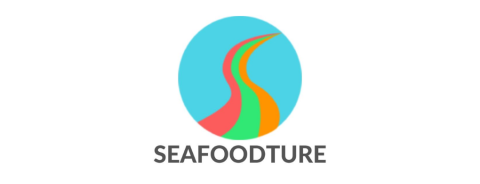
Intervention Area: Blue Bioresources
Intervention Area: Blue Bioresources
This Intervention Area addresses research and innovation needs to support a just transition to the sustainable production and utilization of blue bioresources, with emphasis on production and processes that minimise the environmental impacts while meeting the demand for healthy and affordable blue food, feed, and other biobased products.

Background and rationale
The EU Green Deal sets the context for Europe’s blue economy to become sustainable and climate-neutral by 2050. The Blue Bioeconomy represents an important component of the broader blue economy, delivering food, feed and bio-based products for internal and export markets. With the completion of the Horizon 2020 BlueBio ERA-Net in 2023, the SBEP becomes a key implementing mechanism in Horizon Europe for blue bioeconomy R&D. To achieve sustainability, it is important to consider all stages of the bioresources value chain, from production (capture fisheries, aquaculture) to seafood processing, extracting value from waste streams, developing new types of biomasses, new food and non-food products, as well as advanced extraction technologies such as those used in biorefineries. Cooperation will be sought with the FutureFoodS partnership, which will focus on the post-farming and -fishing part of food systems.
Key considerations to be taken on board in this Intervention Area include the importance of engaging with industry and stakeholders and if relevant, the application of multi/trans-disciplinary approaches to address complex challenges, including social sciences and humanities.
Key thematic areas
Sustainable Fisheries and Harvesting
Overexploitation and the cumulative impact of overfishing with the effects of pollutants, climate change and other drivers on susceptible species and ecosystems is leading to unsustainable scenarios for the next decades. To bring Europe's fish stocks back to sustainable levels, there are important challenges remaining. More food, feed or biotic resources for other purposes can be obtained from more targeted fisheries and harvesting by improved management of overfished stocks, optimized fishing technologies and practices to reduce bycatch and discards, and increased fishing and harvesting of underutilised species (i.e., zooplankton, other invertebrates, macroalgae). A forward-looking ecosystem-based management approach under EU legislation yet tailored to local conditions will reduce adverse impacts of fishing and harvesting on marine ecosystems, particularly sensitive species, and on vulnerable habitats. The sustainability of mesopelagic fisheries is still being assessed and there is a unique opportunity to ensure that EBM is embedded from the outset. New digital tools such as remote electronic monitoring systems, catch reporting using mobile applications, ecosystem modelling and artificial intelligence tools can optimize both small- and large-scale fishing operations. At the same time such technologies can enable data collection and analysis that can support development of sustainable management practices, while providing full traceability for our seafood. Assessments and solution scenarios should consider the impact and social implications of combined drivers such as habitat degradation, pollution, warming, water stratification and acidification, as well as their effects, such as changes in ecosystem composition, higher frequency of toxic algal blooms and alterations with species migration and phenology.
Activities should address the following aspects:
-
Integrated approaches to innovation for fishing vessels to improve vessel operations and practices including technology for e.g., location (also to contrast illegal fisheries), and water characteristics, catch logistics, while reducing the use of fossil fuels.
-
Exploring and co-developing with industry the potential for new fishing techniques, technologies, and new resources for small-scale fisheries, and seaweed harvesting.
-
Research to inform policy options and management of migratory fish stocks that spend different parts of their life cycle in different jurisdictions. This is a critical issue for the EU Common Fisheries Policy and co-management of stocks between EU and third countries.
-
Supporting the application of ecosystem-based management approaches to inshore and small-scale fisheries management.
-
Understanding the impacts of climate change and human activities including pollution on commercial fisheries, fish stocks and other species with commercial potential.
-
Understanding cross-compliance, alignment and trade-offs between fisheries policy and management with other policy domains (MSP, MSFD, WFD) and the implications of measures associated with the EU Nature Restoration Law on fishing and fishers.
-
Technological advancements to preserve the nutritional value and use for new types of catch or harvest.
-
Increased R&I efforts to improve the understanding of species’ role in the trophic webs, as well as their growth potential as seen in an integrated sustainability and biodiversity-resilience perspective, including the knowledge in concrete management solutions (based on managers’ needs).
-
Understanding the social and economic drivers of change in commercial fisheries to inform both fisheries, economic and regional development policy and planning.
-
R&I that supports new digital tools for monitoring for well-informed and timely decision making and sustainable management considering the impact and societal costs of stressors such as habitat degradation, pollution, and climate change.
-
Development of more selective fishing gears that reduce environmental impact, particularly in the bottom-contact fisheries, and for harvesting new species including macroalgae. Focus can also be on improving fish welfare and increasing traceability.
Aquaculture
Production of safe, secure food and sustainable bioproducts through aquaculture, has a margin for improvements in respect of diversification, competitiveness, and environmental performance. Aquaculture production should be rethought to satisfy growing consumer demand for blue food, as well as the need for innovative blue bioproducts, while enhancing the social, economic, and environmental sustainability and carbon neutrality of the production. This requires targeted technological advancements and diversified production solutions also considering regional and local differences throughout Europe. Integrated multitrophic aquaculture (IMTA), off-shore production, closed systems, or land-based infrastructure with use of recirculating aquaculture systems (RAS), are options for culturing of established and new species. Diversification of species, in particular the expansion and production of organisms of the primary and/or low trophic levels, face several challenges that need technological advancements. For macroalgae there is a need for R&I that supports spatial considerations as well as new offshore production techniques that require further development and facilities, including larger-scale farms, mechanisation, and methods for further processing after harvest. The new and modified technological and digital systems should favour and promote the health and welfare and quality of the farmed fish.
Activities should address the following aspects:
-
Challenges and opportunities associated with further development and expansion of seaweed production, including but not limited to environmental concerns, e.g., light, nutrients’ uptake, vectors for diseases, parasites and spread of invasive species; risk of genetic impact on wild seaweed populations; challenges of insufficient seed quality and varying nutritional levels; food safety challenges due to bioaccumulation of heavy metals; new methods for processing harvested seaweed, taking into account the subsequent value chain (e.g. through biorefinery).
-
Development of biologically, technically, and economically feasible onshore recirculating aquaculture systems opportunities for fish, shellfish, and seaweed.
-
Challenges and opportunities associated with mollusc production, including but not limited to algal blooms as potential threats for food safety; cost/benefits for longer distance offshore production.
-
Innovative alternative solutions to produce established and new species, including integrated multitrophic aquaculture, new systems associated with other economic off-shore activities, closed or land-based systems.
-
New high value and sustainable feed sources to ensure sufficient and balanced feeds that promote fish quality, health, and welfare.
-
Challenges and opportunities for growth in fed mariculture, including but not limited to sustainable and healthy feed, fish health optimization environmental concerns, and food safety issues due to bioaccumulation and biomagnification of xenobiotics.
Enabling a circular blue bioeconomy
Transitioning to a circular blue bioeconomy, whereby the entire biomass of fish, shellfish and seaweed sourced from capture fisheries and aquaculture is utilised, presents both challenges and opportunities. Current policy and regulation can be a barrier to developing new bio-products from waste or side streams (by-catch, rest raw materials etc.), and there is a growing body of evidence to support policy reform. New, sustainable, high-value products can be developed through a biorefinery approach, by e.g., valorisation of waste streams, and contributes to minimising waste and enhancing the value chain. Further exploration of the synergies between blue (aquatic farming) and green (agriculture) is another opportunity in a fully circular blue bioeconomy. For example, side streams from agriculture could be used in aquaculture or bio stimulants derived from marine sources could be used in agriculture. New solutions are also needed for existing challenges e.g., seaweed as bioplastic.
Activities should address the following aspects:
-
Opportunities for developing new sustainable bio-based products (food/feed/chemical/pharmaceutical/material) or services to accelerate the ocean economy and provide solutions for existing challenges.
-
Post-harvest or processing technology to overcome sensory and other drawbacks to increase consumer acceptance for new products.
-
R&I in support of traceability of bio-based products from marine sources through digitalisation.
-
R&I that supports policy reform with respect to regulations on use of waste or side streams for a variety of new bio-based products (food/feed/chemical/pharmaceutical/nutraceutical/material).
Implementation, enablers, and synergies
R&I topics will be formulated for calls for proposals, where projects will be expected to involve a broad range of scientific disciplines, industry partners, citizens, and policy stakeholders order to meet the stated objectives and the quadruple helix ambition. Relevant additional activities could include bringing together diverse marine stakeholder to co-develop objectives, assessing the access and status of research, testing, and demonstration facilities, or supporting the uptake of innovative solutions.
Synergies and complementarity will be sought through dialogue with other relevant and potential overlapping initiatives, particularly EU partnerships Biodiversa+, FutureFoodS, Water4All, and Animal Health and Welfare; actions under the Mission Restore our Oceans and Waters (Mission Ocean); the Circular Bio-based Europe Joint Undertaking (CBE-JU) and Waterborne platform. It is important to ensure that new knowledge, products, or services stemming from Cluster 5 and 6 calls are taken up in relevant blue sectors (by both production and value chain stakeholders).
Outcomes and Impacts
-
Examples of outcomes from R&I investment in this area: Sustainably produced, nutritious, affordable and climate friendly blue food; diversification of food, feed and other feedstock for products with focus on lower trophic levels; more healthy food, fish, fish stocks and healthier marine ecosystems; improved production efficiencies, for seafood products; greater understanding of the impacts of climate change and human activities on commercial fisheries and fish stock; value chain approaches; aquatic bio-productions that are regionally adapted, well integrated into area-based management, with more selective and less damaging fishing techniques; deployment of new technical solutions, digital, nature-based and social innovations as well as community-led and purpose-driven technology for the blue food sectors.
-
Environmental impacts: reduced overfishing by supporting legislation to reducing fishing pressure on overexploited species; optimized technology for reduced bycatch and disincentivising its exploitation; supporting the industry shift towards carbon neutrality by development of more selective and less energy-consuming technologies and procedures; Reduced impact of fisheries on marine habitats.
-
Social impacts: more informed consumers; improved understanding of social and economic drivers of change in the blue bioeconomy and in economic and regional development policy and planning; uptake of innovative fishing gear
-
Economic impacts: productive and competitive greening of the fisheries, aquaculture and processing sectors; improved traceability and labelling of blue food; increase in the number of blue-green companies, products, processes and services; reduced import dependencies and strengthened tech industries; policy and management options to inform EU (CFP) and third-party negotiations in respect of migratory species.
Intervention Area: Blue Economy Sectors
Intervention Area: Blue Economy Sectors
The main aim of this Intervention Area is to support the development of Blue Economy sectors and the optimal use of resources in European oceans and seas in terms of space and material flows while ensuring the conditions for sustainability and reducing environmental pressures.
![]()
Background and rationale
The ocean industries face several common challenges which can be tackled more efficiently by stimulating cross-sectorial technological cooperation and ensure the transitions needed. The key drivers of technological development are sustainability, safety in operation, green and cost-efficient solutions.
Within the broader policy framework of the Partnership, the aim of the Intervention Area is to bolster long-term sustainable purpose-driven technological innovations. The Intervention Area is not limited to any sector or activity but covers the entire blue economy, focusing on the prerequisites for a green and digital transition of these sectors and on the conditions for co-existence and multi-use of activities and infrastructures at sea. Through this Intervention Area the Partnership will support marine and maritime contributions to curbing greenhouse gas emissions towards net zero and solutions for climate related mitigation and adaptation (e.g., Ocean-Based Carbon Dioxide Removal) that strengthen societal and economic resilience against climate-change impacts. The Intervention Area focuses on actions that will bring us closer to sustainability, whether in relation to materials (cf., EU Waste Framework Directive, Critical Raw Materials initiative) and/or helping to minimise conflicts deriving from the demands for space at sea or at the coast.
The activities within the Blue Economy sectors represent highly complex multi-actor social-ecological systems. The transition of these sectors will therefore include broad industrial stakeholder involvement and a diversified funding strategy. Common challenges within all highlighted target areas include regulatory and legal constraints and opportunities, social acceptance of the developments for existing and emerging sectors, socio-economic considerations for a just transition, and broad and inclusive approaches based on principles of social innovation (attitudes and perceptions; learning, networking, and collaboration; and scale, scope, and resonance). Other common challenges are related to corporate social responsibility and social acceptance and license to operate, and the need for new or improved tools and regimes to manage complex safety, security and risk conditions arising from increased co-existence and multi-use structures, including considering biodiversity and cross sectoral issues.
Key thematic areas
This Intervention Area contains two strongly connected sub-areas. There are equally strong linkages with the intervention areas on digital twin solutions, and on marine spatial planning. The focus here is on the material and spatial intervention aspects.
1. Transitioning the Blue Economy
Actions under this Intervention Area should emphasise technology and process development, solution orientation, and integrated approaches to develop the sustainable Blue Economy in the context of climate change and natural hazard challenges. Projects and their clusters should plan a clear path (e.g., value chain perspective) from new knowledge and innovative services and/or products, to a possible service offer to end-users and how to address demands by end-users.
There are several critical needs that require specific attention and investment to advance nature-based solutions (NBS) for ocean-based carbon dioxide removal (CDR) in their biotic (e.g., seaweed cultivation, artificial upwelling) or abiotic (ocean alkalinity enhancement) shape. Activities should address the following aspects:
-
Tools, techniques, and processes, such as ocean sensors to track NBS impacts, methods for cultivating and sinking seaweed and risk assessments.
-
Developing sufficient understanding for scientists and policymakers to assess overall environmental, social and economic impacts (including multi-use) on the ocean and society.
-
Creation of markets and business models: identification of opportunities for profit within appropriate bounds of social license.
The high material intensity of maritime activities, taking account of rapid changes in energy systems, requires full consideration of transition to circularity for existing and upcoming sea-based activities. As an example, the rapid development and expansion of offshore wind requires intensified R&I to better understand the environmental impacts (example: marine habitats and ecosystems, migration routes for birds) and possible technical solutions to alleviate negative impacts). Activities should address the following aspects:
-
Decommissioning options in existing and upcoming segments of the energy sector at meso (type) and macro (sector segment) level.
-
Business models for possible investment mechanisms to facilitate the re-use of installations addressed from a legal, environmental, and economical perspective.
-
Innovation for reducing environmental externalities of new installations and of options for future decommissioning at micro (installation) and meso (type) level, and reuse of materials.
-
‘Materials and Nature-Based Solutions’: compatibilities and incompatibilities of material uses in view of enhancing natural functions and/or enabling reuse and recycling.
2. Improve co-existence and multi-use infrastructures
In view of the increasing demand for space, activities and functions at sea, multi-use spatial concepts, including multi-use infrastructures, brings a potential for synergistic benefits for associated sectors. At the same time, the risk of conflicts and negative environmental effects needs to be minimised. Any multi-use of installations or space increases the complexity compared to a ‘single-use’ situation and requires cost-benefit analysis to understand and valorise its economic and social value chain (e.g., research and innovation, new job profiles, diversification of the tourism sector) and make informed decisions as to its benefit for society and the environment. As an example, industry actors can support multi-use by proposing possible investment mechanisms to facilitate the re-use of installations from a legal, environmental, and economical perspective.
Crowding of space may result in industrial activities moving to further offshore areas, and climate change will generate a more hostile environment for marine and maritime operations (higher sea states, more frequent extreme events). Activities should address the following aspects:
-
How to deal with increased challenges for operations and platforms, for which management and monitoring of operations will need intelligent, faster, and more reliable control systems for remote intervention, including data simulation of potential accidents and spills, efficient strategies for prevention/containment, and consequent environmental remediation approaches.
-
Mechanisms to promote sustainable, safe and secure coexistence of several spatial functions and activities within the Blue Economy, and how to address such coexistence within the legal, economic, social, managerial, and policy context.
-
How to combine infrastructure, functions, and logistics: For example, energy produced at sea can be used for aquaculture farms, hydrogen production, and desalinization, whereas hydrogen can also be used as a vector to transfer energy on shore, or to refuel ships propelled by hydrogen.
Implementation, enablers, and synergies
Direct engagement with stakeholders from the industry is foreseen to reflect the range of sectors addressed within this Intervention Area. R&I activities will involve multiple domains including mathematics/physics, maritime, marine and aquaculture sciences, science diplomacy, economics, legal studies, and political sciences, and extend to research infrastructures and their authorities responsible at national level, and NGOs. Co-creation is foreseen by aligning activities with those of the EU Mission 'Restore our Ocean and Waters' and their regional lighthouses.
A range of tools are foreseen to enable R&I, including Knowledge Hubs, fora with industry to understand gaps and needs, capacity building for countries without expertise in marine structures, and R&I call(s). A successful implementation will need the support of innovative NBS and purpose-driven and smart digital technologies, e.g., simulations, risk assessments and planning purposes, automated data collection and monitoring, models, taxonomy. There is good potential for engagement of in-kind infrastructures such as test-basins, simulation facilities, Digital Twin technologies, and research platforms.
Outcomes and Impacts
-
Examples of outcomes from R&I investment in this area: solutions for curbing greenhouse gas emissions, targeting climate neutrality in the Blue Economy, strengthening societal and economic resilience against climate-change impacts, and targeting climate neutrality from marine and maritime infrastructures. Improved assessments of ecological dynamics versus socioeconomic needs; New knowledge, tools, information, platforms and incentives to support actors from all sectors to drive the just and inclusive transition; piloting of multi-use structures; science-based recommendations for blue economic development to policymakers; support for bio- and ecological observation networks through multi-use of structures.
-
Environmental impacts: Improved marine biodiversity & ecosystems and increased clean energy generation; More agile frameworks developed to cater to environmental challenges; Increased uptake of nature-based solutions; Increased resilience of the whole ecosystems (including fisheries)
-
Social impacts: Generation of sustainable blue growth and markets in alignment with stakeholder interests and consumers’ rights; opportunities for new working life skills and knowledge; social acceptance of improved and new uses of ocean structures, including within the Blue Economy sectors, is achieved, and affected citizens and workers are engaged in the development.
-
Economic impacts: generation of sustainable blue markets and opportunities; introduction into the EU legislation the allocation of areas devoted to renewable energy production.
Intervention Area: Digital Twins of the Ocean
Intervention Area: Digital Twins of the Ocean
The concept approach of this Intervention Area is the development and validation of Digital Twins of the Ocean (DTOs) at sub-basin scale. It is a multidisciplinary, long-lasting research and innovation activity that focuses on the development of twin technology for spatially limited areas at sea-basin level. The activity aims to improve our understanding of the relations among essential systems at sea-basin level and ultimately support the development of AI based simulation and prediction capabilities for European oceans.

Background and rationale
The development of digital twins, including DTOs, offers realistic digital representations of assets, processes, or systems in the built or natural environment. DTOs enable users to provide answers to “what if” questions in the context of ocean development, a sustainable blue economy and effective maritime spatial planning. By combining large amount of data and information with data-driven models for relevant sea systems and their interdependency DTO applications will allow for user-driven scenario building of effects of natural processes and anthropogenic activities on the marine environment. This ability will enhance planning rapid responses to unexpected events at sea and provide innovative, interactive, and user-driven tools available to citizens, entrepreneurs, scientists, and policymakers.
The concept approach of this Intervention Area – the development and validation of DTOs at sub-basin scale – is a multidisciplinary, long-lasting research and innovation activity. The initial focus will be on some spatially limited areas at sea-basin level at low TRL to improve our understanding of the relations among the essential processes and system components of the marine environment. The aim is to develop holistic types of DTOs that include and model all essential systems and their interactions: circulation and currents, waves, tides, interaction with the atmosphere, but also seabed and sediments, coasts and estuaries, animal and plant life, the ecosystem, and socio-economic activities and impacts. DTO applications for scenarios should connect to the marine environment but also to blue economy activities at local level. The development of accurate, validated, holistic DTOs at sub-basin scale will include several phases, notably the selection of targeted sub-basins, the collection of relevant data for these areas, the development of data-driven AI models representing the essential processes that characterize these basins, and the evaluation of the mutual interactions among the systems. Further steps include the combination with existing physics-based models, the development of digital systems and new sensors, development of a data-lake for storage of constantly increasing and heterogeneous data (to feed the AI simulators), the development of the framework for computation of multidisciplinary equilibrium among the systems, and numerical solution via large High-Performance Computing (HPC) architectures. Finally, this DTO approach will require constant test and validation of models' predictions, as well as specialized tools for access, rapid analysis, and dynamic visualization of the data and the predicted solutions.
This Intervention Area is complementary to the European Digital Twin of the Ocean (European DTO) under the EU Mission Restore our Ocean and Waters and will complement key initiatives such as the EDITO library of models/ EMODnet and ILIAD. The activity is closely linked with the assessment and improvement the EU observing system under EOOS, and it will require deployment and coordination with ocean related ESFRI Research Infrastructures.
Key thematic areas
Actions under this Intervention Area will be dedicated to development of DTO models at sub-basin scale, i.e., spatially limited areas within sea-basins. This will provide accurate information on the limits and knowledge gaps of single/interconnected sub-modules (physical, biogeochemical, ecosystem, socio-economic) and details for integrating spatial hierarchical models. Activities should address the following aspects:
- Mapping and understanding user requirements for models, based on input from relevant communities (research, business, management), and turning this knowledge into applications based on stakeholder requirements.
- Identifying and assessing data gaps and available data and doing uncertainty quantification of the data and models relevant to selected use cases at a sub-sea-basin scale.
- New sensors and innovative approaches to fill identified data gaps to provide more and more accurate information on sub-systems.
- Understanding the essential systems characterizing one selected area and mapping the need for additional AI models where existing models do not apply.
- General frameworks for exchanging information between models.
A close scientific and expert cooperation and coordination is needed to ensure appropriate timing, complementarities, convergence, and interoperability with other ongoing and planned DTO initiatives, notably under the EU Mission “Restore our Ocean and Waters”, Horizon Europe actions (Cluster 6), national projects, and DTO core infrastructures.
Implementation, enablers, and synergies
In addition to cash calls for R&I proposals, there is good potential for in-kind contribution and engaging observing systems and national monitoring efforts to ensure harmonization of data collection and better coverage and frequency of measurements to improve the fundamental modelling.
Relevant SRIA enablers for achieving the targets include FAIR data; SSH integration and social innovation, considering the socioeconomic and coastal community aspects of area specific modelling; training activity that address human capacity needs; social innovation and rules for practical applications; sustainable financing of infrastructures.
Synergies will be sought with activities under Horizon Europe, including EU Mission actions, Copernicus, EOOS, UN Decade, Mercator, DITTO, ILIAD, and EMODnet, relevant RIs, and national projects and activities.
Outcomes and Impacts
- Examples of outcomes from R&I investment in this area: Sub-basin ODT; Intelligent environmental monitoring systems and new sensor technology; synergies between available data networks.
- Environmental impacts: Planning and adaptation strategies put in place to tackle environmental and climate change.
- Social impacts: better stakeholder engagement (incl. citizens), inter-institutional collaborations & investments.
- Economic impacts: Higher use of intelligent DSS by industry, municipalities and coastal communities, and potential for circular business models
Intervention Area: Managing Sea-Uses
Intervention Area: Managing Sea-Uses
This Intervention Area addresses the need for innovative tools and approaches to the sustainable planning and management of sea-uses, interlinking maritime spatial planning (MSP), the marine strategy framework directive (MSFD), common fishery policy (CFP), and the marine protected areas (MPAs) with a focus on the regional dimension.

Background and rationale
Planning and managing sea-uses are essential for sustainable resource management, conservation of marine ecosystems, conflict resolution, disaster risk reduction, economic development, and addressing climate change challenges. By adopting an integrated and holistic approach to planning and management, societies can ensure the long-term health, productivity, and resilience of the oceans, seas, and coastal areas.
The boundaries and operational objectives for sustainable development and Good Environmental Status are defined under the European Marine Strategy Framework Directive (MSFD). Within this framework ecosystem-based management (EBM) of human uses and Maritime Spatial Planning (MSP) plays an important role in achieving Europe’s objectives of decarbonisation and biodiversity protection by supporting more efficient use of marine space, while reducing conflicting uses and inefficiencies in transport and related facilities (EC COM (2021)240 final). MSP plays a crucial role in defining suitable space for Blue Economy sectors to operate, while assessing and mitigating their cumulative impacts and promoting coexistence with other sea uses.
The overarching goal of this Intervention Area is to support science-based decision making that takes stock of environmental status, the legacy of human impacts, climate change trends, and future scenarios, considering multitude of pressures from uses of marine space and marine resources. The Intervention Area focuses on R&I needs related to Ecosystems-based management and Maritime Spatial Planning, aiming to support cross-border cooperation and management of marine protected areas, innovative tools for decision making that combine data from various sectors, as well as knowledge generation on areas such as Good Environmental Status (GES), the valuation of ecosystem services, and the carbon sequestration capacity of coastal restoration programs. The Intervention Area also encompasses reconstructions of seafloor changes in 4D in areas of significant natural dynamic and/or heavy human impact, R&I needs within maritime surveillance, as well as more inclusive processes for development of decision support-systems. Co-design, co-development, and co-use with MSP competent authorities at national and regional level will be essential to ensure direct capitalization of results and to widen the information basis available to relevant authorities, particularly by including socio economic data sources.
Key thematic areas
1. Fostering the full use of scientific knowledge for effective management and conservation
Assessments of ecosystem health is a prerequisite for effective environmental management and conservation. Innovative research on this topic will provide essential data for the identification of suitable areas for diverse uses, minimizing conflicts and maximizing sustainable development. Ecosystem based management, including MSP, requires high resolution mapping of marine underwater morphology, and marine uses and quantification of indicators describing ecosystem distribution, health and pressures caused by human uses and of ecosystem services which will provide essential tools for ecosystem health assessment, spatial management of the marine domain, and implementation of restoration measures. The temporal evolution of the monitored variables, either abiotic (seafloor morphology, sediment dynamics, etc.) or biotic (community structure and function) are relevant for MSP, and other marine policies, notably the MSFD. Activities should address the following aspects:
-
Research to improve understanding of the harm caused by all diverse types of litter (assessment of marine litter).
-
Further development (and validation) of frameworks for assessment of sound impacts on populations and the ecosystem, including relation between direct responses and population consequences, spatial risk‐assessment approaches, and population modelling, considering the MSFD assessment of the distribution of reported impulsive sounds.
-
Development of suitable population dynamics models to support the setting of absolute abundance assessment values for sensitive fish species (assessment of the Recovery in the Population Abundance of Sensitive Fish Species).
-
Research to better implement integrated economical, ecological, and social ocean health indicators into marine ecosystem management tools.
-
Provision of essential data for enhanced understanding of marine ecosystems and geology and effective environmental management and conservation and supporting the identification of suitable areas for different uses, minimizing conflicts, and maximizing sustainable development.
2. Development of innovative Decision Support Tools (DSTs)
MSP is recognized today as an essential tool to prevent conflict between policy priorities and to reconcile nature conservation with economic development (EC COM (2021) 240 final). Its complexity requires sophisticated tools to analyse and visualise data, assess potential conflicts, and identify optimal solutions. DSTs can significantly enhance the effectiveness and sustainability of MSP processes. By integrating multiple data sources and modelling techniques, DST will allow decision-makers to evaluate different scenarios and provide for a better-informed decision-making by considering the broader impacts and interdependencies among different sea-uses. Activities should address the following aspects:
-
New methodologies for integrating and operationalising socio-economic and socio-ecological aspects in MSP to quantitatively estimate environmental, social, and economic benefits of MSP in present and future scenarios.
-
Filling knowledge gaps on pressures, states, and ecosystem functioning, as well as re-use potential of relevant data from existing repositories and broader sources.
-
Explore transboundary scenarios and multi-lateral solutions (e.g., international protected areas; protection of highly mobile species and shared stocks and resources; environmental disasters; preparedness to marine hazards).
-
Identifying environmental and socio-economic trends and drivers and building scenarios at sea basin and sub-sea basin scale for informed adaptive planning and management.
-
advanced models for integrating multiple disciplines to create digital intelligent supporting tools (including Artificial Intelligence based) able to consider environmental processes, anthropogenic activities (coastal and sea uses), socio-economic and socio-ecological aspects. case studies and demonstrators of the concrete added value of the developed DSTs for specific sector planning demands, with a focus on coastal areas and land-sea interactions (e.g., offshore renewable energies, aquaculture, fisheries, maritime transport, coastal and maritime tourism and multi-use of marine space).
-
Overcoming technical and non-technical barriers in co-using advanced DSTs in institutional MSP processes.
-
Potential application of DSTs in non-EU countries across sea basins and environmental / sectoral policy domains other than MSP.
3. Enhanced Marine and Maritime Surveillance
Maritime Surveillance includes the protection of marine resources from illegal activities (fishery control, oil spill detection, environmental degradation monitoring etc.), food security, transport safety and the monitoring of critical marine infrastructures (e.g., renewable energy and aquaculture offshore platforms), key issues for a sustainable blue economy. Different observation systems for data acquisition (satellite and stratospheric-platform, including ship-borne observations), sharing and management are the fundamental tools of Maritime Surveillance.
Activities should explore obstacles and opportunities for:
-
integrating platforms and services for maritime surveillance through data sharing between the existing EU and national platforms.
-
implementing platforms allowing the integration of marine and maritime data analytics with socio-economic data.
-
Data from maritime surveillance to inform the implementation of monitoring processes.
-
Embedding maritime surveillance into MSP, through dedicated zoning and management measures.
4. The seafloor in 4D
The uses of the coastal regions are often defined without taking in full account the sea-floor morphology and its dynamic evolution. This additional 'temporal' aspect adds a crucial fourth dimension (hence 4D) to seafloor sampling and surveying. Innovative strategies of repeated bathymetric surveys should be adopted in dynamic coastal and nearshore areas characterized by consistent sediment transport and consequent modification of the sea floor morphology. Such 4D information, and related big data, presented via accessible tools and formats is highly relevant for MSP, from the assessment to the planning and adapting phases, including awareness raising and proper engagement of stakeholders. Activities should address the following aspects:
-
Performing intelligent seafloor sampling surveys
-
Assessing seafloor ecosystem health, damage/degradation of marine habitat and effectiveness of restoration measures.
-
Representations of the sea floor, including of human impacts, through augmented reality with emphasis on public dissemination and stakeholder engagement.
Implementation, enablers, and synergies
Cash calls for R&I proposals are important to address knowledge gaps, develop solutions, and build R&I capacity within the area. There is good potential for engaging observing systems and RIs through additional activities (in-kind contributions), e.g., in relation to maritime surveillance and seafloor sampling and observation.
Innovative governance and integration of SSH are key enablers to achieve the goals. Research and innovation efforts are needed to address the lack of data standards and challenges of combining data from a variety of sources.
The Intervention Area will build on input from relevant projects under HE (Cluster 6 Destination 1 topics in particular). It will align with EU Missions ‘Restore our Ocean and Waters’ and 'Adaptation to Climate Change' and the DTO initiative. Among European Partnerships Biodiversa+; Artificial Intelligence (AI), data and robotics, Zero Emission Waterborne Transport, and FutureFoodS will be of relevance.
Many organizations and initiatives at global and sea-basin scale are involved in promoting and implementing MSP, including from United Nations to the UNESCO/IOC to executing authorities of the Regional Sea Conventions to national governments implementing relevant European directives.
Outcomes and Impacts
-
Examples of outcomes from R&I investment in this area: enhanced capacity for R&I in support of MSP; co-designed AI-based DSTs for MSP; application of DSTs to case study areas/topics; framework conditions for a stronger ocean industry collaboration across sectors; identification of data-gaps; improved MSP plans, transferring DST results in the formal MSP processes & plans; tools for the implementation of relevant policies, strategies and directives; transdisciplinary and socio-ecological approaches for MSP processes at different scales; more coherent MSP in the same sea basin and overall; common tools and decisions and transfer of tools among stakeholders in the involved regions; several regions and MS involved in the process of MSP and development; more climate resilient and ecosystem-based MSP; improved co-design / co-planning, from strategic objectives to specific management measures; skills and education to enable use of digital support tools;
-
Environmental impacts: avoidance of negative impacts on environment based on early identification.
-
Social Impacts: improved public trust in the research-innovation-management chain; Improved public literacy regarding transformations of the seafloor and water mass
-
Economic impacts: evidence-based decision making that greens the industry; decreased carbon footprint of blue economic drivers.
Intervention Area: Resilient Coastal Communities and Businesses
Intervention Area: Resilient Coastal Communities and Businesses
This Intervention Area tackles the risks and opportunities for coastal communities, businesses, and infrastructures in the context of climate change and marine environmental degradation, addressing coastal and maritime tourism as well as the conditions for coastal social-ecological systems to deliver ecosystem-services for nature and people. The aim is to support interdisciplinary R&I to enable a just and efficient transition to low-impact, sustainable tourism, fostering resilience and delivering new economic opportunities and thriving coastal communities.
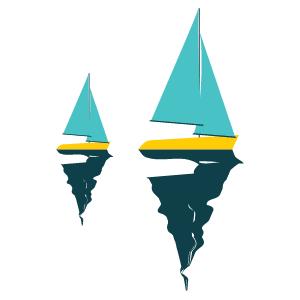
Background and rationale
For coastal regions and communities around Europe, tourism is a highly important economic activity that provides substantial employment. Coastal and maritime tourism represents about half of all tourism globally and is the largest sector of the EU Blue Economy in terms of GVA and employment. The sector was affected hard by the covid pandemic and is still recovering, with a GVA of €49.9bn generated by the sector in 2021, representing a 74% increase from 2020, but still a 38% contraction of pre-pandemic levels. In 2021 the sector employed 1.9m people in the EU (2.8 million in 2019) (EU Blue Economy Report 2024). The sector is highly dependent on the quality of marine and coastal environments but can also impact directly on those environments. Many of its activities also depend on coastal infrastructures, including for example small harbours and marinas, that provide an interface between the land and the sea but are in themselves exposed to risks from climate change and extreme weather impacts. Moreover, the social infrastructure of coastal communities is challenged by the seasonality of the tourism sector, and there is a need for greater economic diversification and improved digital infrastructure to encourage new economic activities in coastal communities.
There are significant challenges and opportunities for coastal and marine tourism to achieve a transition from its currently unsustainable model and to manage exposure to environmental, economic and social risks. The aim of this IA is to support interdisciplinary research across natural sciences, social sciences, humanities, and technology, as well as innovation to enable a just and efficient transition to low-impact, regenerative and sustainable tourism and coastal business that increases also the resilience of the communities in which these businesses are embedded. While focusing on coastal and maritime tourism, the knowledge generated under this Intervention Area could also apply to challenges that are common to other coastal businesses.
Key thematic areas
1. Low-impact, regenerative coastal tourism and business
An increasing global population and middle class with access to disposable income, has led to a rise in tourism and the numbers of people travelling for recreational purposes. The covid pandemic, however, caused a major disruption to international tourism and impacted tourism business globally, including 75 million job losses and a tourism-induced GDP reduction of more than €2 trillion. As the sector recovers from the impacts of the pandemic, there are substantial opportunities for change and adaptation towards a more sustainable business model. Research in this area is needed to guide policy and planning to support a just and efficient transition towards low-impact, regenerative tourism.
- Identify opportunities for viable tourism products that help to reduce negative environmental impact, manage and restore local environments, and revitalise local and traditional culture and heritage.
- Analysis of the energy usage and needs across marine and coastal tourism and strategies for reducing sectoral energy use and green-house gas emissions, transitioning to renewable energy, including electrification of recreational vessels and ground transportation.
- Shifting tourist attitudes and behaviours to enable a transition to a lower impact, regenerative business models, reducing pollution, water and energy usage.
- Understand willingness to pay for environmental measures to inform financial models and transition strategies to low-impact tourism.
- Identify opportunities for citizen science as a tool to deliver co-benefits in terms of ocean literacy, environmental protection/restoration, and an activity that can form part of a viable business product.
- Development of innovative digital products and services that inform decision-making and creation of new products for tourism operators.
2. Resilient coastal tourism and diversification of business
Coastal tourism businesses operate in a continually evolving socio-economic context where seasonality, limited access to labour and tight profit margins are commonplace. These businesses are also highly dependent on the quality of the marine and coastal environment and are on the front line of climate and weather impacts. The threats they face are reflected more broadly by the threats to the coastal communities they support. An improved understanding of these pressures can inform more effective policies, planning and product development, as well as strategies to foster resilience in coastal communities and businesses and support diversification of coastal and marine-based enterprises.
Activities should address the following aspects:
- Research to understand the impacts posed to coastal business and communities by climate change (ocean warming, sea-level rise, biodiversity loss, etc.) and extreme weather events.
- Strategies for strengthening ecosystem resilience in face of change coastal businesses against climatic, geological and anthropogenic hazards and social and economic risk factors.
- Social innovation to enable diversification and eco-sustainability of coastal and marine-based enterprises and mechanisms to sustain such businesses.
- Assess the impacts of diverse coastal activities on marine and coastal environments and co-dependencies between tourism and marine ecosystem health and biodiversity.
- Understand the relationships and interdependencies between marine and coastal tourism and the communities in which they operate, including challenges linked to social/community unrest generated by mass tourism.
- Improved understanding of financing instruments and incentves for innnovation that support new and sustainable job creation in the greeen-blue economy coastal communities.
- Improved understanding of the impact of ‘social’ infrastructure (education, health, welfare) on the relocation of more diversified businesses to coastal areas.
- Improve understanding of the social and cultural costs and benefits of sustainable coastal and marine tourism and the cultural context for fostering a sustainable.
3. Resilient coastal infrastructures and nature-based solutions
Coastal tourism relies in large part on built infrastructures such as small harbours, piers and marinas, that enable access for operators and tourists to the marine environment. These infrastructures are by nature of their location, highly exposed to the impacts of climate change (e.g. sea-level rise), geological hazards, coastal erosion and extreme weather events. Understanding the risk to existing infrastructures and advancing innovative approaches to design and adaptation of coastal structures is a key component underpinning sectoral resilience. A transition towards nature-based solutions is an important opportunity to reduce the carbon footprint of activities linked to tourism. Nature based solutions can promote the development of sustainable blue tourism in coastal areas, including strategies to combat coastal erosion, control the spread of harmful alien species, and ensure the quality of bathing waters.
Activities should address the following aspects:
- Research on impacts on coastal infrastructures due to climate change and extreme weather events.
- Nature-based solutions to protect /re-design coastal structures, improve environmental quality and safety and mitigate potential impacts on coastal communities and businesses.
- Integrating NBS and technologies in coastal infrastructures that can improve and monitor environmental conditions and support long-term data on amelioration of coastal conditions and environmental change.
- Effective Investment in and conservation of natural assets that benefit both costal tourism and ecosystem services / Nature-based Solutions (e.g. through carbon storage, flood protection) focused on habitat regeneration and blue carbon.
- Analysis of public policies around water provisions, desalinisation and marine based infrastructures management to set the path for future interventions.
- Enabling diversification by working with existing and emerging maritime sectors to provide tourism opportunities linked to eco-tourism, offshore energy, aquaculture operations, fisheries and ports.
- Improved knowledge about the diversity of demands per region in terms of infrastructures (stable or mobile ones) to inform policies on coastal development and local economic activities.
- Research on the impact (positive or negative) of subsidies/allowance on different economic activities in context of their long term sustainability.
- Improved comparative knowledge on legal frameworks across different European regions to support coastal activities in the the most effiecient and sustainable way.
Implementation, enablers, and synergies
Technology, data and digitalisation can enable solutions for coastal and marine tourism to transition to a more sustainable, regenerative business model, create new tourism offerings and opportunities, including for upskilling. In a European context, marine environmental data portals such as EMODNet provide users with access to a major source of information that can be used to improve decision-making and product development. Data and technological innovation are also critical enablers to inform the design and maintenance of coastal infrastructures. Moreover, technology paired with a better and comparative understanding of socio and cultural factors can contribute to frame appropriately the potentials of different regions in terms diversification of economic activities, infrastructures, labour markets, and legal and financial support for innovation.
Cash calls for R&I proposals are relevant for addressing knowledge gaps, develop solutions, and build R&I capacity around the topic of this Intervention Area. Synergies will be sought with the Mission Restore our Ocean and Waters and European Partnerships such as Social Transformations and Resilience, Resilient Cultural Heritage, and Driving Urban Transitions.
Outcomes and Impacts
- Knowledge and guidance for public authorities and development agencies (national, local), to inform policy and planning to enable a just and efficient transition for coastal and marine activities to a sustainable and regenerative business model.
- Greater understanding for key stakeholders (coastal businesses, community leaders, local authorities, etc.) of the risks posed by climate change impacts, extreme weather and geological hazards.
- Greater understanding of the social and cultural context underpinning coastal tourism and strategies to ensure that transition to a new sustainable business model safeguard the tangible and intangible cultural heritage of local communities.
- Strategies to foster greater resilience for coastal business and communities in the face of climate change, extreme weather events, geological hazards, and social and economic impacts to inform all stakeholders from individual businesses to national policy and planning authorities.
- Mitigation of environmental impacts of coastal and marine tourism in Europe, linked to reduced pollution, GHG emissions and energy usage, water usage, and impact on local marine and coastal environments.
- Improved strategies and policies for delivering positive change in tourist behaviours and attitudes towards reducing deleterious environmental, social and cultural impacts from their touristic activities. Supporting an interest/willingness to participate in regenerative activities such as nature restoration and citizen science.
- Greater deployment of innovative technologies (e.g. low-cost sensors, application for citizen science approaches), and use of data and digital products (e.g. publicly available data by tourist operators) to inform low-impact tourism activities and products.
Intervention Area: Resilient Coastal Communities and Businesses
Intervention Area: Resilient Coastal Communities and Businesses
This Intervention Area tackles the risks and opportunities for coastal communities, businesses, and infrastructures in the context of climate change and marine environmental degradation, addressing coastal and maritime tourism as well as the conditions for coastal social-ecological systems to deliver ecosystem-services for nature and people. The aim is to support interdisciplinary R&I to enable a just and efficient transition to low-impact, sustainable tourism, fostering resilience and delivering new economic opportunities and thriving coastal communities (non-cargo/industrial ports).

Background and rationale
For coastal regions and communities around Europe, tourism is a highly important economic activity that provides substantial employment. Coastal and maritime tourism represents about half of all tourism global and is the largest sector of the EU Blue Economy. In 2019 (the last year prior to covid for which there is data) coastal tourism employed 2.8m people in the EU, generating a GVA of €81.5bn (EU Blue Economy Report, 2023). The sector is highly dependent on the quality of marine and coastal environments but can also impact directly on those environments. Many of its activities also depend on coastal infrastructures, including for example small harbours and marinas, that provide an interface between the land and the sea but are in themselves exposed to risks from climate change and extreme weather impacts.
There are significant challenges and opportunities for coastal and marine tourism to achieve a transition from its currently unsustainable model and to manage exposure to environmental, economic and social risks. The aim of this IA is to support interdisciplinary research across natural sciences, social sciences, humanities, and technology, as well as innovation to enable a just and efficient transition to low-impact, regenerative and sustainable tourism and coastal business, that increases also the resilience of the communities in which these businesses are embedded.
Key thematic areas
Low-impact, regenerative coastal tourism
An increasing global population and middle class with access to disposable income, has led to a rise in tourism and the numbers of people travelling for recreational purposes. The covid pandemic, however, caused a major disruption to international tourism and impacted tourism business globally, including 75 million job losses and a tourism-induced GDP reduction of more than €2 trillion. As the sector recovers from the impacts of the pandemic, there are substantial opportunities for change and adaptation towards a more sustainable business model. Research in this area is needed to guide policy and planning to support a just and efficient transition towards low-impact, regenerative tourism.
- Identify opportunities for viable tourism products/services that help to reduce negative environmental impact, manage and restore local environments, and revitalise local and traditional culture and heritage.
- Analysis of the energy usage and needs across marine and coastal tourism and strategies for reducing sectoral energy use and green-house gas emissions, transitioning to renewable energy including electrification of recreational vessels and ground transportation.
- Shifting the attitudes and behaviours of tourists to enable a transition to a lower impact, regenerative business models, reducing pollution, water and energy usage.
- Understand willingness to pay for environmental measures to inform financial models and transition strategies to low-impact tourism.
- Identify opportunities for citizen science as a tool to deliver co-benefits in terms of ocean literacy, environmental protection/restoration, and an activity that can form part of a viable business product.
- Development of innovative digital products and services that inform decision-making and creation of new products for tourism operators.
Resilient coastal businesses
Small scale coastal businesses operate in a continually evolving socio-economic context where seasonality, limited access to labour and tight profit margins are commonplace. These businesses are also highly dependent on the quality of the marine and coastal environment and are in the front line of climate and weather impacts. Multiple use of the same area could also represent a conflict. An improved understanding of these pressures can inform more effective policies, planning and product development, as well as strategies to foster resilience in coastal communities and businesses and support diversification of coastal and marine-based enterprises.
Activities should address the following aspects:
- Research to understand risks posed to coastal business and communities by climate change impacts (ocean warming, sea-level rise, biodiversity loss, etc.) and extreme weather events.
- Research to understand the risks posted to coastal business by political and social changes
- Strategies for strengthening resilience and preparedness of coastal businesses against climatic, geological and anthropogenic hazards and social and economic risk factors.
- Social innovation to enable diversification of coastal and marine-based enterprises. Social innovation is currently hardly funded by European or National funds and research on mecahnisms to sustain such business is needed .
- Assess the impacts of diverse coastal activities (including small ports and marinas), on marine and coastal environments and co-dependencies between tourism and coastal and marine ecosystem health.
- Research to better understand the relationships and interdependencies between marine and coastal tourism and the communities in which they operate, including challenges linked to social/community unrest generated by mass tourism.
- Improved understanding of financing instruments and incentves for innnovation that support job creation in coastal communities.
- Improve understanding of the social and cultural costs and benefits of coastal and marine tourism and the cultural context for fostering a sustainable and just transition to low-impact, regenerative tourism.
Resilient coastal infrastructures and nature-based solutions
Coastal tourism relies in large part on built infrastructures such as small harbours, piers and marinas, that enable access for operators and tourists to the marine environment. These infrastructures are by nature of their location, highly exposed to the impacts of climate change (e.g. sea-level rise), geological hazards, coastal erosion and extreme weather events. Understanding the risk to existing infrastructures and advancing innovative approaches to design and adaptation of coastal structures is a key component underpinning sectoral resilience. A transition towards Nature-based Solutions (NbS) (see definition see 2020-020-En.pdf) is an important opportunity to reduce the carbon footprint of activities linked to tourism. NbS can promote the development of sustainable blue tourism in coastal areas, including strategies to combat coastal erosion, control the spread of harmful alien species, and potentially ensure the quality of bathing waters.
- Analysis of risks posed to coastal infrastructures by climate change and extreme weather events and strategies to protect /re-design built structures and mitigate against risks that potential damages to such structures may poses to safety and security of coastal communities and businesses.
- Advance opportunities to embed technologies in coastal infrastructures that can monitor environmental conditions, deliver early warning of risks/hazards and support long-term data on coastal conditions and environmental change.
- Effective Investment in and conservation of natural assets that benefit both costal tourism and ecosystem services / Nature-based Solutions (e.g. through carbon storage, flood protection). e.g. mangroves, coral reefs.
- Enabling diversification by working with existing and emerging maritime sectors to provide tourism opportunities linked to offshore energy, aquaculture operations, fisheries and ports.
- Investigate, promote and showcase the coexistence of coastal and maritime tourism and marine protected areas.
- In certain areas, infrastructures to support tourism or other economic activities may be seasonal and other permanent. Research in the diversity of the demand per region of the necessary infrastructures (stable or mobile ones) and feedback to policy makers in approaching coastal development for local economic activities.
- Research on the impact (positive or negative) of subsidies/allowance on different economic activities is key for the long term sustainability of such activities
- Research on comparative legal frameworks across different European regions to support coastal activities concerning a the most effiecient and sustainable way.
Implementation, enablers, and synergies
Interdisciplinary approaches including technology, data, digitalisation, social science and humanities can provide solutions to enable coastal and marine tourism, not only to transition to a more sustainable, regenerative business model, but to create new tourism offerings and opportunities. In a European context, marine environmental data portals such as EMODNet provide users with access to a major source of information that can be used to improve decision-making and product development. Data and technological innovation are also critical enablers to inform the design and maintenance of coastal infrastructures.
However, technology will need to be paired with a better and comparative understanding of socio and cultural factors to frame appropriately the potentials of different regions both in terms of different economic activities as well as infrastructures, labour markets and legal and financial support for innovation. The impact of major societal changes like migration flows and legal framework, as well as political tensions have a major role on the capacity to look at the coastal resources and maximise their development with small impact on the environment. Such research needs to be integrated into the overall research strategy.
Research on mapping accurately specific public policies around water provisions, desalinisation and marine based infrastructures management would also be crucial to set the path for future interventions.
Outcomes and impacts
- Knowledge and guidance for public authorities and development agencies (national, local), to inform policy and planning to enable a just and efficient transition for coastal and marine tourism to a sustainable and regenerative business model.
- Greater understanding for key stakeholders (coastal businesses, community leaders, local authorities, etc.) of the risks posed by climate change impacts, extreme weather and geological hazards.
- Greater understanding of the social and cultural context underpinning coastal tourism and strategies to ensure that transition to a new sustainable business model safeguard the tangible and intangible cultural heritage of local communities. In particular, the impact of marine archaeology research for local infrastructures and developing scientific hubs for advanced research.
- Strategies to foster greater resilience for coastal business and communities in the face of climate change, extreme weather events, geological hazards, and social and economic impacts to inform all stakeholders from individual businesses to national policy and planning authorities (including social phenomena on local business, such as migration flows on local labour markets or refugee management on health care demand).
- Measurable reduction in the negative environmental impacts of coastal and marine tourism in Europe, linked to reduced pollution, GHG emissions and energy usage, water usage, and impact on local marine and coastal environments
- Improved strategies and policies for delivering positive change in the behaviours and attitudes of tourists towards reducing deleterious environmental, social and cultural impacts arising from their own touristic activities and supporting an interest/willingness to participate in regenerative activities such as nature restoration and citizen science.
- Greater deployment of innovative technologies, and use of data and digital products to inform low-impact tourism activities and products.
IOPAN - Partner
IPCB-CNR - Partner
IRTA - Coordinator
ISA-UL - Partner
ISC - Partner
ISSNOVA - Partner
ITB - Partner
ITU - Partner
IU-DEBIEN - Partner
JU - Partner
Kickoff meeting highlights
Koc - Partner
Kongsberg - Partner
KTH - Coordinator
KTU - Partner
L-Universita ta Malta, UM, Malta
LA - Coordinator
Latvian Council of Science - LZP
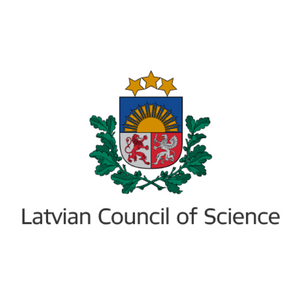
LU - Partner
Lulea Tekniska Universitet, LTU, Sweden
Lund University, ULUND, Sweden
MAA - Monitoraggio e Analisi Ambientali
Core facility for Environmental Monitoring & Analysis
Francesca Margiotta Francesca.margiotta@szn.it
Marine Institute
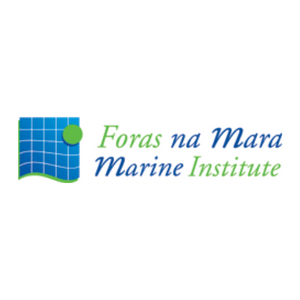
Marine Stations Helgoland Sylt
Angelika Dummermuth angelika.dummermuth@awi.de
MASAF - Self-Funded Partner
Matís - Partner
Matís ltd., Matís ltd., Iceland
MC - Partner
MCAST - Partner
MESOCOSMI CRIMAC
CRIMAC – Calabria Marine Centre
Functional Area: “Coastal and deep environments monitoring - Mesocosms”
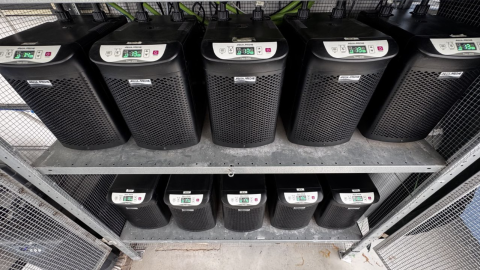
Teresa Romeo Teresa.romeo@szn.it
MI - Partner
MIC - Partner
Microalgal biomass valorization for sustainable production of functional food and feed ingredients
The main aim of this proposal is the development of innovative and efficient microalgal cultivation and biomass extraction processes, in order to improve the environmental sustainability of the production of value-added compounds, with particular interest in the development of food supplements and feed for aquaculture. The project will explore a cascade approach to efficiently and selectively extract bioactive lipids from selected microalgal species, focusing on innovative extraction procedures to reduce the environmental impact of toxic solvents. Major attention will be paid to the production of monoacylglycerols (MAGs), bioactive molecules with anti-inflammatory and cancer-prevention activity, but still poorly developed as potential nutraceuticals. The beneficial effects and safety of these compounds will be assessed through in vitro and in vivo assays. These molecules could contribute to increasing the pool of novel marine-derived metabolites providing health benefits as dietary/food supplements, offering valid alternatives to animal-derived food, such as fish oil. The side-stream delipidified microalgae biomass containing mainly proteins and carbohydrates will be exploited for the production of feed for aquaculture. The remaining mass can provide biofertiliser for agriculture, pointing at creating a zero-waste bio-refinery model.
To address the scalability issues inherent in traditional production systems for microalgae cultivation, we will employ Photobioreactor-As (PBR-A) technology, an innovative modular design that allows end users, such as nutraceutical companies and animal feed manufacturers, to deploy PBR-As onsite, ensuring a reliable supply of algae biomass tailored to specific commercial needs. Overall the project will provide new knowledge for efficient cultivation and extraction processes to improve the environmental sustainability of valuable compounds production from microalgal biomass for food supplement and aquaculture feed, in line with the objectives of the Green Deal and the Sustainable Development Goals.
Coordinator: Stazione Zoologica Anton Dohrn, SZN, Italy
Partners:
- Université du Mans, UM, France
- University of Almería, UAL, Spain
- University College Dublin, National University of Ireland, NUID UCD, Ireland
- UiT the Arctic University of Norway, UiT, Norway
- NB PHARMATOX, France
- Instituto Politécnico de Viana do Castelo, IPVC, Portugal
- Algamol Ltd., Cyprus
Ministry of Economic Affairs and Climate Policy
Bezuidenhoutseweg 73, 2594 AC, The Hague
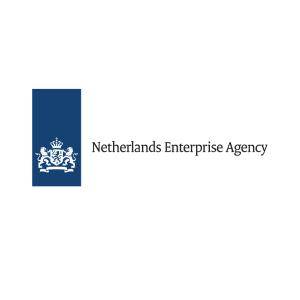
Ministry of Infrastructure and Water Management
Rijnstraat 8, 2515 XP Den Haag, Netherlands
Ministry of Infrastructure and Water Management
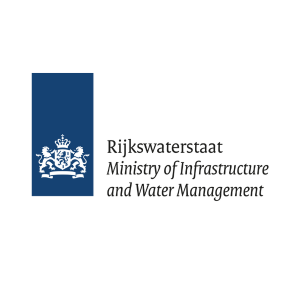
Montenegro - Ministry of Education, Science and Innovation - MESI
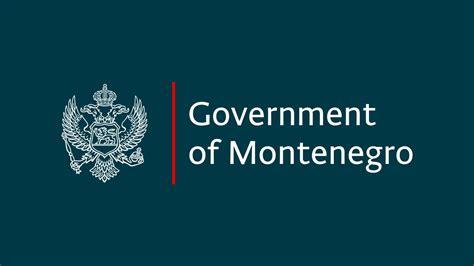
MOTax
Marine Organism Taxonomy
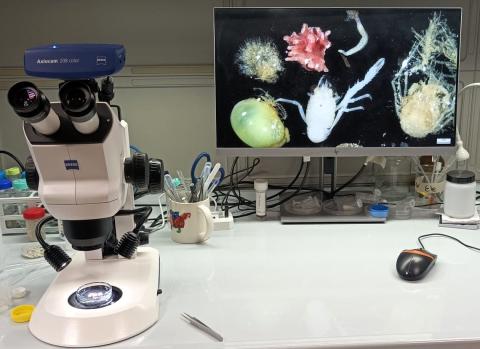
Diana Sarno Diana.sarno@szn.it
MSP tools for integrating Multiple sustainability objectives under expansion of Offshore Renewable Energy
MSP4MORE responds to the urgent challenge of maritime spatial planning (MSP) to enhance offshore renewable energy production while balancing this goal with parallel policy targets. These include expanding marine protected areas (MPAs), promoting ecosystem restoration and minimising competition for space with other sea uses. Currently, efforts to achieve these multiple policy objectives often lack coordination. There is a clear need to consider their trade-offs, associated risks for sustainable development, and potential synergies.
The project aims to optimise the design and location of offshore wind farms (OWFs) to align with diverse policy goals across the Baltic, North, Mediterranean, and Barents Seas. Through integrative research in seven study areas and by leveraging findings from various ongoing initiatives, MSP4MORE fosters innovation through collaborative efforts with stakeholders from government, industry, academia, and civil society. To support sustainable OWF planning and decision-making, the project explores how OWF can provide added value through nature-inclusive designs and multi-use applications. It also examines socio-cultural factors that influence OWF implementation and acceptance and advances tools to assess the cumulative effects of various OWF different designs and levels of expansion at the sea basin scale.
Integrated into its research plan, the project develops stakeholder-inclusive knowledge, tools and approaches for optimising planning solutions. The goal is to enable the sustainable co-existence of various sea uses through identifying and dealing with trade-offs and enhancing synergies, based on effects on net impacts on species, habitats and a range of ecosystem services, while also considering the implications of climate change. Strategies for minimising negative impacts and enhancing positive outcomes are emphasised, guided by the principle of "mitigating the bad, promoting the good".
MSP4MORE will synthesise findings into best practices and practical decision support for local, national, and regional MSP challenges related to OWF expansion. These outcomes will advance the efficiency of MSP in reaching targets for renewable energy and support EU policies on nature conservation and restoration, aligning with the EU Biodiversity Strategy, the Habitats and Birds Directives, Marine Strategy Framework Directive, and Nature Restoration Law, and the goals of the EU Blue Growth strategy, ultimately promoting goals for climate mitigation and biodiversity.
Coordinator: Swedish University of Agricultural Sciences, SLU, Sweden
Partners:
- University of Tartu, UTartu, Estonia
- Suomen ymparistokeskus (“Finnish Environment Institute”), Syke, Finland
- Panteion University of Social and Political Sciences, PUNIV, Greece
- Hellenic Centre Marine Research, HCMR, Greece
- Institute of Marine Research, IMR, Norway
- Institut Royal des Sciences Naturelles de Belgique, RBINS, Belgium
- University of Antwerp, UAntwerpen, Belgium
- Institute of Food Safety, Animal Health and Environment "BIOR", BIOR, Latvia
- EIGEN VERMOGEN VAN HET INSTITUUT VOOR LANDBOUW- EN VISSERIJONDERZOEK, EV ILVO, Belgium
N/R Laura Bassi
Franco Coren fcoren@ogs.it
Michela Dal Cin mdalcin@ogs.it
National Research Council

NERSC - Coordinator
News & Events
News & Events
Stay up to date with the latest news, events, and success stories in building a resilient blue economy for a better future.
Featured article
The Partnership Launches Rolling Transnational Access Call to Research Infrastructures
The Sustainable Blue Economy Partnership has officially launched its Rolling TA Call to Marine and Maritime Research Infrastructures.
Open from 20 February 2026 to 29 February 2028, the Call enables access to approximately 50 RIs across Europe, including research vessels, fixed platforms, mobile systems, analytical labs, and high-performance computing facilities.
Projects are evaluated every four months by an International Evaluation Panel and may run up to 18 months.
This Call represents a strategic action to enhance transnational collaboration, foster innovation, and strengthen the science-policy interface in support of a sustainable and climate-neutral blue economy.
• Submission platform here
• First cut-off: 20 June 2026 – 17h00
Visit the call page for more information ->
Learn more ➝
Stay updated
News
Blue Synergies in Action: Sustainable Blue Economy and Waterborne Launch Joint Dialogue
On 8 April 2025, the Sustainable Blue Economy Partnership, jointly with the Waterborne Technology Platform coordinating the Zero-Emission Waterborne Transport partnership and in collaboration with the EU Mission "Restore our Oceans and Waters", brought together leading experts, EU projects, and stakeholders from across Europe for a technical workshop on ports, marinas, logistics, and sustainable fisheries.
Learn more ➝
Exploring market opportunities in the blue economy: Sustainable Blue Economy Partnership co-funded projects at BlueInvest Day 2025
In March 2025, two projects co-funded by the Sustainable Blue Economy Partnership participated in BlueInvest Day, a flagship event organised by the European Commission during the European Ocean Days to showcase champions of innovation, investment, and sustainability in the blue economy, bringing together entrepreneurs, investors, and innovators.
Natalia Mæhle, coordinator of the AQUABALANCE project, balancing economic, environmental, and social sustainability in the European aquaculture industry, and Ruth Higgins from ARCFISH, the Digital Twin of the Ocean for Arctic Fisheries, joined the event in Brussels to explore commercialisation pathways, networking opportunities, and innovation in the blue economy. They share their experiences and key takeaways from the event.
Learn more ➝
Sustainable Blue Economy Partnership’s Projects Now Endorsed as UN Ocean Decade Actions
Fourteen research and innovation projects co-funded under the Sustainable Blue Economy Partnership's first joint transnational call are now officially recognised by the UN Decade of Ocean Science for Sustainable Development 2021-2030 (‘Ocean Decade’) as UN Ocean Decade Actions. This acknowledgement underscores their contribution to global efforts towards a climate-neutral, sustainable, resilient, and competitive blue economy.
Learn more ➝
At the nodal point: regional sea basin representatives meet in Brussels
On Monday, 3 March 2025, the Sustainable Blue Economy Partnership's regional sea basin nodes gathered for a meeting in Brussels. Hosted at the Tuscany Region liaison office in collaboration with Tour4EU, the meeting brought together partners, nodes and stakeholders to assess progress, refine strategies, and strengthen regional cooperation in advancing a sustainable blue economy across Europe’s maritime basins.
Learn more ➝
Past events
Following the 2026 Symposium in Bucharest, the Sustainable Blue Economy Partnership will host a Foresight Workshop for a limited number of guests. The workshop aims to provide strategic direction for updating the Partnership's Strategic Research Innovation Agenda (SRIA) in key policy priorities and research domains.
More info ➝
The Sustainable Blue Economy Partnership, a European partnership under the European Commission’s Research & Innovation Framework Programme Horizon Europe, is pleased to announce the launch of its third Joint Transnational Call. This third call is co-branded by the UN Decade of Ocean Science for Sustainable Development as a means of stimulating new initiatives in co-designed and co-delivered knowledge and solutions for a sustainable ocean economy.
An information webinar for potential applicants was held to answer any questions regarding the call. You can re-watch it here or download the presentation.
More info ➝
The Sustainable Blue Economy Partnership (SBEP) has launched in 2025 its first Thematic Portfolio Call for Interest, aiming to connect ongoing funded projects (whether financed by SBEP or other national, regional or European mechanisms) to create and boost networking activities. The Portfolios will be running for a 2-year period, from 2026 to 2028, and focus on two topics: innovations and digitalisation for low-impact sustainable small-scale fisheries management in EU sea-basins, and innovations for boosting sustainability in marine algae cultivations and circularity in the blue bioeconomy.
An information webinar for potential applicants was held to answer any questions regarding the call. You can re-watch it here or download the presentation.
More info ➝
NIBIO - Coordinator
NMBU - Coordinator
NMBU - Partner
Nofima - Coordinator
NORCE - Coordinator
NORCE - Partner
Notpla Ltd. - Self-Funded Partner
Novel functional textiles from red and brown seaweed
Today's global textile and garment industry is characterized by overproduction and little reuse in so-called "fast fashion", accompanied by an increased use of synthetic materials that are non-renewable and contribute to 35% of microplastics pollution in the Oceans, along with toxic and non-degradable dyes. Biobased textiles are today produced from land-based resources which require large amounts of arable land and fresh water resources, and we must now look to the marine environments for more sustainable feedstocks. Macroalgae are fast growing low-trophic organisms found all around the world in wild populations and represent the world's largest aquaculture industry (>35 million tons/year). The European seaweed industries, however, make up only 0.8% of the global production and is predominantly from wild harvest, and seaweed cultivation has a large potential for growth. Due to the fast growth, versatile applications, and important ecosystem services of farmed and wild seaweed, expansion of this industry can be a significant contributor to meeting global sustainability targets.
The SeaWeave project will establish new knowledge and develop technologies for the conversion of macroalgae from the Atlantic Ocean and Mediterranean Sea into textile fibers and dyes. The project consortium consists of seven partners from six countries in a highly cross-disciplinary collaboration to develop technology and solve societal challenges along the entire value chain from raw material to products.
SeaWeave will focus on cultivated biomass and other sustainable seaweed feedstocks, and study how the biomass composition and structure is related to its properties for textile applications. We will develop pre-treatment and biorefinery processes to extract and maintain polysaccharides and pigments in an integrated and circular process. Innovative fibers will be developed through functionalization and innovative combination of materials and manufacturing methods, providing functional textiles that can be scaled in an environmentally and economically feasible manner. New fabric prototypes will be developed toward the fashion and furniture industries, as well as functionalized fibers. Lastly, the project will perform environmental and social assessments along the value chain, to understand the short- and long-term impacts of the developed technology and products, in close collaboration with stakeholders.
Coordinator: Kungliga Tekniska Hoegskolan, KTH, Sweden
Partners:
- Aalborg Universitet, AAU, Denmark
- University of Foggia, UNIFG, Italy
- SINTEF AS, SINTEF, Norway
- RISE Research Institutes of Sweden AB, RISE, Sweden
Self-funded partners:
- Zeefier, zeefier, Netherlands
- PYRATES Smart Fabrics SL, PYRATEX®, Spain
NTNU - Coordinator
Ocean Bottom Magnetometers
Domenico Di Mauro domenico.dimauro@ingv.it
Ocean Bottom Seismometers/hydrophones
Gioacchino Fertitta gioacchino.fertitta@ingv.it
Antonio Costanza antonio.costanza@ingv.it
Ocean literacy
The Sustainable Blue Economy Partnership promotes Ocean Literacy with a multi-faceted, cross-cutting approach that includes, among others, an Ocean Literacy Toolkit, podcasts and short videos, webinars and training for co-funded projects, and targeted efforts to engage ocean businesses. Through these activities, the Partnership aims to encourage the behavioural and attitudinal changes needed to drive the sustainable transformation of Europe’s blue economy. Consequently, it seeks to generate interest in sustainable maritime innovations, career options, investment opportunities, and generally the quest of reconciling economic development with marine ecological integrity. Throughout these efforts, industry actors are targeted to help embed the corporate environmental responsibility needed to affect the transition; the thematic foci are guided by the Intervention Areas and align with the EU4Ocean Coalition.
The Ocean Literacy Toolkit is fully accessible and downloadable below. It is intended both for co-funded projects and the stakeholder community at large, and will be updated regularly to account for the latest developments.

You can also access the Toolkit here.
Ocean Science Centre Mindelo (OSCM)
OSCM is operated by GEOMAR in collaboration with a local partner in Cape Verde, with strong connections with the European research community.
Björn Fiedler bfiedler@geomar.de
Anja Wenzel awenzel@geomar.de
OE - Partner
OGS - Partner
OGS Seneca Aircraft
LiDAR, IMU, Camera, Hyperspectral & Thermal, Gas Analyzer, Strapdown Gravity, Magnetometer
Fausto Ferraccioli fferraccioli@ogs.it
Paolo Paganini ppaganini@ogs.it
OTN - Self-Funded Partner
Paleomag. Lab
Laboratory of Paleomagnetism
Aldo Winkler Aldo.winkler@ingv.it
Panarea NatLab (Biogeochemical Lab, ROV and acoustic data acquisition)
Cinzia De Vittor cdevittor@ogs.it
Valentina Volpi vvolpi@ogs.it
Valentina Esposito vesposito@ogs.it
Partnership decides on first batch of co-funded projects
Partnership kicks off in Rome
Partnership launches second joint transnational call
Partnership Symposium: on course towards a sustainable blue economy
Paving the way for the blue transformation
PEGASO
Multidisciplinary shallow water seabed observatory
Gianluca Lazzaro Gianluca.lazzaro@ingv.it
Philia
George Petihakis gpetihakis@hcmr.gr
PORTO-MUIÑOS - Partner
Poseidon
George Petihakis gpetihakis@hcmr.gr
POSEIDON, calibration lab
George Petihakis gpetihakis@hcmr.gr
POSEIDON, FerryBox system
George Petihakis gpetihakis@hcmr.gr
POSEIDON, Fixed Platforms - PYLOS, E1-M3A, HCB
George Petihakis gpetihakis@hcmr.gr
POSEIDON, mobile platforms - gliders
George Petihakis gpetihakis@hcmr.gr
Projects
Projects
The Partnership is hosting a total of 43 research and innovation projects from its first (2023) and second (2024) Joint Transnational Calls, with a third call now in progress. All ongoing projects can be found by scrolling down. You can also navigate through the brochures:
Filter by category
Stay updated
PVL - Partner
Regional Fund for Science and Technology
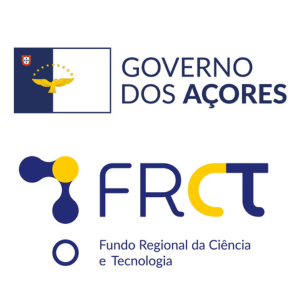
Registration "Charting the course towards a Sustainable Blue Economy" Symposium
Registration "Charting the Course towards a Sustainable Blue Economy" Symposium
Date: 13-14 February 2024
Location: Royal Museum of Fine Arts Belgium (Rue du Musée 5, 1000 Brussels)
By filling in this form, you consent to having your data shared with the Sustainable Blue Economy Partnership. Your information will only be used internally by the Partnership. For more information, see the Partnership's Terms of Use and Privacy Policy.
You have the right to withdraw your consent at any given time, although this will not affect the lawfulness of processing based on your given consent prior withdrawal. You have a legal right to request access, correction and deletion of your personal information (this includes photo and video). You also have the right to restrict the processing of your personal information.
Photography and social media coverage will be taking place during the event. By filling out the form, you agree footage or images of you, taken in the natural course of proceedings, will be published in the context of the event.
In case you have any questions or requirements on the topic of GDPR and data processing and image usage, please contact info@bluepartnership.eu.
Registration - Kick-off meeting of funded projects (2023 Joint Call)
Registration - Kick-off meeting of funded projects (2023 Joint Call)
Date: 25-26 September 2024
Location: Madrid, Spain (address: Agencia Estatal de Investigación - Salón de Actos (ground floor) - AEI, Calle Torrelaguna 58 bis, 28027 Madrid, Spain)
By filling in this form, you consent to having your data shared with the Sustainable Blue Economy Partnership. Your information will only be used internally by the Partnership. For more information, see the Partnership's Terms of Use and Privacy Policy. You have the right to withdraw your consent at any given time, although this will not affect the lawfulness of processing based on your given consent prior withdrawal. You have a legal right to request access, correction and deletion of your personal information (this includes photo and video). You also have the right to restrict the processing of your personal information.
Photography and social media coverage will be taking place during the event. By filling out the form, you agree footage or images of you, taken in the natural course of proceedings, will be published in the context of the event. In case you have any questions or requirements on the topic of GDPR and data processing and image usage, please contact info@bluepartnership.eu.
For more information about the kick-off, consult the dedicated event page here.
Research Council Faroe Islands
Bryggjubakki 12, P.O.Box 259, FO-110 Tórshavn
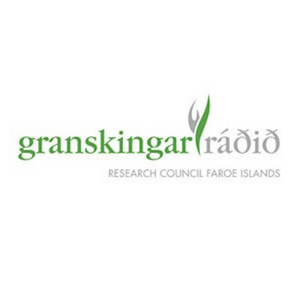
Research Council of Norway
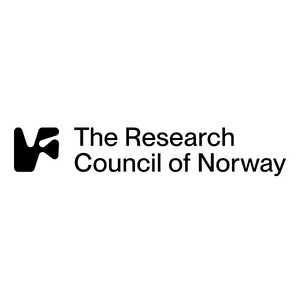
Research Ireland
Emma McGrath
Maria Nash

Resource efficient blue food production from small underutilized pelagic fish species (RE-BLUE)
Herring (Clupea harengus) and sprat (Sprattus sprattus) are two low trophic level fish species which dominate the fisheries of many Northern/Central European countries. They are, however, massively underutilized in food production. This is increasingly questioned viewed against the current geopolitical situation raising the need of affordable, nutrient dense and locally produced food, and against the ongoing dietary protein shift where consumers seek healthy and sustainable protein sources to replace red meat. Herring and sprat have as low climate footprint as pulses and are rich in high quality proteins, important fatty acids, vitamins and minerals; many of which are missing in red and/or green protein sources. Combining climate impact and nutrient density data, herring/sprat were recently ranked as the most favorable animal protein sources common to the EU.
Based on these incentives, the multi-actor RE-BLUE project will explore new scalable food value chains from the large parts of the herring/sprat catches that either do not enter the food chain (whole fish landed as feed) or leave it (filleting rest raw materials, RRM, also going to feed). Together, these biomass streams make up ca. 60-95% (!) of total herring/sprat catches in the countries of this consortium. Our specific aims are to design, align and combine process-steps which are tailored to tackle the very small size of the “fodder fish”, presence of enzyme-dense organs, high levels of pigments/pro-oxidants/small bones and occasional abundance of dioxins, dioxin-like (DL) PCB´s and PFAS.
An innovative cutting/filleting line which gradually can trim off head, intestines, viscera, and spine even from very small herring/sprat (<55g) forms a project core. Whole fish, fish subjected to different degrees of trimming, or sorted regular RRM will then be used in: (i) mechanical mince production, washing and freezing, (ii) conversion of pre-frozen minces to “falafel” balls/burgers/sausages with and without antioxidant-rich plant RRM or seaweed, (iii) enzymatic hydrolysis into savory ingredients, (iv) fermentation with salt into a fish sauce, (v) direct mixing and extrusion into a “pulled fish product”, with/without plant-based proteins and (vi) acid marination. (i)-(vi) are evaluated with and without pre-dipping of raw materials in new antioxidant solutions. Product prototypes will be characterized in terms of e.g., ash, nutrients, sensorial and volatile compound profiles, color, lipid oxidation, lipolysis, proteolysis, microbial growth and when required, dioxins/PCBs/PFAS. In parallel, fundamental understanding on how enzymatic/non-enzymatic reactions in small pelagic fish respond to different processing variables will be gained. Results can be extended to other European small fish species regarded invasive (e.g., round goby) or underutilized (e.g., sand eels, sardines) and are expected to have major societal impact related to e.g., food preparedness, public health, and national/EU policies.
RISE - Partner
ROV Holland I
Marine Institute

Veronica Cunningham veronica.cunningham@marine.ie
Aodhan Fitzgerald Aodhan.Fitzgerald@marine.ie
Frank Armstrong Frank.Armstrong@marine.ie
RV ATAIR, RV WEGA* or RV DENEB*
*Only one of the two vessels is available each year
Berit Brockmeyer berit.brockmeyer@bsh.de
RV Celtic Explorer
Marine Institute

Veronica Cunningham veronica.cunningham@marine.ie
Aodhan Fitzgerald Aodhan.Fitzgerald@marine.ie
Frank Armstrong Frank.Armstrong@marine.ie
RV Elisabeth Mann Borgese
Regine Labrenz regine.labrenz@io-warnemuende.de
Joanna Waniek joanna.waniek@warnemuende.de
RV Heincke
Ingo Schewe polcoord@awi.de
RV Mare Nigrum
Stefan Florescu stefan.florescu@geoecomar.ro
Mihaela Melinte melinte@geoecomar.ro
RV Tom Crean
Marine Institute

Veronica Cunningham veronica.cunningham@marine.ie
Aodhan Fitzgerald Aodhan.Fitzgerald@marine.ie
Frank Armstrong Frank.Armstrong@marine.ie
RV Uthörn
Michael Klages Michael.Klages@awi.de
S2AQUA - Partner
SAP - Partner
Satellite Direct Receiving Station and High Performing Computing Environment
Adriano Lima adriano.lima@aircentre.org
Scientific Research Fund - FWO
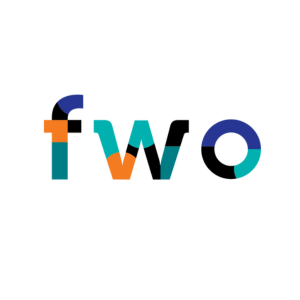
SDU - Partner
SEA - Partner
SES - Partner
SES - Self-Funded Partner
Shota Rustaveli National Science Foundation of Georgia - SRNSFG
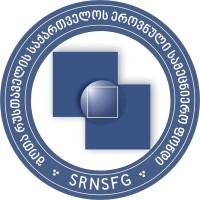
Siemens - Partner
SINTEF - Coordinator
SLU - Partner
smaRt Online Multisensory systEm for microplastic quantificatiOn and water quality assessment
ROMEO is a low-cost and open multi-sensory system that monitors and digitises our aquatic ecosystems to understand their state, ecological health and functioning, with the concept of any sensor, anytime, anywhere. It is made of multisensory system that perceive and reason about underwater abiotic and biotic conditions of our critical natural resources by building a digital aquatic world that understands the considered ecosystem conditions and forecasts their evolutions. The ROMEO multi-sensory system will address knowledge gaps for cross-aquatic basins information exchange. This proposal will establish an aquatic-basins database on several standard environmental parameters, and with novel and innovative online sensors for micro-plastics/diatoms, to act on policies of “Restore our Oceans and Waters” lighthouse initiatives. It will integrate and enrich the Copernicus service with a new monitoring scheme that includes new sensing technologies, allowing anyone to use data: scientists, policymakers, entrepreneurs and citizens. Further, it fully complies with the EU Marine Strategy Framework Directive, for preserving the marine environment, since it represents a sentinel of human activities with a sustainable use of multi-sensor carrier. All the acquired data will be ingested into an open database engine, which will provide a coherent, multivariable and multi-dimensional description of the aquatic environment, biodiversity and populations/resources dynamics, from inland and transitional to coastal water, from marine physics to ice to biogeochemistry, from the surface to deep water, allowing a digital exploration in time and space of the aquatic ecosystems accordingly. The open database and platform will give all stakeholders the power to make informed decisions, backed by science and data, to monitor and implement the conservation strategies and restore the aquatic habitats, support a sustainable blue economy and mitigate and adapt to climate change.
Coordinator: Consiglio Nazionale delle Ricerche, CNR, Italy
Partners:
- Universidade federal fluminense, UFF, Brazil
- BEIA Cercetare, BEIA, Romania
- Istanbul University, Istanbul U, Türkiye
- Management Consortium of Porto Cesareo Marine Protected Area, PCMPA, Italy
- SK EMBIO Diagnostics Ltd, EMBIO, Cyprus
SOCIB Glider fleet
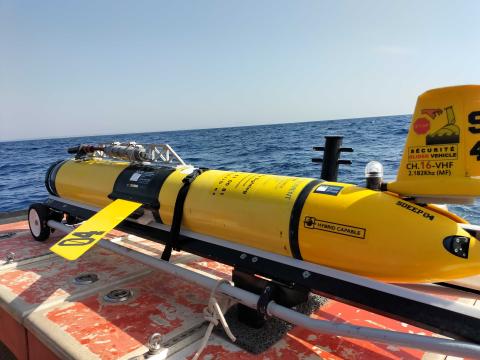
Joaquín Tintoré jtintore@socib.es
Nikolaos Zarokanellos nzarokanellos@socib.es
Sorbonne University - Coordinator
Spanish Foundation for Science and Technology
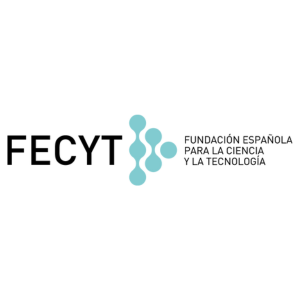
Stazione metereologica con sonde multiparametriche e modem acustici
Augusto Passarelli Augusto.passarelli@szn.it
SUB - Coordinator
Survey - Enhancing human capacity to maximise impact
Survey - Enhancing human capacity to maximise impact
As part of SBEP Task 7.6 “Enhancing human capacity to maximise impact”, we kindly ask you to invest 10 minutes in replying to this survey by 16 August. The survey will give us input on human capacity needs, gaps, and activities. Your input will form the basis for recommendations on how the Partnership can address capacity building through its co-funded calls and other activities.
Survey Stakeholder Mapping
Stakeholder Mapping Survey
The purpose of this stakeholder mapping is to establish a community of practice which will be engaged by the Sustainable Blue Economy Partnership in future exchanges related to the transformation to a sustainable blue economy. With this survey, the Partnership aims at collecting accurate data on relevant stakeholders (domain of activity, sea-basin, sector, social media channels). Please note that by stakeholders we here mean institutions, organisations, businesses, etc. We are not targeting individuals and one reply to the survey per entity is therefore sufficient.
By filling in this survey, you consent to having your data shared with the Sustainable Blue Economy Partnership. Your information will only be used internally by the Partnership. For more information, see the Partnership's Terms of Use and Privacy Policy.
Sustainable Blue Economy Partnership Rolling Transnational Access Call to Research Infrastructures 2026-2028
"ROLLING TRANSNATIONAL ACCESS CALL TO RESEARCH INFRASTRUCTURES"
The Sustainable Blue Economy Partnership has officially launched the Rolling Transnational Access Call to Marine and Maritime Research Infrastructures (RIs). The Call is open from 20 February 2026 to 29 February 2028
Rolling submission with cut-off dates every 4 months.
First cut-off date: 20 June 2026 – 17:00 CEST
This initiative enables pan-European access to approximately 50 Research Infrastructures across the Atlantic Ocean, North Sea, Baltic Sea, Black Sea and Mediterranean Sea.
What is offered?
The Partnership provides access to:
• Research Vessels
• Fixed Platforms & Experimental Stations
• Mobile Platforms (AUVs, gliders, aircraft)
• Analytical Laboratories & Test Benches
• High Performance Computing & Digital Facilities
• Virtual Access to data infrastructures
Access modalities include:
• Physical Access (in person / hands-on)
• Remote Access (operated by RI staff)
• Virtual Access (fully digital environments)
Full RI catalogue and contact points available in Annex A.
Who can apply?
Eligible applicants include:
• Universities & Higher Education Institutions
• Public & Private Research Organisations
• SMEs & Large Enterprises
• NGOs
• Public Authorities
Applicants must demonstrate own funding to conduct the project.
The Partnership covers access costs to RIs but not operational costs of the user team.
Evaluation
Proposals are evaluated by an International Evaluation Panel (IEP) according to three criteria:
• Excellence
• Impact
• Quality and Efficiency of Implementation
Each criterion threshold: 3/5
Overall threshold: 10/15
Detailed evaluation criteria available in Annex B.
How to apply
Applications must be submitted via EPSS.
Applicants must:
1. Contact the selected RI provider before submission
2. Obtain feasibility confirmation
3. Submit your proposal!
Complementary information
Guidelines and proposal structure available in Annex C.
Selected projects will sign a User-Provider Agreement (template in Annex D.
Key contacts
Technical Helpdesk: epss.sbep-ris@g.etag.ee
General enquiries: sbepcallresearchinfra@mur.gov.it
Rolling access to shared Research Infrastructures at pan-European scale to reinforce capacities and support the transformation of the blue economy.
First cut-off date: 20 June 2026 – 17:00 CEST
Fund for Scientific Research - FRS - FNRS

Estonian Research Council
Rue Guimard 11/13, 1040 Brussels, Belgium

Research Council Faroe Islands
Bryggjubakki 12, P.O.Box 259, FO-110 Tórshavn

Marine Institute

Latvian Council of Science - LZP

Research Council of Norway

Commission for Coordination and Regional Development of the Centre - CCDRC

Regional Fund for Science and Technology

Dutch Ministry of Agriculture, Nature and Food Quality
Bezuidenhoutseweg 73, The Hague

Sustainable Blue Economy Partnership Transnational Access Call to Research Infrastructures 2025
“PILOTING ACCESS TO SHARED RESEARCH INFRASTRUCTURES AT PAN-EUROPEAN SCALE TO REINFORCE CAPACITIES AND SUPPORT THE TRANSFORMATION OF THE BLUE ECONOMY”
The Sustainable Blue Economy Partnership is launching the first call for access to Research Infrastructures [2025 TA Call to RIs], enabling applicants from the pan-European blue economy community to submit a proposal for utilising the Research Infrastructures (RIs) made available by providers partners of the Partnership. The call aims to implement the Partnership’s Strategic Research and Innovation Agenda (SRIA) by addressing key intervention areas, supporting internationalisation, and promoting Open Data and Open Science. It seeks to enhance innovation, align national investments with EU strategies, and improve operational efficiency by optimising the use and sharing of RIs.
The Sustainable Blue Economy Partnership offers a portfolio of 49 Research Infrastructure services through the integrated availability of the following typology of RIs:
- Research Vessels
- Fixed platforms, auxiliary devices and experimental stations
- Mobile platforms (AUVs, gliders, aircraft)
- Portable equipment
- Analytical labs and Test benches (pressure chambers, pools. calibration/inter-calibration bench, include sample analysis)
- High Performance Computing Centres
Visit the CATALOGUE of Research Infrastructures for more information.
The 2025 SBEP Transnational Access Call to Research Infrastructures is open to blue economy stakeholders’ communities (research institutions, private companies, NGOs, etc…), inside and outside the Partnership Consortium from countries belonging or associated to the Partnership and beyond. In their R&I proposal for the request of RI access, applicants must address the Intervention Areas of the Partnership 2024:
(1) Digital Twins of the Ocean at regional sub basin scale
(2) Blue economy sectors, development of marine multi-use infrastructures
(3) Planning and managing sea-uses at the regional level
(4) Blue Bioresources
Proposals must address at least one geographical area among: Mediterranean Sea, Black Sea, Baltic Sea, North Sea, Atlantic Ocean. If applicable, proposals must indicate regional areas (e.g. Arctic Ocean, Barents Sea, Celtic Sea, Adriatic Sea, Aegean Seas, etc., as far as they belong to one of the European Sea Basins cited above) or their scope must be proved to be relevant for one or more above mentioned geographical areas.
Applicants to the 2025 SBEP TA Call to RIs shall be employed by an organisation in any country of the world while the Project Leader PI shall be employed by an organisation in one of the Countries involved in the Partnership (Belgium, Brazil, Bulgaria, Cyprus, Denmark, Estonia, Faroe Islands, Finland, France, Georgia, Germany, Greece, Iceland, Ireland, Italy, Latvia, Lithuania, Malta, Montenegro, the Netherlands, Norway, Poland, Portugal, Romania, Slovenia, Spain, Sweden, Tunisia, Turkey, Ukraine). To be eligible, a consortium must involve at least two members of the team employed by Institutions from two different countries and requesting access to a beneficiary making RIs available as providers.
Applications in this call must be impact-driven contributions to the transformation into a blue economy for a more resilient future and towards carbon neutrality targets, following an impact pathway approach. Each project should therefore describe it's impacts accordingly. The possible users of the outcomes of the projects should be identified in the application. Reflections on contribution to relevant initiatives will be appreciated as well as on stakeholders’ engagement, including a broad range of actors, i.e. industry partners, citizens, and policy makers.
A single step procedure will apply to this Access Call; the submission of proposals is mandatory. Applicants will have up to 29 April 2025, 15:00 CEST to submit their proposals.
Informative Webinar
A general information webinar took place on 28 February 2025. Find here the recording of the webinar and the slides used in the presentation.
Piloting access to shared Research Infrastructures at pan-European scale to reinforce capacities and support the transformation of the blue economy
Fund for Scientific Research - FRS - FNRS

Estonian Research Council
Rue Guimard 11/13, 1040 Brussels, Belgium

Research Council Faroe Islands
Bryggjubakki 12, P.O.Box 259, FO-110 Tórshavn

Marine Institute

Latvian Council of Science - LZP

Research Council of Norway

Commission for Coordination and Regional Development of the Centre - CCDRC

Regional Fund for Science and Technology

Dutch Ministry of Agriculture, Nature and Food Quality
Bezuidenhoutseweg 73, The Hague

Sustainable Blue Economy Partnership’s first joint transnational call
“The way forward: a thriving sustainable blue economy for a brighter future”
The Sustainable Blue Economy Partnership, a European partnership under the European Commission’s Research & Innovation Framework Programme Horizon Europe, is pleased to announce its first Joint transnational call entitled « The way forward: a thriving sustainable blue economy for a brighter future ».
The vision of the Sustainable Blue Economy Partnership is to design, steer and support a just and inclusive transition to a regenerative, resilient, and sustainable blue economy. This EU Partnership aims to boost the transformation needed towards a climate-neutral, sustainable, productive, and competitive blue economy by 2030 while creating and supporting the conditions for a sustainable ocean for the people by 2050.
This first co-funded call aims to support transnational research and innovation projects (36 months) addressing one of the five priority areas below:
- Planning and managing sea-uses at the regional level
- Development of offshore marine multi-use infrastructures to support the blue economy
- Climate-neutral, environmentally sustainable, and resource-efficient blue food and feed
- Green transition of Blue Food production
- Digital Twins of the Ocean (DTOs) test use cases at EU sea-basins and the Atlantic Ocean
These five priority areas were selected to maximise participation while reinforcing the European blue economy through innovative solutions and improved resilience of marine ecosystems. The priority areas embrace actionable routes from science to policy to observe, assess and mitigate the impacts of climate change on vital ecological assets such as biodiversity and other ecosystem services on which our economies depend, thus supporting coastal communities.
Projects in this Co-funded call must be impact-driven contributions to the transformation into a blue economy for a more resilient future and towards carbon neutrality targets, following an impact pathway approach.
Projects must be developed at a pan-European level and in the different European sea basins: the Mediterranean, the Black Sea, the Baltic Sea, the North Sea and the Atlantic Ocean and establish close cross-sectorial cooperation in the science, innovation, and economic sectors. Projects are expected to consider several European sea basins or, at least, to consider the impact of the projects on several European sea basins.
The first Sustainable Blue Economy Partnership (SBEP) Co-funded call pools national and regional financial resources through the participation of 36 funding organisations from 23 countries (19 Member-States: Belgium, Cyprus, Denmark, Estonia, Finland, France, Germany, Ireland, Italy, Latvia, Lithuania, Malta, Poland, Portugal, Romania, Slovenia, Spain, Sweden, The Netherlands, 4 Associated Countries: Faroe Islands, Iceland, Norway, Türkiye and 1 third country: Brazil) responsible for funding research and innovation actions in the blue economy, with financial support from the European Commission. The total budget is about 50 Million Euros.
To be eligible, research consortia must include partners from a minimum of three independent legal entities from three different countries participating in the call. Self-funded partners including partners from countries (and/or regions) not participating in this Co-funded call are allowed but do not contribute to the minimum eligible consortium size. Stakeholder engagement as partners or self-funded partners is encouraged (according to national/regional regulations) to enhance innovation, policy, and societal relevance and ultimately the impact of the projects.
For more information about the 19 projects selected for funding, priority areas, consortium members, and project abstract, please consult this detailed description.
Fund for Scientific Research - FRS - FNRS

Estonian Research Council
Rue Guimard 11/13, 1040 Brussels, Belgium

Research Council Faroe Islands
Bryggjubakki 12, P.O.Box 259, FO-110 Tórshavn

Marine Institute

Latvian Council of Science - LZP

Research Council of Norway

Commission for Coordination and Regional Development of the Centre - CCDRC

Regional Fund for Science and Technology

Dutch Ministry of Agriculture, Nature and Food Quality
Bezuidenhoutseweg 73, The Hague

Sustainable climate-Friendly quality fOOD Ingredients from MArine side-stReams
Today’s food systems face numerous challenges, with climate change being a major one. Fisheries and aquaculture are particularly vulnerable to the adverse effects of climate change. Simultaneously, seafood plays a critical role in the transition towards more sustainable and nutritious food systems.
How can we enhance the resilience of the European seafood value chains?
How to improve resource use efficiency and sustainability within the seafood industry?
The seafood processing industries generate substantial quantities of side-streams, often discarded, or used for low-value purposes such as animal feed or fish oil. However, these side-streams represent a valuable source of bioactive compounds with the potential for added value in higher-end markets, such as nutraceuticals and functional foods.
FOODIMAR aims to develop new industry-relevant solutions from fisheries and aquaculture side-streams for climate-friendly, cost-effective, sustainable, and high-quality food market applications. The project centers around three pilot studies: (1) the Norwegian pilot focuses on fisheries side-streams from the North Sea, (2) the Danish pilot revolves around the utilization of jellyfish by-catch from the Baltic Sea, and (3) the Turkish case deals with aquaculture side-streams from the Mediterranean Sea. These pilot studies serve a dual purpose: they showcase representative value chains in European regions and sea basins while simultaneously developing solutions tailored to each unique context. This approach ensures that the solutions are not only effective at the local level but also possess broad applicability across Europe.
FOODIMAR’s consortium comprises six partners, including a commercialization partner from Turkey, all of whom bring substantial knowledge and expertise gained from projects like WaseaBi, GoJelly!, SeaSnacks, and Baltic Blue Biotech Alliance. This collective experience in the valorization of marine resources and innovation is a cornerstone of the project’s success.
FOODIMAR is committed to developing innovative, cost-effective, and climate-friendly methods to produce high-quality marine collagen, gelatin, and glycosaminoglycans (GAGs) to meet the industry and consumers’ needs.
The smart valorisation of side-streams and a shift towards a circular economy, contribute not only to the physical and economic resilience of the European seafood value chains but also to the environmental and ecological sustainability of the industry. FOODIMAR’s innovations exceed current standards and facilitate further development, assessment, training, knowledge transfer, diversification, industry uptake, and job creation. In the long term, FOODIMAR’s impact will yield a clear, reproducible blueprint for high-quality resilient, ecologically sound food-grade solutions, ensuring food and nutrition security within planetary boundaries.
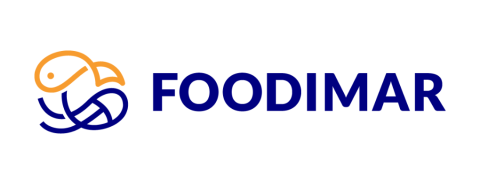
Sustainable development of microalgae-based products using waste streams from aquaculture and seafood processing industry as feedstock
The fast-growing land-based aquaculture and seafood processing industry generate large amounts of nutrient-rich wastewater, posing a high cost for discharge and environmental impact. At the same time, there is an increasing demand for new resources intended for carbon-neutral production of food, material and energy. The ability of microalgae to perform photosynthesis and efficiently convert dissolved nutrients into valuable biomass could contribute to solving this dual problem. The overall objective of the SEAlgaePower is to develop microalgae-based technologies to clean wastewater from the aquaculture and seafood processing industry while simultaneously producing biomass for novel ingredients in a sustainable way. The specific aims are to: (i) select suitable microalgae species/strains from the North and the Mediterranean Sea in a lab-scale cultivation system based on the ability to grow in different wastewater types; ((ii) develop pilot-scale algae cultivation protocols and wastewater cleaning; (iii) develop biorefinery protocols for protein, lipid and carbohydrate recovery from the microalgal biomass; (iv) develop microalgae-based prototypes and ingredients; (v) assess environmental and socio-economic aspects associated with the project solutions on wastewater cleaning, microalgae cultivation and biomass valorisation, and (v) maximise the project impact, visibility, and legacy.
SEAlgaePower consortium consists of fourteen partners from eight countries with well defined roles according to their expertise. UGOT, NORCE and UNIPA will provide microalgae strains. UGOT will employ a two-stage cultivation in laboratory conditions and select those strains which in combination with wastewater from salmon aquaculture and process water from the seafood industry (Klädesholmen SeaFood) give the highest biomass yield and the cleanest water. NORCE and DTI will scale-up the cultivation in wastewater from salmon aquaculture (Ragn-Sells and NFH, respectively), and optimize it for selected microalgae to achieve maximal nutrient removal via conversion to proteins, omega-3 fatty acids, carbohydrates, and carotenoids. The biomass will be sequentially fractionated by UAveiro together with Chalmers and DTI. Depending on the composition of different fractions, prototypes and ingredients will be developed for fibers in Medtech (RISE), fish feed (DTI), food (Chalmers), and fertiliser (NIBIO). The bio-activities of the extracts will be tested by UNIPA and UAveiro for use as ingredients in MedTech, nutra- and pharmaceuticals. Environmental and socio-economic assessment of the project, dissemination of the results to stakeholders and public will be performed by Blue EcoTech, SITES, and ISP. SEAlgaePower will contribute to establish a EU climate-neutral, sustainable, resilient blue economy, leveraging microalgae-based technologies which can turn a current cost of seafood producing and processing companies into an income source through valorization of their wastewaters.
Coordinator: University of Gothenburg, UGOT, Sweden
Partners:
- Chalmers University of Technology, Chalmers, Sweden
- NORCE Norwegian Research Centre AS, NORCE, Norway
- University of Aveiro, UAveiro, Portugal
- University of Palermo, UNIPA, Italy
- Sustainable Innovation Technology Services Ltd, SITES, Ireland
- RISE Research Institutes of Sweden, RISE, Sweden
- Blue EcoTech Ltd., BET, Malta
- Nordicflexhouse, NFH, Denmark
- Danish Technological Institute, DTI, Denmark
- Universidade de Sao Paulo, USP, Brazil
- Norwegian Institute of Bioeconomy Research, NIBIO, Norway
Self-funded partners:
- Klädesholmen Seafood AB, Klädesholm, Sweden
- RAGN-SELLS HAVBRUK AS, Ragn-Sells, Norway
Sustainable, Reliable and Socially Acceptable Modular Floating IslAnds for Multi-use Offshore Spaces
The growth of the world’s population over the past decades has been impressive. Present estimates show that the process is likely to achieve a peak of 11 billion within the next 100 years. Such massive growth implies an ever-increasing need for space (urban, infrastructural, industrial), resources (water, energy, food) and economy. The ocean plays a crucial role in this challenge. FAMOS aims to contribute to the thematic priority of development of offshore marine multi-use spatial concepts. From our perspective, pivotal questions include: is humanity ready to live on the ocean surface due to a lack of functional land? How do we create sustainable, reliable, and socially acceptable multi-use offshore spaces?
Adopting floating structures appears more sustainable than using bottom founded structures both in terms of environmental and economic aspects. Although some aquaculture or solar energy devices have been developed based on floating sub-structures, most of them are limited to near-shore areas in relatively shallow waters and mild wave conditions. To fully exploit exposed offshore marine areas, FAMOS must go beyond the state of the art by addressing significant challenges posed by possible occurrences of enormous waves. Considering the size of FAMOS in respect to the call, to balance resources and efforts the project will focus on the achievement of the following detailed objectives:
- Design and demonstrate novel floating island concepts in three European basins: Mediterranean, North, and Baltic Seas.
- Assess the synergies among the islands and breakwater and understand the risks and failure of key structural components.
- Develop efficient and accurate computational models for prediction of hydrodynamics, structural dynamics, and power performance of the multiple renewable energy devices.
- To boost the impact beyond the academic world by involving relevant stakeholders from the conceptualization phase up to the uptake of research findings into decision-making processes and policymaking.
FAMOS will benefit from the other assets already developed and available to its partners via participation in EU projects, namely: MARINET1 FP7 No262552, MARINET2 H2020 No731084, WECANET Cost Action 17105, MODENERLAND Cost Action 20109, Energy-SHIFTS H2020 No826025, gEneSys Horizon Europe No 101094326.
The project team adopts an interdisciplinary approach and considers various aspects: social and environmental, concept and configuration, floating structure technology, numerical and experimental methods. The pathways to achieve expected outcomes and impacts are driven by the logic of the theory of change. This transdisciplinary and participatory approach focuses on the actors and the context of change to achieve real and desired socio-technical change. It goes beyond mere social acceptance concepts and offers more inclusivity in involving social actors from the beginning, during, and at the end of the research and technology development process.
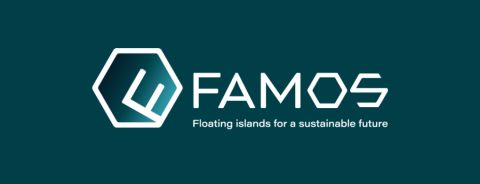
Swedish Meteorological and Hydrological Institute, SMHI, Sweden
Swedish University of Agricultural Sciences, SLU, Sweden
Synergies & Resources
Synergies Dashboard
This dashboard pulls together guidance, examples and practical insights on combining European, national and regional funding streams. It is designed to help organisations navigate co-funding opportunities linked to the Sustainable Blue Economy Partnership’s intervention areas, while remaining relevant beyond the Partnership itself.
Access it here.
Resources
This comprehensive guide provides valuable insights into your brand's values, guidelines, and visual elements, ensuring consistent and impactful brand representation across various mediums.
Core & strategic documents
Other
SYSAAF - Partner
SZN - Coordinator
Tallinn University of Technology, TalTech - Coordinator
TAU - Partner
Terms of Use and Privacy Policy
Terms of Use and Privacy Policy
This content describes the privacy policy of the Sustainable Blue Economy Partnership. It affects all data gathered and processed by Sustainable Blue Economy Partnership. This policy is a derivative of the GDPR, and is to be applied to Sustainable Blue Economy Partnership activities.
General Data Protection Regulation (GDPR)
The GDPR is EU Regulation (EU) 2016/679 of the European Parliament and of the Council of 27 April 2016 on the protection of natural persons with regard to the processing of personal data and on the free movement of such data. It repeals Directive 95/46/EC. The GDPR comes in force on 25 May, 2018. More information can be found on the EC GDPR site.
Sustainable Blue Economy Partnership as data owner and processor
Sustainable Blue Economy Partnership gathers personal data (name, email address, phone number, affiliation) through subscriptions on our newsletter, registrations for the Sustainable Blue Economy Partnership activities and events, and from our members. All data gathered and processed by the Sustainable Blue Economy Partnership is subject to the EU General Data Protection Regulation (GDPR), which aims to protect the privacy of all EU inhabitants. Note that the Sustainable Blue Economy Partnership partly makes use of the IT system of the Flanders Marine Institute (VLIZ) to support its website and IT services. For all information regarding the data processing from the Sustainable Blue Economy Partnership website, we refer to the VLIZ privacy policy. To send newsletters Sustainable Blue Economy Partnership makes use of Mailchimp as the data processor (see point 5 below). To register participants for events in some cases the Sustainable Blue Economy Partnership uses Eventbrite as the data processor.
Your rights as a data subject
A data subject is the natural person for whom personal data is processed. Each person has the right to be informed on what personal data is being processed and to have access to their personal data.
As a data subject, you can request:
- corrections or updates to your personal data
- to restriction or stop the processing of your data;
- to erase your data from our database
Note that not all rights are absolute: the Sustainable Blue Economy Partnership can have compelling legitimate grounds that outweigh the interests and rights of the objector (accountancy, juridical reasons...). When a request is made, the Sustainable Blue Economy Partnership may demand extra information to confirm your identity. All requests made by data subjects will be logged.
Legal grounds for data processing
There are several legal grounds for data processing. The most common is prior consent, which can be withdrawn at any time, or it can stem from an agreement with our member institutes. The Sustainable Blue Economy Partnership further has the legal obligation to process personal data for accountancy purposes, and has to keep this data according to the legal obligations. The Sustainable Blue Economy Partnership also processes personal data for common interest as the Sustainable Blue Economy Partnership maps and describes the European marine and maritime science and innovation landscape, and gathers professional data on scientists, industry representatives, policy makers and institutes for this purpose.
Services requiring personal data
For some of the Sustainable Blue Economy Partnership services and activities processing of personal data is necessary. By entering your personal data, you agree to the data processing. This data is kept for as long as the agreement lasts, and at least as long as is required for legal purposes (e.g. accountancy). For purposes concerning proof in juridical disputes, Sustainable Blue Economy Partnership may store personal data up to 10 years after the occurrence, which is the maximum legal term for placing personal claims. The Sustainable Blue Economy Partnership requires personal data for the following:
1. The Sustainable Blue Economy Partnership partners
The Sustainable Blue Economy Partnership collects data of its partner organisations. This includes the contact details (name, e-mail, address, phone number) of the delegates and alternates and any other persons from the organisations that have been nominated to participate in the Sustainable Blue Economy Partnership Working or Expert Groups, events and publications. The Sustainable Blue Economy Partnership uses this data to inform partners on the Sustainable Blue Economy Partnership activities and for partners administration (legal obligation and reporting to the member countries and European Commission). The institutional affiliation is saved for institutional partners.
2. Participation in (on-line) surveys
The personal data collected depends on the type of survey, and can contain: full name, e-mail address, country, organisation name and type, telephone number.
3. Visitor tracking on websites and cookies
The Sustainable Blue Economy Partnership makes use of the IT support and system of the Flanders Marine Institute (VLIZ) to support its website and IT services. VLIZ keeps logs of website visits - which contain: an IP address, time information, and the url visited - for bug tracking and to monitor for malicious visits. Along with the web-server logging, an anonymous visitor-tracking system is in place, to track which pages on the websites hosted by VLIZ are accessed. We also use cookies to enhance the surfing experience (e.g. so visitors only have to log in or choose the language setting once). It is indicated on each by VLIZ supported website that cookies are used and you can find a link to the VLIZ privacy policy.
4. Conference and other event participation
In order to participate in events organised by the Sustainable Blue Economy Partnership, registration is required for organisational purposes (venue size, catering services, inform participants on programme updates, etc.). Registration forms will contain a section to allow participants to subscribe to further communications by the Sustainable Blue Economy Partnership, or to remove their data once the event has taken place (this is the default option). For each event, several e-mails may be sent as part of the communication agreement: save-the-date, posting of the tentative programme, abstract submission calls, closing of the early bird or final programme, and the closing e-mail with links to pictures taken and download links for presentations.
During our events, pictures/film can be taken which can be communicated to the participant, used in Sustainable Blue Economy Partnership publications, or posted on our website and social media channels. If you do not want your pictures to be published, you can send a request for the removal of photographs or films to the e-mail address used for event administration or to info@bluepartnership.eu. Photos in which the requester are shown will be removed from our websites, social media channels and servers; for films, the film segment will be cut out or the film deleted out if the requester is clearly visible.
5. Mailing lists organised or serviced by the Sustainable Blue Economy Partnership
The Sustainable Blue Economy Partnership manages mailing lists which were created to send out Sustainable Blue Economy Partnership newsletters, to facilitate events, to allow for working-group communication, for partners in a project, etc. Each e-mail sent to these mailing lists contains an unsubscribe link and a contact address. For several communications, the Sustainable Blue Economy Partnership can make use of the services of Mailchimp for this purpose. Mailchimp functions in this instance as the data processor and for this reason the Sustainable Blue Economy Partnership has a data processing agreement with Mailchimp. You can find the Mailchimp privacy policy here (link: https://mailchimp.com/legal/).
6. Drupal, our content management system (CMS)
The Sustainable Blue Economy Partnership website is created in Drupal. For content management several editors are appointed, and these need an account to be able to log in to and change a site. All session information and changes made by the editors are stored in Drupal. Each editor can list their actions for each of the sites via a Drupal module.
Questions and Complaints
If you have any questions regarding personal data stored by Sustainable Blue Economy Partnership, you can contact the Sustainable Blue Economy Partnership – Communications, by sending us by e-mail at info@blueeconomy.eu by phone: +32 (0)2 626 16 60 or on the following address: Rue du Trône 4, 1000 Brussels, Belgium.
Complaints concerning the Sustainable Blue Economy Partnership privacy policy, or concerning unlawful data processing can be addressed to the Belgian Privacy Commission, the National Data Protection Authority (DPA) for Belgium. If there is a data breach, the Sustainable Blue Economy Partnership is bound to inform the Privacy Commission within 72 hours, and affected users - if identifiable - will also be notified.
Test
About
The Partnership boosts the transformation towards a climate-neutral, sustainable, productive and competitive blue economy. We aim to restore the ocean’s health, resilience and services to people by enabling economic activity that is climate-neutral, sustainable and productive.
Vision
- by 2030: give the transformation towards a climate-neutral, sustainable, productive and competitive blue economy a boost
- by 2050: create and support the conditions for a healthy ocean for the people
Through this vision we work together to support key EU policy objectives of Green transition, digital transformation and recovery and ultimately contribute to the Sustainable Development Goals.
investments
over 7 years
the European Commission
Facts & Figures
Intervention areas
Intervention Areas are set in the Annual Work Programme of the Partnership and are based on the Strategic Research and Innovation Agenda and the Member States and Associated Countries’ priorities. Intervention Areas for future calls and activities will be developed according to an annual cycle.
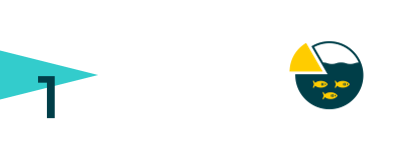
Developing and validating digital twin representations of marine assets, processes or systems to provide users with answers to “what if” questions about ocean developments, including effective marine and maritime spatial planning and technology development at regional to local scales.
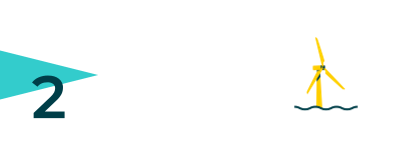
Developing multi-use structures across multiple offshore industries in key sectors such as transport, energy and food to create synergetic benefits and support the diversification strategy of the EU.
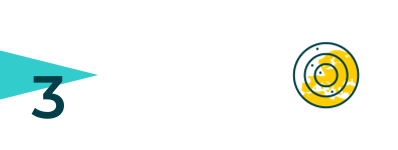
Innovating the management of sea-uses by integrating tools and approaches of artificial intelligence-based Maritime Spatial Planning, maritime surveillance, and the seafloor in 4D.
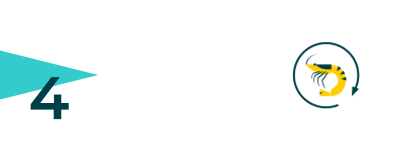
Promoting sustainable management of ocean bioresources and food generating capacity through integrated, unifying and nature-based approaches that benefit people, plants, animals and ecosystems.
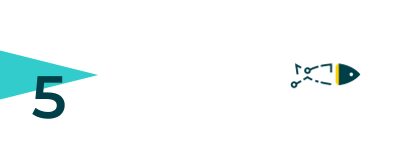
Exploring technological, digital, smart and circular solutions for the just transition of Blue Food sectors into a sustainable and productive, competitive and climate-neutral future.
How can you engage?
The Partnership seeks to engage stakeholders across ocean industry sectors, policy, scientific disciplines, and civil society. You can engage in six co-funded calls over the seven-year timeframe 2022-2029. We will further add value with complementary actions and resource mobilisation, including:
- research infrastructures
- thematic programmes
- streamlining other funding sources
As a Partnership, we engage with initiatives at the level of sea basins and the Atlantic Ocean. At global level, we promote the EU approach to a sustainable blue economy. We seek synergies with other Partnerships and the Mission Restore our Seas and Oceans. In parallel, we are establishing a community of practice with different stakeholders to co-design activities.
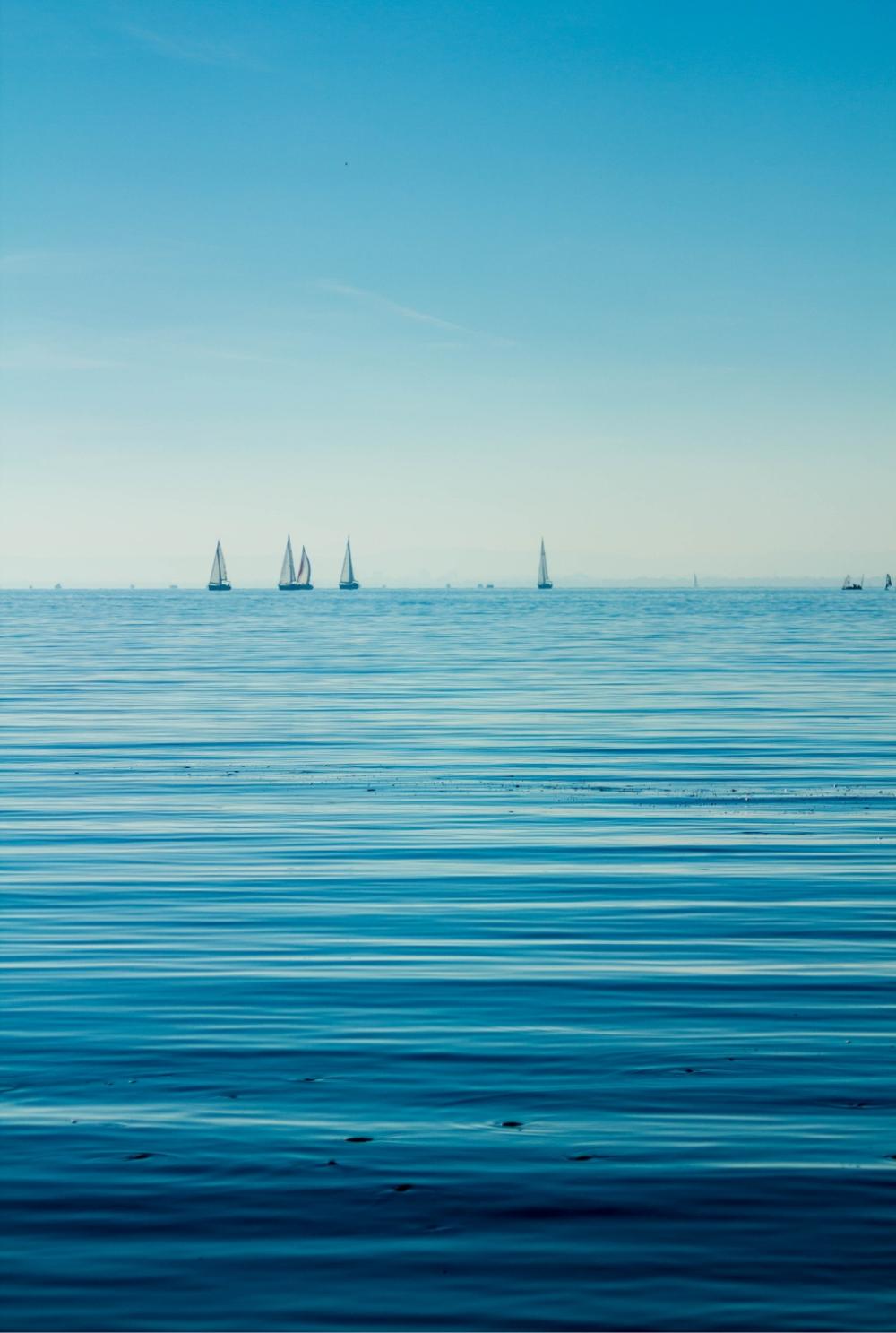
Regional contact nodes
Administration
- Secretariat: Ministry of Universities and Research, Italy
- Co-coordinator: Research Council of Norway
- Brussels Cellule, Belgium
Sea basin nodes
- Atlantic Ocean
Ireland, niall.mcdonough@marine.ie
Azores, Portugal, natalia.ospina@aircentre.org - Baltic Sea
Estonia, eve.kylmallik@agri.ee, liis.kikas@envir.ee
Poland, maciej.zdanowicz@ncbr.gov.pl - Black Sea
Bulgaria, mbaltov@bfu.bg
Turkey, melike.sevimli@tubitak.gov.tr - Mediterranean Sea
Greece, akarah@gsrt.gr
Malta, maria.azzopardi.2@gov.mt - North Sea
Belgium, ann.katrien.lescrauwaet@vliz.be
Netherlands, lisette.enserink@rws.nl
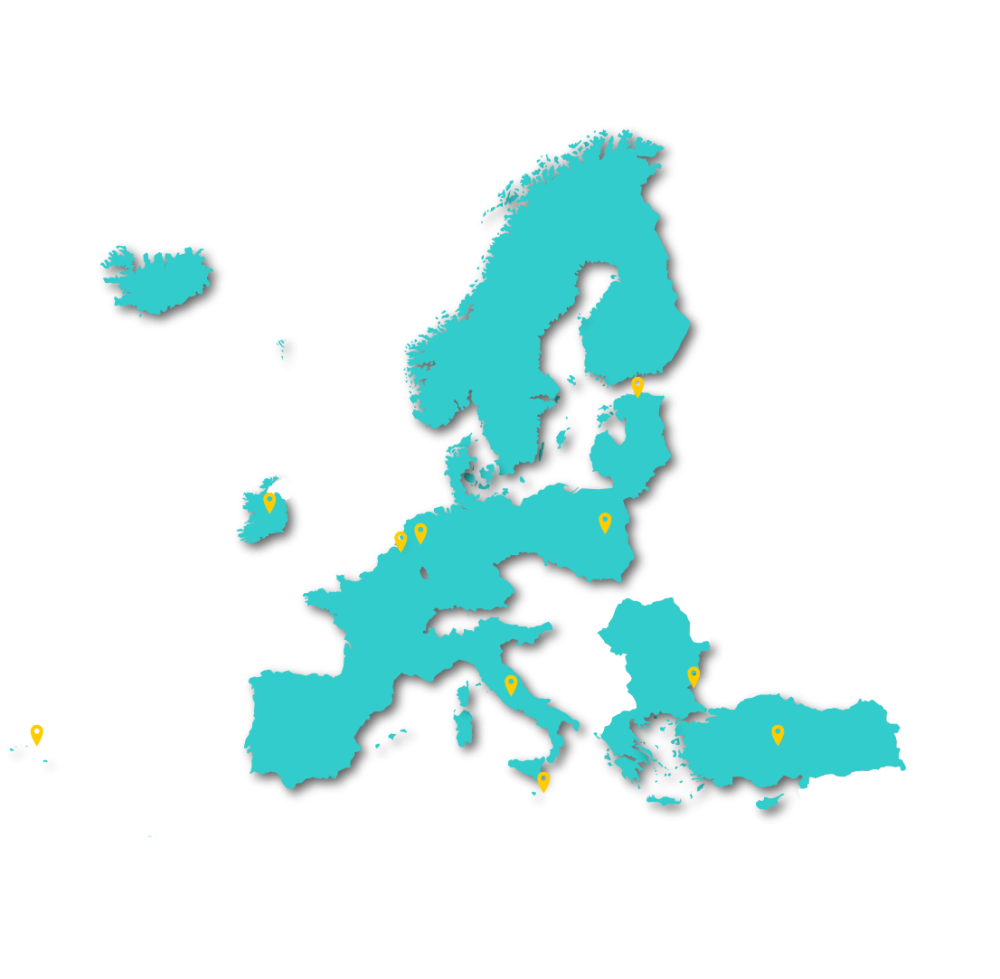
Partners


Commission for Coordination and Regional Development of the Centre - CCDRC


National Institute for Research and Development on Marine Geology and Geo-ecology
Stay updated

TETIS - Partner
Thank you page Registration "Full Sail Ahead towards a Sustainable Blue Economy" Symposium
Thank you for registering!
Thank you for registering to the "Charting the course towards a Sustainable Blue Economy” Symposium, 13-14 February 2024, at the Royal Museum of Fine Arts of Belgium, Rue du Musée 5, 1000 Bruxelles. Your registration is confirmed. Since we have limited availability, we kindly ask you to inform us at info@bluepartnership.eu in case you are not able to attend. You can always consult the most updated version of the programme on our website.
The Sustainable Blue Economy Partnership is currently doing a stakeholder mapping. The purpose is to establish a community of practice which will be engaged by the Partnership in future exchanges related to the transformation to a sustainable blue economy. With this survey, the Partnership aims at collecting accurate data on relevant stakeholders (domain of activity, sea-basin, sector, level of engagement, preferred communication, and contact information). We would greatly appreciate if you could take 2-3 minutes to complete the Stakeholder Mapping Survey.
Thank you page Stakeholder Mapping Survey
Thank you for your response!
Your response has been registred. We thank you for your participation in the Stakeholder Mapping survey.
The Dutch Research Council - NWO
Laan Van Nieuw Oost-indië 300, The Hague
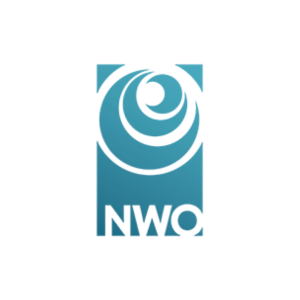
The Partnership Intervention Areas for activities in 2024
The Sustainable Blue Economy Partnership’s second joint transnational call
«Unified paths to a climate-neutral, sustainable, and resilient blue economy: engaging civil society, academia, policy, and industry»
Pre-proposal submission deadline: 10/04/2024, 15:00 CEST (Brussels Time)
Full proposal submission deadline (Provisional): 06/11/2024, 15:00 CET (Brussels Time)
The Sustainable Blue Economy Partnership is pleased to announce its second joint transnational call entitled “Unified Paths to a Climate-Neutral, Sustainable, and Resilient Blue Economy: Engaging Civil Society, Academia, Policy, and Industry».
The vision of the Sustainable Blue Economy Partnership, a European partnership under the Horizon Europe Programme, is to design, steer and support a just and inclusive transition to a regenerative, resilient, and sustainable blue economy. This EU Partnership aims to boost the transformation needed towards a climate-neutral, sustainable, productive, and competitive blue economy by 2030 while creating and supporting the conditions for a sustainable ocean for the people by 2050.
This second co-funded call aims to support transnational research and innovation projects of 36 months duration, addressing one of the four priority areas below (subject to funded priority areas by participating funding organisations, see Annex):
(1) Digital Twins of the Ocean at regional sub basin scale
(2) Blue economy sectors, development of marine multi-use infrastructures
(3) Planning and managing sea-uses at the regional level
(4) Blue Bioresources
Projects in this co-funded call must be impact-driven contributions to the transformation into a blue economy for a more resilient future and towards carbon neutrality targets, following an impact pathway approach.
The proposals are expected to consider a minimum of two European sea basins and to assess the project proposal’s impact on various basins. Proposals can target European regional seas such as Adriatic Sea, Aegean Sea, Arctic, Barents Sea, Celtic Sea, etc. but these regional seas must be from a minimum of 2 different European Sea basins which are: the Baltic Sea, the Black Sea, the Mediterranean Sea, the North Sea and the Atlantic Ocean.
The second co-funded call of this EU Partnership pools national and regional financial resources through the participation of 38 funding organisations from 26 countries combined with the contribution from the European Union. 20 Member-States, 5 Associated Countries and 1 Third Country are participating: Belgium, Brazil, Cyprus, Denmark, Estonia, Faroe Islands, Finland, France, Germany, Greece, Iceland, Ireland, Italy, Latvia, Lithuania, Malta, Norway, Poland, Portugal, Romania, Slovenia, Spain, Sweden, The Netherlands, Tunisia, and Türkiye. The total estimated budget is about EUR 40 million.
To be eligible, each consortium must be composed of eligible partners from at least three different countries participating in the call and requesting financial support from at least three different funding organisations participating in the call. In addition, the projects must involve at least two independent legal entities from two different EU Member States or Horizon Europe Associated Countries (as recipients of the financial support, at the time of the closing of the call by 10/04/2024) eligible for EU funding in this call for (pre-)proposal. Self-funded partners, including partners from countries (and/or regions) not participating in this co-funded call, are allowed but do not contribute to the minimum eligible consortium size.
Applicants are strongly encouraged to involve stakeholders (i.e., small, and medium enterprises (SMEs), industries, authorities, public administrations, associations, as well as civil society organisations) as partners or self-funded partners (according to national/regional regulations) in their proposal. Stakeholder engagement in the research projects will enhance innovation, policy, and societal relevance and ultimately the impact of the projects.
Looking for a partner or a project to join? Use the SBEP Partner Search Tool available here.
Applicants will have up to 10 April 2024 (15H00 CEST) to submit their pre-proposals. A first evaluation of pre-proposals will be organised and the deadline to submit full proposals is foreseen for November 2024.
This call is co-branded as part of the UN Decade of Ocean Science for Sustainable Development, which is coordinated by UNESCO’s Intergovernmental Oceanographic Commission (IOC/UNESCO) on behalf of the UN system, with the aim that the funded research and innovation projects are endorsed as Ocean Decade projects.
APPLY HERE
Informative Webinar
A general information webinar was organised on the 15 February (14H00-16H30 CET) to answer your questions regarding the call. You can view the slides here.
Brokerage Event
Ten sessions of two hours will be organised from 26 February to 8 March. Sessions are scheduled between 10:00 AM and 12:00 PM or 02:00 PM and 04:00 PM CET. The matchmaking event has the ambition to connect researchers, companies and stakeholders from marine and maritime communities interested in the Partnership's second transnational Call. To help you finding a project to join, or partners for your project, you have the possibility to set up 20 minutes meetings with other participants during the matchmaking sessions of the event. More information here.
For more information: We invite you to regularly consult our website and social media channels to be kept updated on this major research funding opportunity.
Contact: sbep.call-secretariat@agencerecherche.fr
Co-branded by
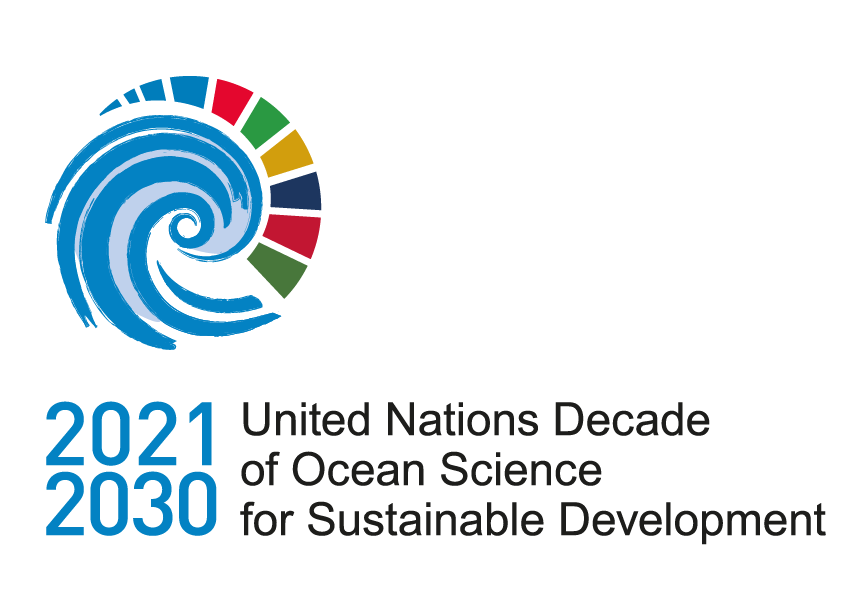
Fund for Scientific Research - FRS - FNRS

Scientific Research Fund - FWO

Estonian Research Council
Rue Guimard 11/13, 1040 Brussels, Belgium

Research Council Faroe Islands
Bryggjubakki 12, P.O.Box 259, FO-110 Tórshavn

Marine Institute

Latvian Council of Science - LZP

Research Council of Norway

Commission for Coordination and Regional Development of the Centre - CCDRC

Regional Fund for Science and Technology

Dutch Ministry of Agriculture, Nature and Food Quality
Bezuidenhoutseweg 73, The Hague

Ministry of Infrastructure and Water Management
Rijnstraat 8, 2515 XP Den Haag, Netherlands
The Dutch Research Council - NWO
Laan Van Nieuw Oost-indië 300, The Hague

The Sustainable Blue Economy Partnership’s third joint transnational call
Digitalisation and Innovation for Resilient Marine Ecosystems Businesses, and Communities to Strengthen the EU Blue Economy’s Competitiveness
Pre-proposal submission deadline: 17/11/2025, 15:00 CET (Brussels Time)
Full proposal submission deadline (Provisional): 17/06/2026, 15:00 CEST (Brussels Time)
The Sustainable Blue Economy Partnership is pleased to announce the launch of its third joint transnational call entitled ‘Digitalisation and Innovation for Resilient Marine Ecosystems Businesses, and Communities to Strengthen the EU Blue Economy’s Competitiveness’.
The vision of the Sustainable Blue Economy Partnership, a European partnership under the Horizon Europe Programme, is to design, steer and support a just and inclusive transition to a regenerative, resilient, and sustainable blue economy. This EU Partnership aims to boost the transformation needed towards a climate-neutral, sustainable, productive, and competitive blue economy by 2030 while creating and supporting the conditions for a sustainable ocean for the people by 2050.
This third co-funded call aims to support transnational research and innovation projects of 36 months duration, addressing one of the five priority areas below (subject to funded priority areas by participating funding organisations, see Annex B):
- Digital Twins of the Ocean (DTOs) at sub-basin scale
- Transitioning the blue economy sectors, and the development of the coexistence and the marine multi-use infrastructures
- Climate-Smart Planning and managing sea-uses at the regional level
- Blue Bioresources; sustainable fisheries and aquaculture, and new bio-based products
- Resilient Coastal Communities and Businesses
Projects in this call must be impact-driven contributions to the transformation into a blue economy for a more resilient future and towards carbon neutrality targets, following an impact pathway approach. Applicants are requested to propose an impact plan under the theory of change (see section 2.3 – Impact of the proposals, and Annex A).
The proposals are strongly recommended to consider a minimum of two EU sea basins which are: the Atlantic Ocean, Baltic Sea, Black Sea, Mediterranean Sea, and North Sea, and to assess the project proposal’s impact and potential replication/scalability on various sea basins. Proposals can target European regional seas such as Adriatic Sea, Aegean Sea, the Arctic, Barents Sea, Celtic Sea, etc. but they must be from a minimum of 2 different EU Sea basins.
The third co-funded call of this EU Partnership pools national and regional financial resources through the participation of 38 funding organisations from 28 countries combined with the contribution from the European Union (see Annex B for the full list of participating countries). The total estimated budget is about EUR 43.5 million.
To be eligible, each consortium must be composed of eligible partners from at least three different countries participating in the call and requesting financial support from at least three different funding organisations participating in the call. In addition, the projects must involve at least two independent legal entities from two different EU Member States or Horizon Europe Associated Countries eligible for EU funding in this call for (pre-)proposal (as recipients of the financial support, at the time of the closing of the call by 17/06/2026). Self-funded partners, including partners from countries (and/or regions) not participating in this co-funded call, are allowed to participate but do not contribute to the minimum eligible consortium size.
Applicants are strongly encouraged to involve stakeholders (i.e., small, and medium enterprises (SMEs), industries, authorities, public administrations, associations, as well as civil society organisations) as partners or self-funded partners (according to national/regional regulations) in their proposal. Stakeholder engagement in the research projects will enhance innovation, policy, and societal relevance and ultimately the impact of the projects.
Looking for a partner or a project to join? Use the SBEP Partner Search Tool available here.
Applicants will have up to 17 November 2025 (15:00 CET) to submit their pre-proposals. A first evaluation of pre-proposals will be organised and the deadline to submit full proposals is foreseen for 17 June 2026.
This call is co-branded as part of the UN Decade of Ocean Science for Sustainable Development, which is coordinated by UNESCO’s Intergovernmental Oceanographic Commission (IOC/UNESCO) on behalf of the UN system, with the aim that the funded research and innovation projects are endorsed as Ocean Decade projects.
APPLY HERE
Informative Webinar
A general information webinar took place on 6 October to answer questions regarding the call. You can find the slides and recording here.
Brokerage Event
A matchmaking event will take place from Monday, 15 September, to Thursday, 13 November, and has the ambition to connect researchers, companies, and stakeholders from marine and maritime communities interested in the Partnership’s third transnational Call. To help you find a project to join, or partners for your project, you have the possibility to set up 20-minutes meetings with other participants during the matchmaking sessions of the event. More information here.
Call for Experts
A call for experts to evaluate the pre-proposals submitted under the third joint transnational co-funded call will be launched at the end of September. You can find more information on the pre-announcement of the call for experts here.
For more information: We invite you to regularly consult our website and social media channels to be kept updated on this major research funding opportunity.
Contact: sbep.call-secretariat@uefiscdi.ro
Co-branded by

Fund for Scientific Research - FRS - FNRS

Scientific Research Fund - FWO

Estonian Research Council
Rue Guimard 11/13, 1040 Brussels, Belgium

Estonian Ministry of Regional Affairs and Agriculture- REM

Research Council Faroe Islands
Bryggjubakki 12, P.O.Box 259, FO-110 Tórshavn

Shota Rustaveli National Science Foundation of Georgia - SRNSFG

Marine Institute

Research Ireland
Emma McGrath
Maria Nash

Latvian Council of Science - LZP

Montenegro - Ministry of Education, Science and Innovation - MESI

Research Council of Norway

Commission for Coordination and Regional Development of the Centre - CCDRC

Regional Fund for Science and Technology

Dutch Ministry of Agriculture, Nature and Food Quality
Bezuidenhoutseweg 73, The Hague

Thematic Portfolio
1st Call launch: 31 July 2025, 15:00 CEST
The Sustainable Blue Economy Partnership, a European partnership under the European Commission’s Research & Innovation Framework Programme Horizon Europe, is pleased to announce its first Thematic Portfolio Call for Interest. This call aims to connect on-going projects to create and boost networking activities for a 2-year period, from early 2026 to early 2028. Two active networking portfolios will be established composed of projects granted by SBEP and a range of national/regional/EU funding streams on these 2 different topics:
- Topic 1: Innovations and digitalisation for low-impact sustainable small-scale fisheries management in EU sea-basins.
- Topic 2: Innovations for boosting sustainability in marine algae cultivations and circularity in the blue bioeconomy.
Trackwell - Partner
Transnational Access Call to Research Infrastructures
Transnational Access Call to Research Infrastructures
The call for access to Research Infrastructures allows applicants from across the European blue economy community to submit proposals to use Research Infrastructures made available by Partnership partners.
The call supports the implementation of the Partnership’s Strategic Research and Innovation Agenda (SRIA) by addressing key intervention areas, encouraging international cooperation, and promoting Open Data and Open Science. It also aims to strengthen innovation, better align national investments with EU priorities, and improve efficiency through the shared use of research infrastructures.
Learn here about the projects selected in the pilot call (2025).
Explore RIs
Stay updated
TSIC - Partner
TU Dublin - Partner
UAveiro - Partner
UCC - Partner
UCPH - Partner
UCY - Partner
UFSC - Partner
UGENT - Partner
UH - Partner
UIA - Partner
UiT - Partner
ULKER - Partner
UM - Partner
UNIBO - Partner
UNIFI - Coordinator
UNIPD - Coordinator
UNITS - Coordinator
UNIVALI - Self-Funded Partner
Universidad de Vigo, UVIGO, Spain
University of Gothenburg, UGOT, Sweden
University of Naples Federico II, UNINA, Italy
University of Padova, UNIPD, Italy
University of Padova, UNIPD, Italy
UNIVR - Partner
Unlocking the Potential of Seaweeds and Halophytes through Biorefinery for Enhanced Resilience in the Aquaculture Agri-Food and Chemical Industries
The ReSEAlience project, titled "Unlocking the Potential of Seaweeds and Halophytes through Biorefinery for Enhanced Resilience in the Aquaculture, Agri-Food, and Chemical Industries," seeks to revolutionize marine biomass use by developing a universal biorefinery model. This model focuses on the sustainable processing of Salicornia (a halophyte) and seaweed biomass, exploiting their synergistic potentials within Integrated Multi-Trophic Aquaculture (IMTA) systems to address eutrophication effectively. By sourcing biomass from diverse marine environments like the Atlantic Ocean and Mediterranean Sea, the project ensures a broad approach to biomass utilization across different settings.
At the heart of this innovative initiative is the HALOREFINE extraction technique, a legacy from the H2020 Aquacombine project. This method extracts bioactive compounds from marine biomass without toxic solvents, thus minimizing environmental impact and safeguarding ecosystem health. The remaining biomass undergoes further processing into valuable products such as cellulose for the textile industry and fermentable sugars, along with proteins and fats suitable for bioconversion into sustainable, high-value feed alternatives. This process is emblematic of a zero-waste philosophy, utilizing the entirety of the biomass to avoid waste.
A notable expansion of the project involves the use of residual biomass for textile production. Through a process known as organosolv fractionation, specifically adapted for Salicornia, this method efficiently separates cellulose. In parallel, alginate is extracted from seaweed using an alkaline extraction process. These processes yield cellulose and alginate from marine biomass, which are then transformed into high-quality fibers for the textile industry, providing a renewable, sustainable alternative to traditional materials. This innovation not only diversifies the applications of marine biomass but also contributes to a more sustainable textile industry by offering an eco-friendly resource alternative.
Moreover, the project explores the innovative cultivation of Black Soldier Fly Larvae (BSFL) and marine Thraustochytrids, using the partially processed residual biomass as feed to transforms the biomass into a rich source of proteins and fats, demonstrating an advanced approach to waste valorization within the biorefinery model.
ReSEAlience is committed to engaging a wide range of stakeholders, including industry, academia, and policymakers, throughout its lifecycle. This ensures that the project's outputs are closely aligned with societal needs, facilitating integration into existing value chains and maximizing the impact on the sustainable blue economy. Through interdisciplinary collaboration and pioneering biorefinery models, ReSEAlience underscores the significant potential of sustainable marine biomass utilization to support economic growth and ecosystem health across key industries such as aquaculture, agri-food, and chemicals.
Coordinator: Lulea Tekniska Universitet, LTU, Sweden
Partners:
- Ege University, EGE, Türkiye
- SINTEF Ocean AS, SINTEF, Norway
- ELLINIKOS GEORGIKOS ORGANISMOS – DIMITRA, DIMITRA, Greece
- Fundación Centro Tecnológico de Acuicultura de Andalucía, CTAQUA, Spain
- ISOTECH LTD, ISOTECH, Cyprus
- Institut National des Sciences et Technologies de, INSTM, Tunisia
- Universidade Federal de Santa Catarina, UFSC, Brazil
UPB - Coordinator
Upcycling of bilge water into biobased solutions for ghostfishing and oil-spilling
The BilgeUP project was born with the idea of valorizing a neglected waste product of the maritime industry: bilge water. During navigation, ships of various types, including merchant vessels, fishing boats, and pleasure craft, accumulate bilge water. This wastewater results from activities such as cleaning engine rooms and bilge areas, as well as condensation from air-conditioning systems. It comprises a mixture of oil, grease, and organic and inorganic substances, salts, and metals. Discharging oil residues into marine environments is prohibited by regulations such as those of the International Maritime Organization (IMO) and the European directive 2000/59/EC, hence bilge water must be properly treated on board or disposed of at reception facilities on land. Some ships use fractionation systems to separate the oily fraction from bilge water, resulting in a waste product known as sludge, which is stored on board and then typically incinerated or used in tar production on land. BilgeUP aims to utilize bilge water and sludge, sampled in different European sea basins (Mediterranean Sea, Atlantic Ocean and Black Sea), as starting material for two processes. In the first one, bilge water will serve as a growth medium for marine bacteria and fungi already known as biosurfactants (BS) producers. This bioprocess not only will reduce the environmental impact of bilge water disposal but will produce extremely useful molecules. Indeed, in the second bioprocess biosurfactants will be added to sludge to make this waste a bioavailable nutrient for the growth of bacteria able to produce polyhydroxyalkanoates (PHA).
The BS produced by the first bioprocess will be tested as dispersing agents in the cleanup of oil spills, thus addressing one of the major causes of marine pollution. While the PHAs produced in the second bioprocess will be applied in the manufacturing of biodegradable fishing gears, these new types of equipment will not only replace the fossil plastic ones but also be proposed as possible mitigation of ghost fishing problems. Indeed, derelict fishing gears continues to fish and trap animals, entangle and potentially kill marine life, smother habitat, and act as a hazard to navigation. Thanks to the production of biosurfactants and biodegradable fishing gears BilgeUP proposes the development of processes that, starting from wastes from various basins, produce products beneficial to the entire marine ecosystem, transforming waste not only into value but even into a concrete solution.
The project's objectives include sampling and characterizing bilge water and sludge from various basins, designing bioprocesses for biosurfactant and PHA production, designing and evaluating biodegradable materials for fishing gear, evaluating the effectiveness of the produced biosurfactants in oil spill cleanup, and assessing the circularity, economic feasibility, and market potential of the final products.
Coordinator: University of Naples Federico II, UNINA, Italy
Partners:
- Technofluids srl, TF, Italy
- universitat Jaume I, UJI, SpaiN
- GTE Karbon Sürdürülebilir Enerji Eğt. Dan. Tic. ve A.Ş., GTE, Türkiye
- Advanced Institute of Technology and Innovation, IATI, Brazil
Self-funded partner:
- C.I.P. Citizens in Power, CIP, Cyprus
USC - Partner
UT - Partner
UT - Partner
UVEG - Partner
Valorising seafood side streams, residues, unwanted catches and discards for production of bioactive protein hydrolysates and high added value biomolecules
The VASEACAD project aims to maximize the value derived from marine fish biomass side streams within the aquaculture and fisheries sectors. Its primary objective is to enhance the efficiency and circularity of these industries while promoting sustainable practices and value creation from underutilized resources. Focusing on species such as blue fin tuna (BFT), European seabass, gilthead seabream, European sprat and blue whiting, the project aims to extract high-value biomolecules for various applications.
A fundamental challenge in the Mediterranean region is the fragmented and small quantities of side streams compared to those in Northern Europe. Addressing this, SINTEF’s Mobile Sealab integrates a setup aimed at recovering valuable resources such as oil, protein-rich fractions and other nutrients from waste generated by the fisheries sector. Hydrolysates play a crucial role in preserving biomass, maintaining nutrient content, extending shelf life, reducing environmental impact, adding value, and providing health benefits. Despite currently being repurposed into neutraceuticals and ingredients for animal feed in Northern Europe, there is potential to extract high-quality Omega-3 fish oil and proteins from these underutilized raw materials even in the Mediterranean and Black Seas.
With 7 scientific objectives guiding its efforts, VASEACAD tackles critical knowledge gaps and challenges. These include effectively extracting biomolecules from seafood side streams, developing bioactive hydrolysates to mitigate chronic inflammatory diseases, scaling up production of protein hydrolysates, utilizing solid spent residue for aquafeeds, promoting inter-species recycling, evaluating economic and environmental implications and advancing knowledge and policy development for European inter-species recycling.
The methodology is comprehensive and collaborative, organized into six distinct work packages (WPs) covering coordination, bioactive hydrolysate generation, valorization of side streams, feeding trials, economic viability analysis, and dissemination. Through these WPs, VASEACAD leverages the expertise of consortium members from various institutions and countries to ensure a holistic approach.
Ethical considerations are central, with a commitment to compliance with national and international guidelines, transparent stakeholder engagement and health and safety measures. Stakeholder engagement follows a quadruple helix model, involving research organizations, industry partners, government agencies and societal representatives, ensuring alignment with societal needs and values.
In terms of expected impacts, VASEACAD aims to valorise seafood side streams, contributing to food security, resource utilization and environmental sustainability. It is anticipated that the project will lead to industry adoption of optimized processes, policy integration, economic growth, job creation and improved environmental sustainability in the aquaculture and fisheries sectors.
Coordinator: Hellenic Centre for Marine Research, HCMR, Greece
Partners:
- Technological University Dublin, TU Dublin, Ireland
- Frederick Research Center, FRC, Cyprus
- Blue EcoTech Ltd., BET, Malta
- Institute of Agrifood Research and Technology, IRTA, Spain
- SINTEF Ocean, SINTEF, Norway
- Karadeniz Technical University, KTU MSF, Türkiye
- Blue Island Holdings Plc, BlueIsland, Cyprus
- Kimagro Fishfarming LTD, KIMAGRO, Cyprus
- BioAtlantis Limited, BIOAT, Ireland
VLIZ - Partner
VN - Partner
Voices from the Baltic Sea: a recap of the fourth regional workshop
VTT - Partner
VUB - Coordinator
VUB - Partner
Wageningen University & Research, WUR, Netherlands
Werover - Partner
Willem De Moor
WISIP SARL, WISIP, France - Partner
WL - Self-Funded Partner
WOC - Coordinator
WPUT - Partner
WU - Partner
ZUT - Partner
Past events
Multi-use Infrastructure Spatial Concepts for the Blue Economy: Leveraging on Sustainable Port Ecosystems through Living Labs
BluePortLab focuses on transforming European maritime ports into sustainable, low-carbon energy hubs pivotal for the blue economy's transition. Recognizing ports' significant role at the intersection of land and sea, the initiative seeks to rethink maritime ports' function to enhance energy efficiency, biodiversity, and sustainable growth. This aligns with the EU's goals for a clean energy future and sustainable ocean principles.
BluePortLab argues for a transformative vision where ports expand on their traditional roles to become multifunctional spaces driving regional development, social cohesion, and environmental sustainability. It introduces multi-use spatial concepts within ports, incorporating renewable energy, green technologies, and practices to address challenges like greenhouse gas emissions and energy consumption. This approach envisions ports as catalysts for clean energy, promoting synergies among maritime activities to facilitate a climate-neutral blue economy.
Scientifically, the project aims to develop innovative spatial concepts enhancing energy efficiency and biodiversity, assess socio-economic and environmental impacts, and establish a governance framework for resilient and sustainable port management. Research questions delve into maximizing synergies between energy production, biodiversity, and economic development, understanding socio-economic impacts, and optimizing governance for multi-use spatial concepts. The novelty lies in the holistic perspective on ports, integrating them into broader energy and economic systems for societal benefits. The project introduces Living Labs Networks (LLNs) for real-world testing and co-creation of multi-use infrastructures, fostering collaborative innovation.
Methodologically, a multidisciplinary mixed-methods approach will be employed, structured around LLNs in key maritime regions. This includes developing LLNs, conducting co-creation workshops, launching pilot projects for prototyping, and using data analysis for evaluation. Stakeholder feedback and iterative refinements will ensure adaptability, with successful concepts scaled up for wider application.
The impact plan is based on the Theory of Change, aiming for environmental sustainability, economic competitiveness, social cohesion, and policy influence. The project seeks to embed renewable energy and biodiversity initiatives in port operations, stimulate regional economies, and ensure inclusive transition to a sustainable blue economy. European cooperation is emphasised through transnational collaboration, involving the ports of Ravenna, Aalborg, Trelleborg, and other ports linked to the research network of the partners, e.g. Hamburg, Rotterdam, Naples, Valencia, Antwerp to share experiences and foster innovative solutions. The involvement of port stakeholders will be central to the project. Stakeholder engagement involves academia, industry, government, and civil society, ensuring inclusive and transparent collaboration.
Coordinator: Copenhagen Business School, CBS, Denmark
Partners:
- University of Genoa, UniGe, Italy
- Chalmers University of Technology, CTH, Sweden
- Kühne Logistics University gGmbH (KLU), KLU, Germany
- DANMARKS TEKNISKE UNIVERSITET, DTU, Denmark
- Autorità di Sistema Portuale del Mare Adriatico centro settentrionale, ADSPRA, Italy
- Port of Aalborg, R&D, POARD, Denmark
Self-funded partners:
- Trelleborg Hamn AB, Sweden
- Euro-Mediterranean University, EMUNI, Slovenia
Offshore Clean Hydrogen Production for Multi-use Purposes
OCEAN-H2 tackles climate change head-on by pioneering large-scale green hydrogen production using offshore renewable energy sources. This clean alternative to fossil fuels has the potential to significantly reduce greenhouse gas emissions across various sectors, from power generation and transportation to industrial processes.
OCEAN-H2 recognizes the delicate balance between progress and environmental protection. The project implements rigorous environmental impact assessments to minimize harm to marine ecosystems during operation and decommissioning of offshore facilities. Strategies to address potential impacts on marine life, noise pollution, and seabed disturbance will be developed and implemented based on these assessments. The project also prioritizes a holistic approach to sustainability. While focusing on climate mitigation, it adheres to the "Do No Significant Harm" principle. For instance, unlike traditional methods, OCEAN-H2 utilizes seawater electrolysis, eliminating the need for vast quantities of freshwater. Additionally, pollution prevention is addressed through investigating leak-proof storage and transportation solutions for hydrogen, alongside responsible waste management practices.
Through continuous monitoring and evaluation of its environmental and social performance, OCEAN-H2 fosters continuous improvement. Collaboration with a diverse range of stakeholders, including researchers, policymakers, and civil society organizations, is crucial for achieving this goal. By prioritizing sustainability and responsible development, OCEAN-H2 strives to be a driving force in the transition towards a clean energy future powered by green hydrogen.
Coordinator: L-Universita ta Malta, UM, Malta
Partners:
- RISE Research Institutes of Sweden, RISE, Sweden
- FRAUNHOFER GESELLSCHAFT ZUR FORDERUNG DER ANGEWANDTEN FORSCHUNG EV, Fraunhofer, Germany
- Università di Napoli Federico II, UNINA, Italy
- Université de Technologie de Belfort-Montbéliard, UTBM, France
'Acqua Alta' Fixed Platform
National Research Council

Francesco Falcieri francesco.falcieri@cnr.it


